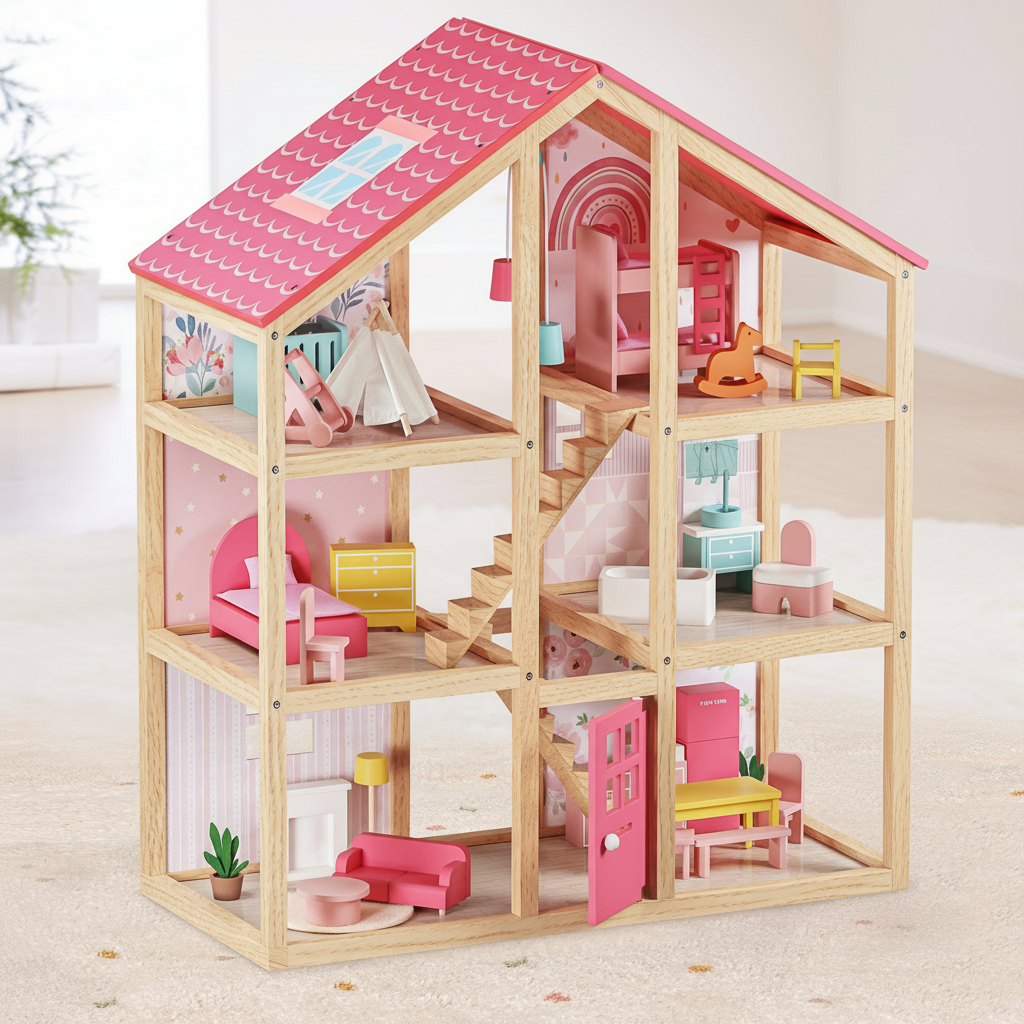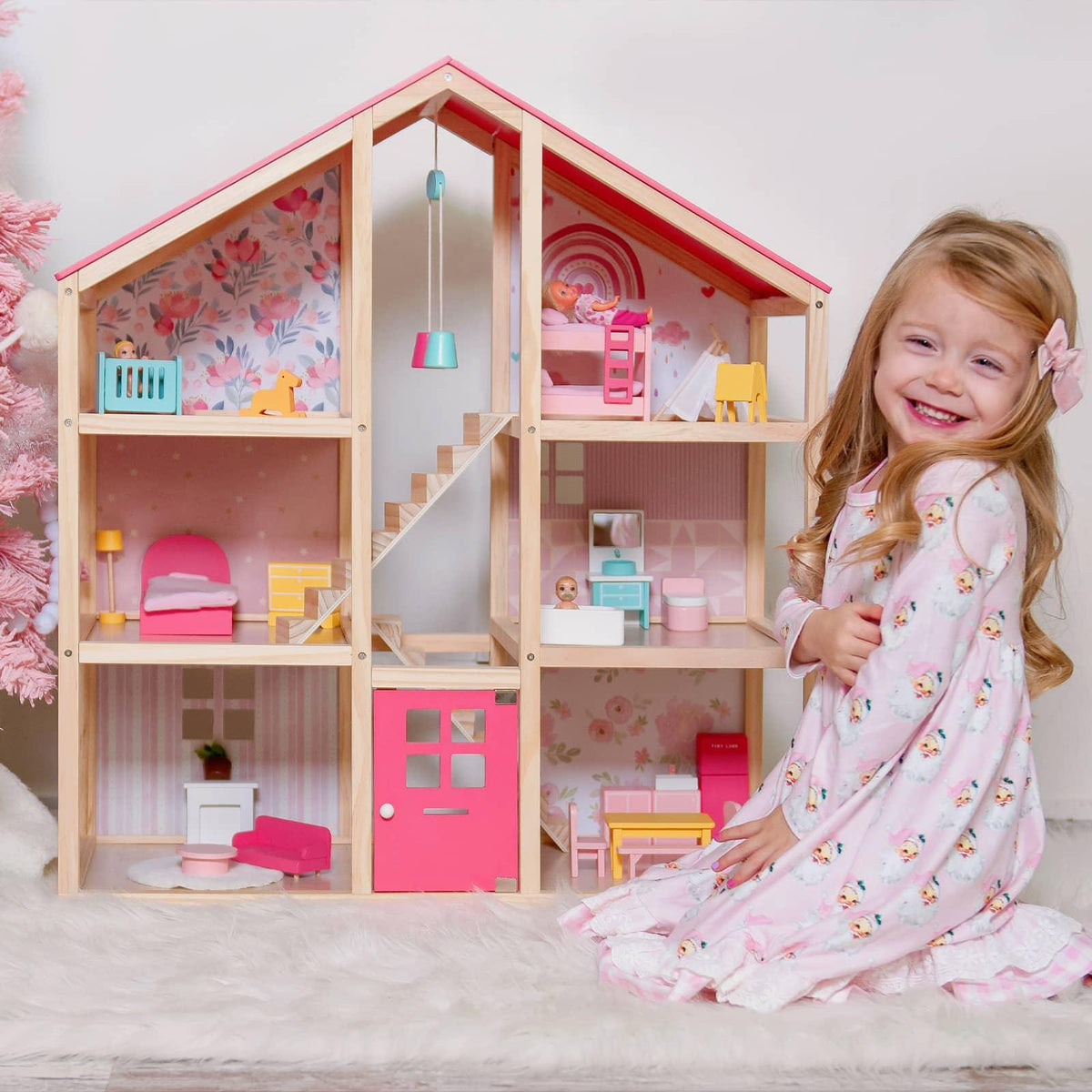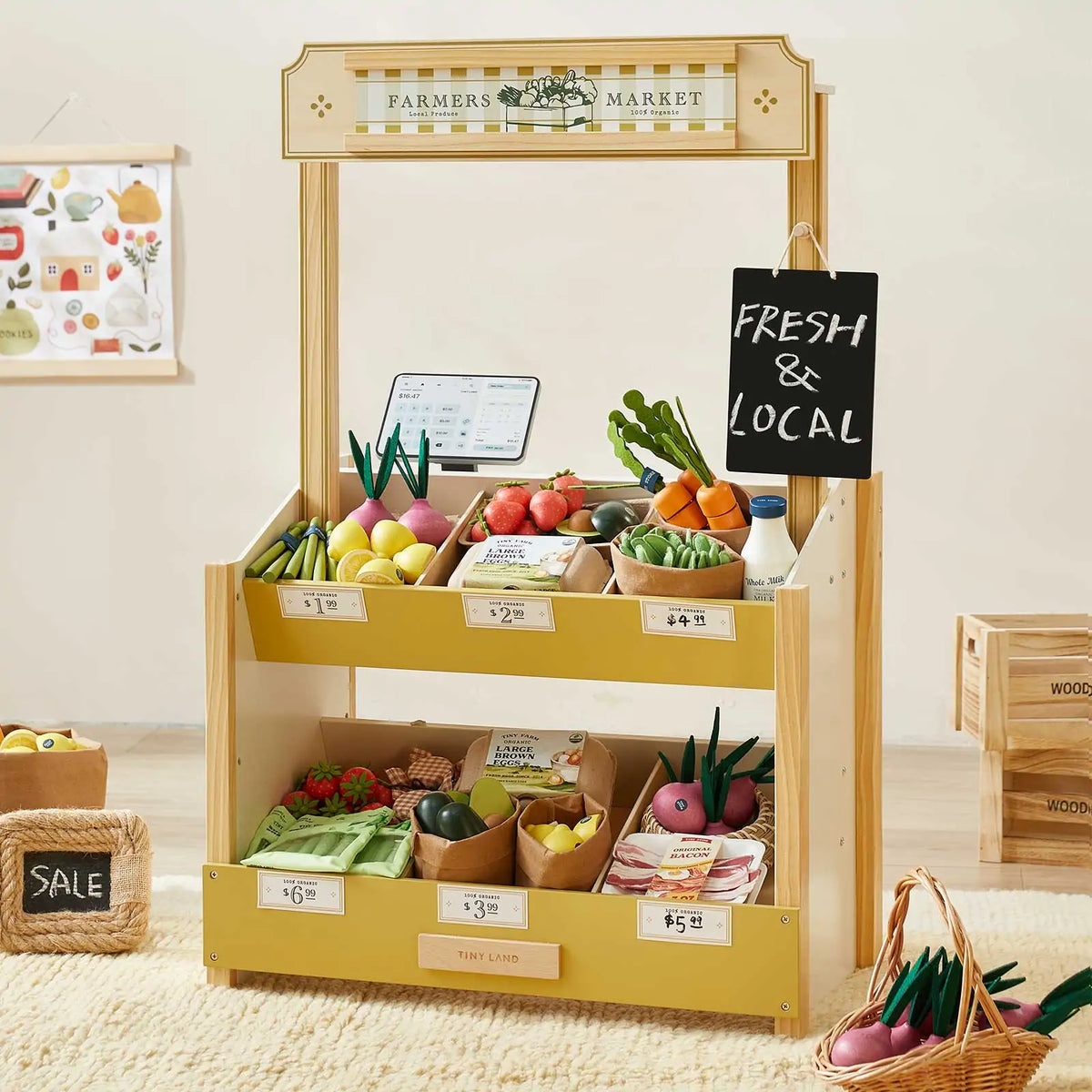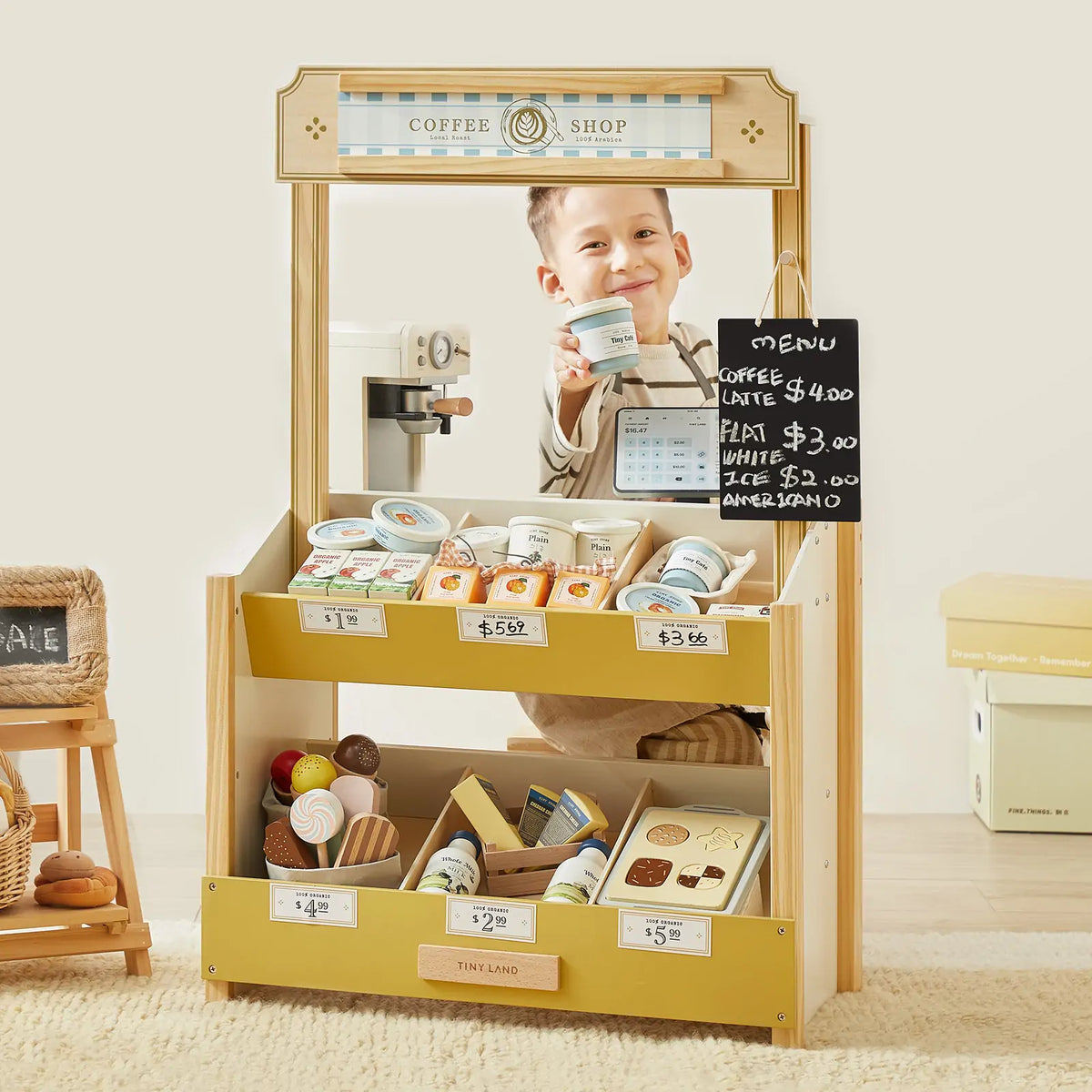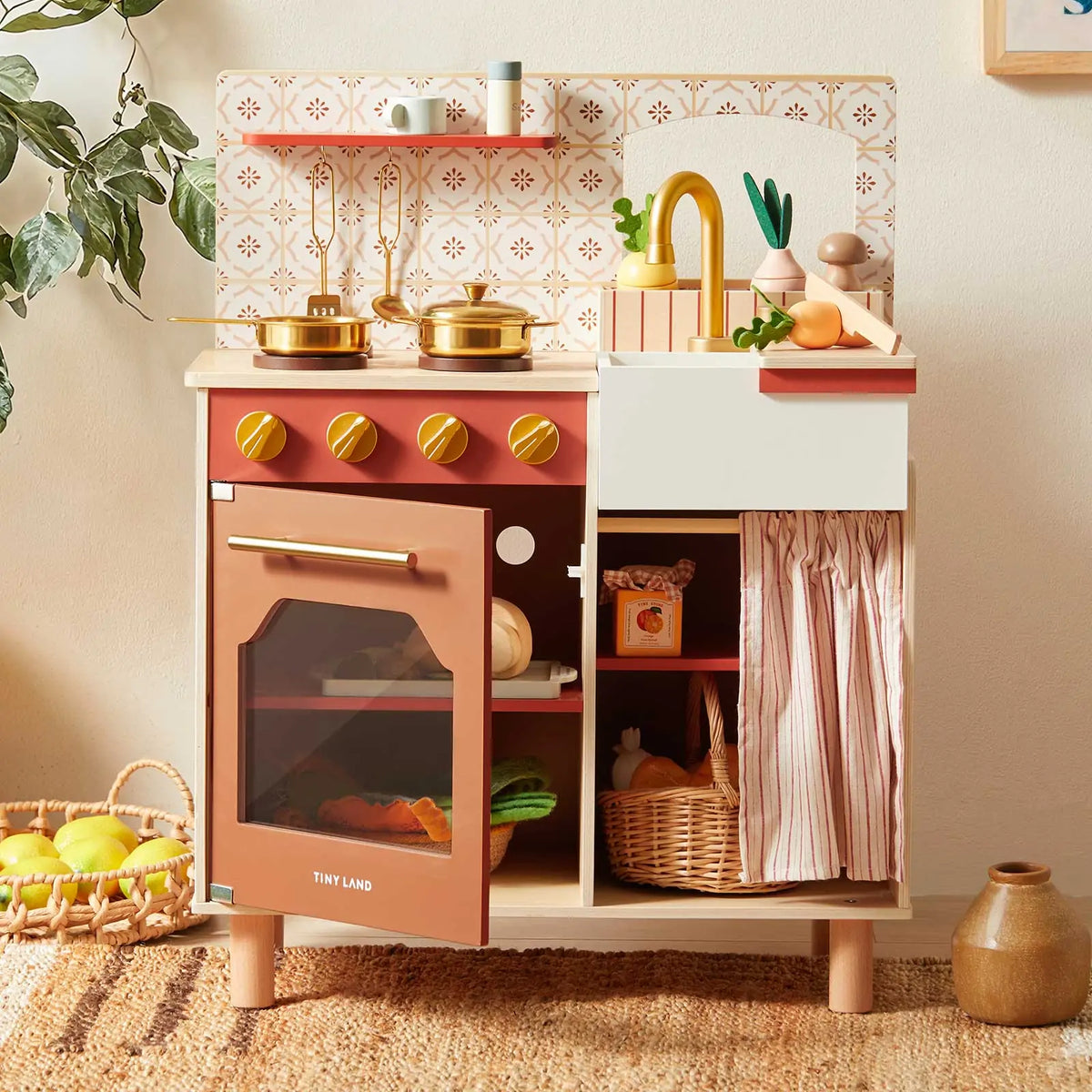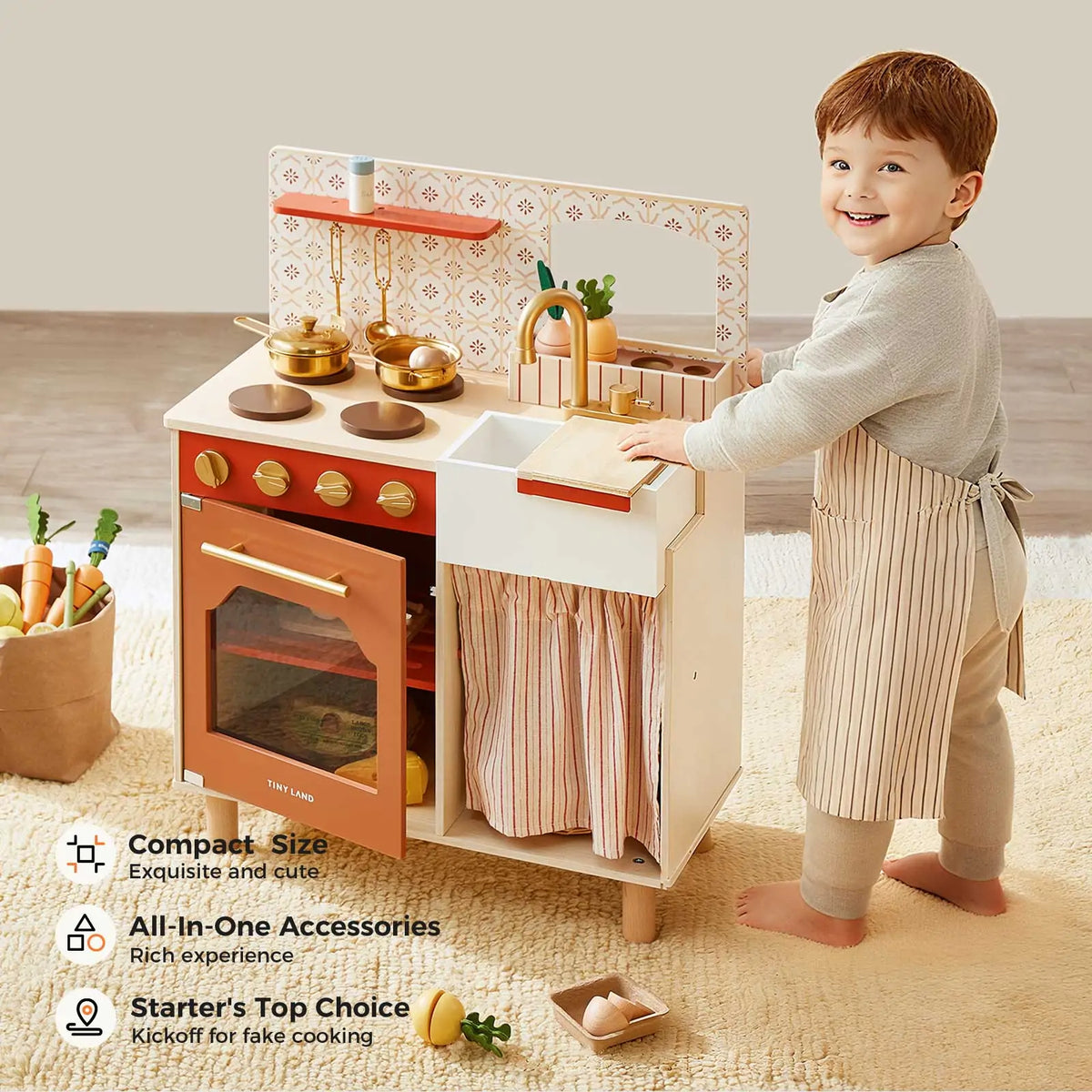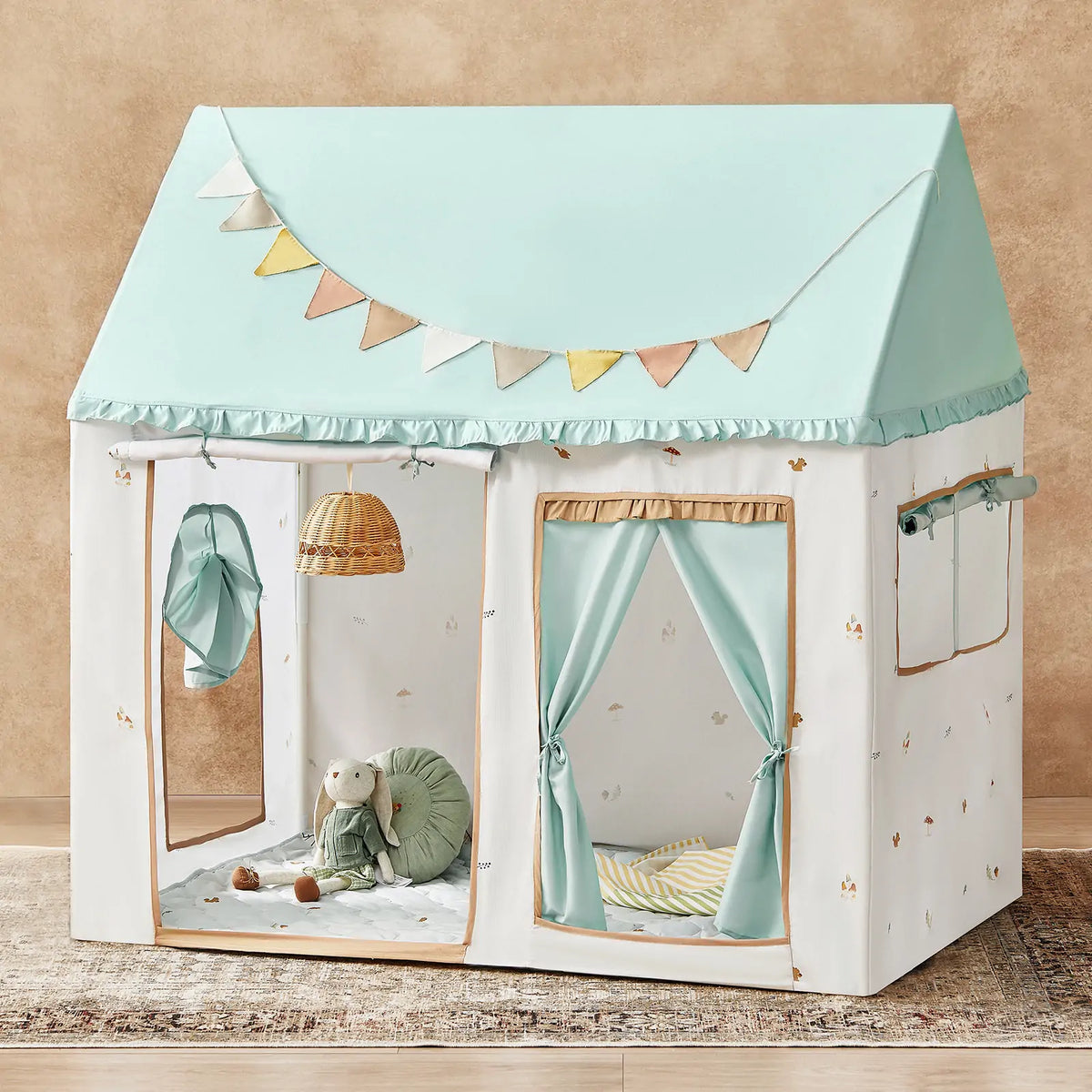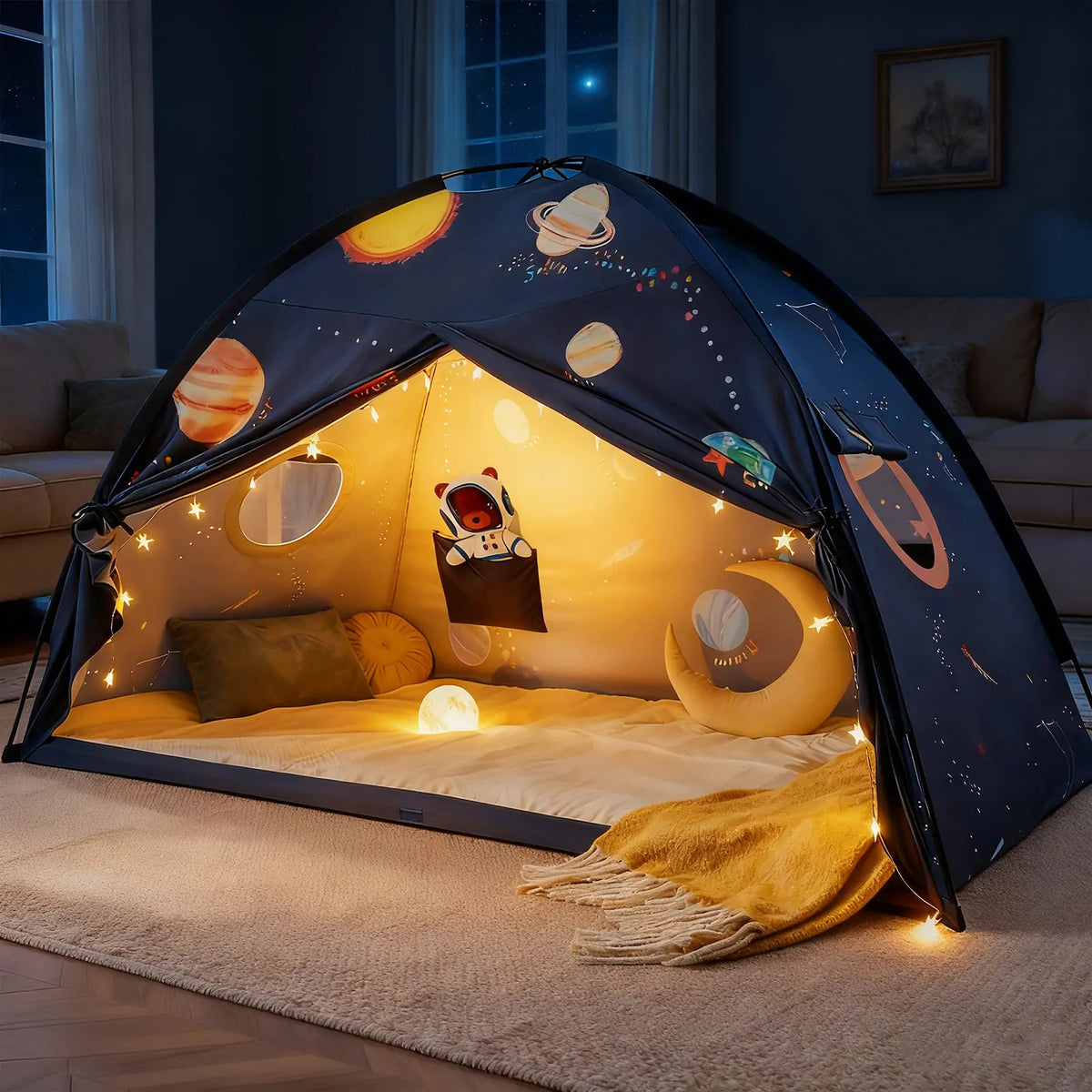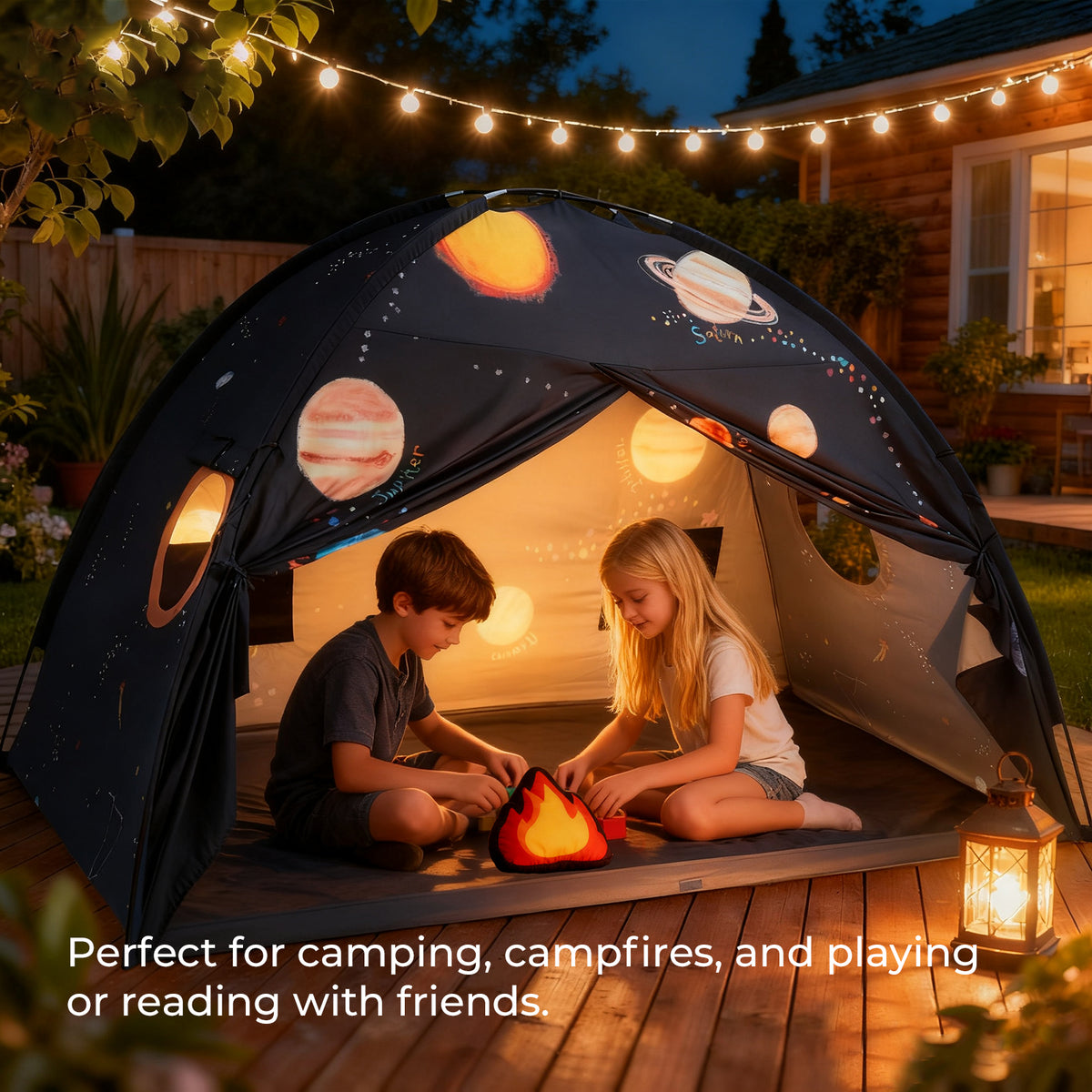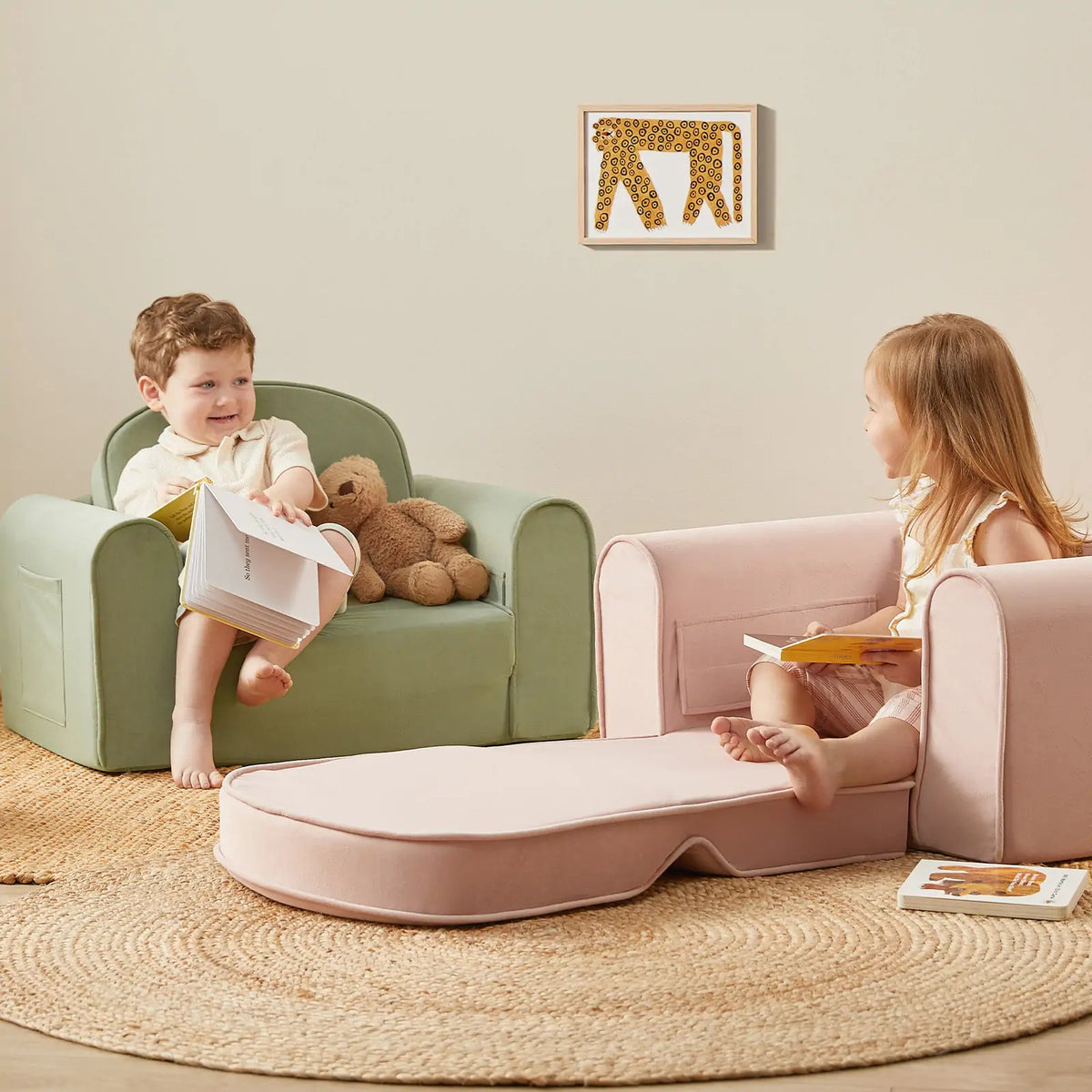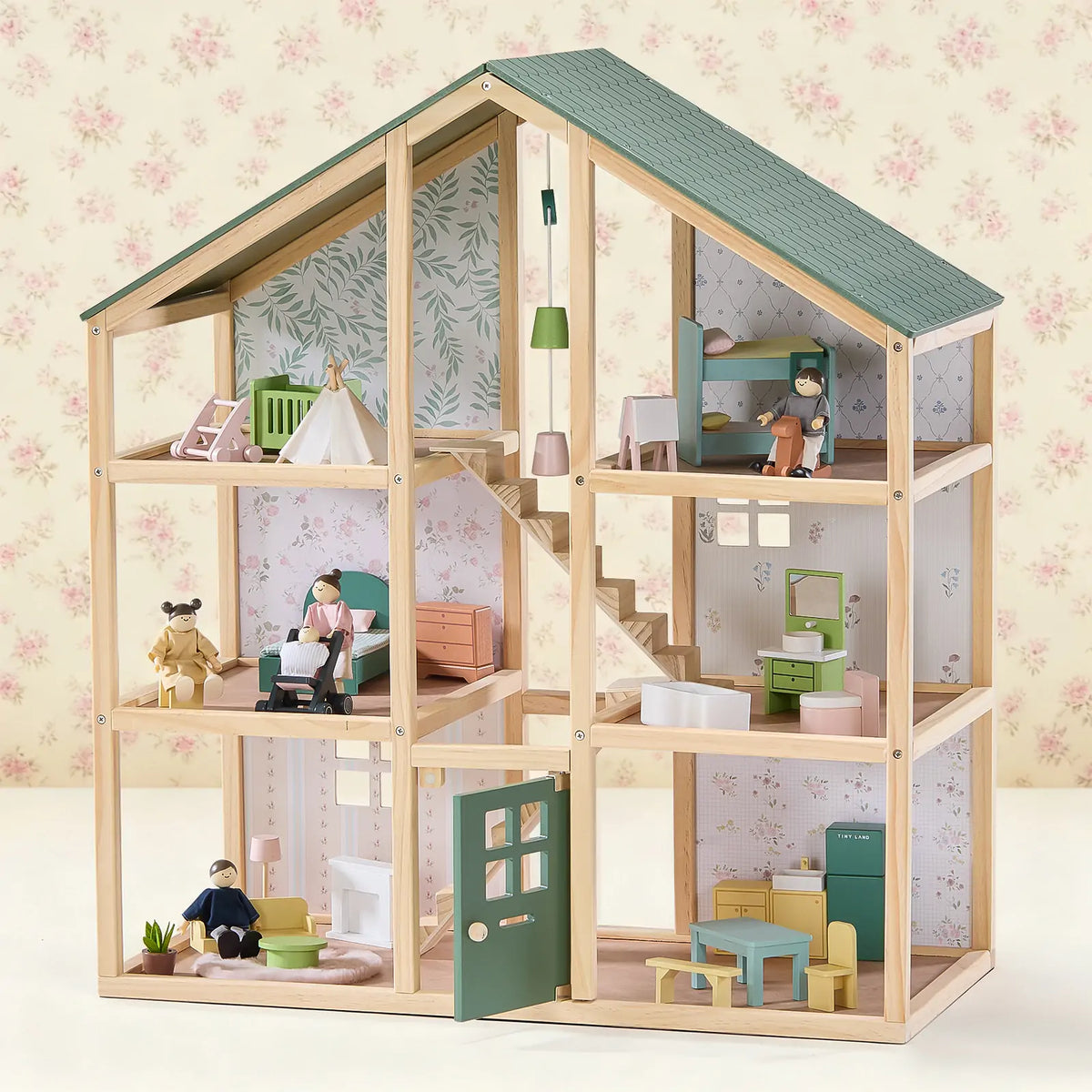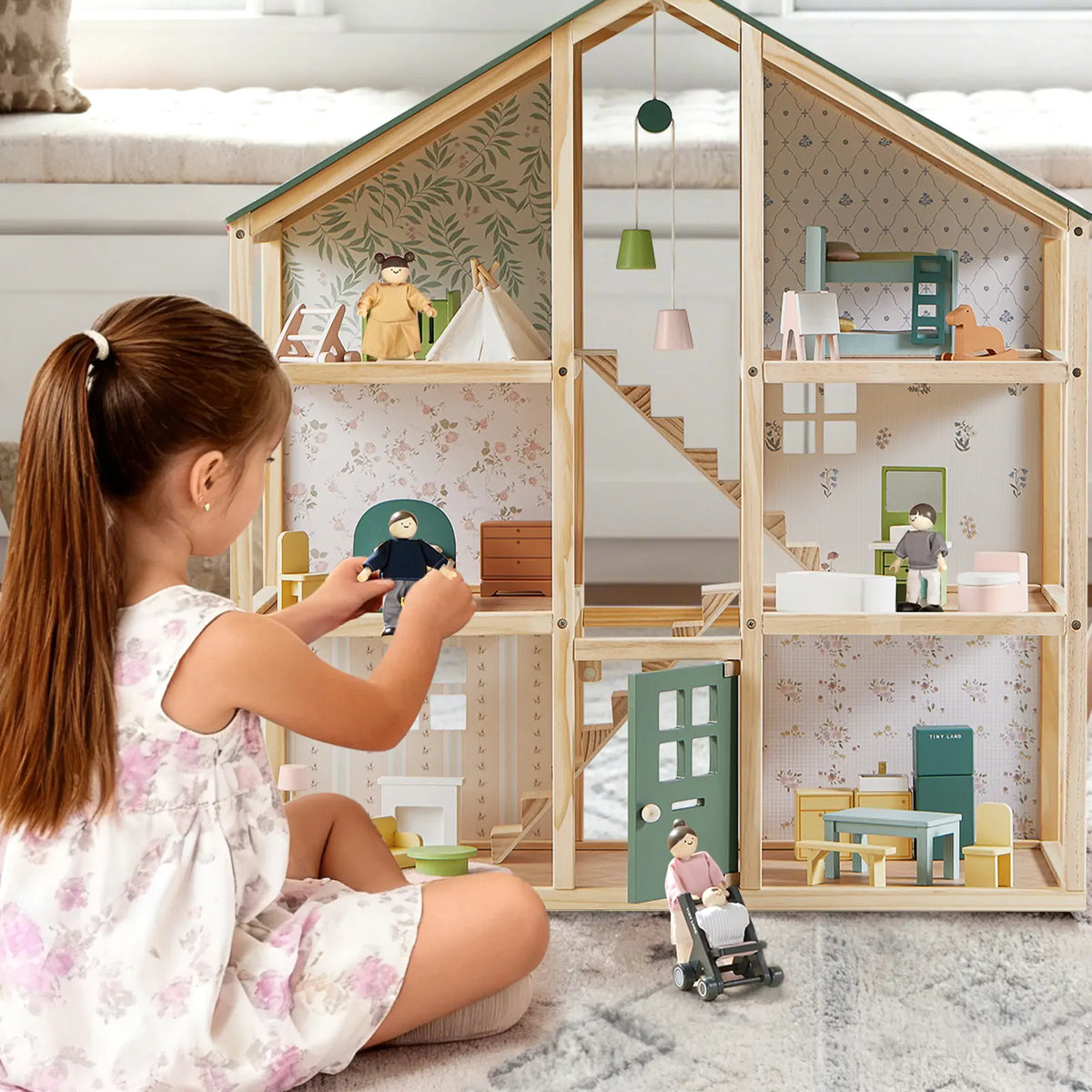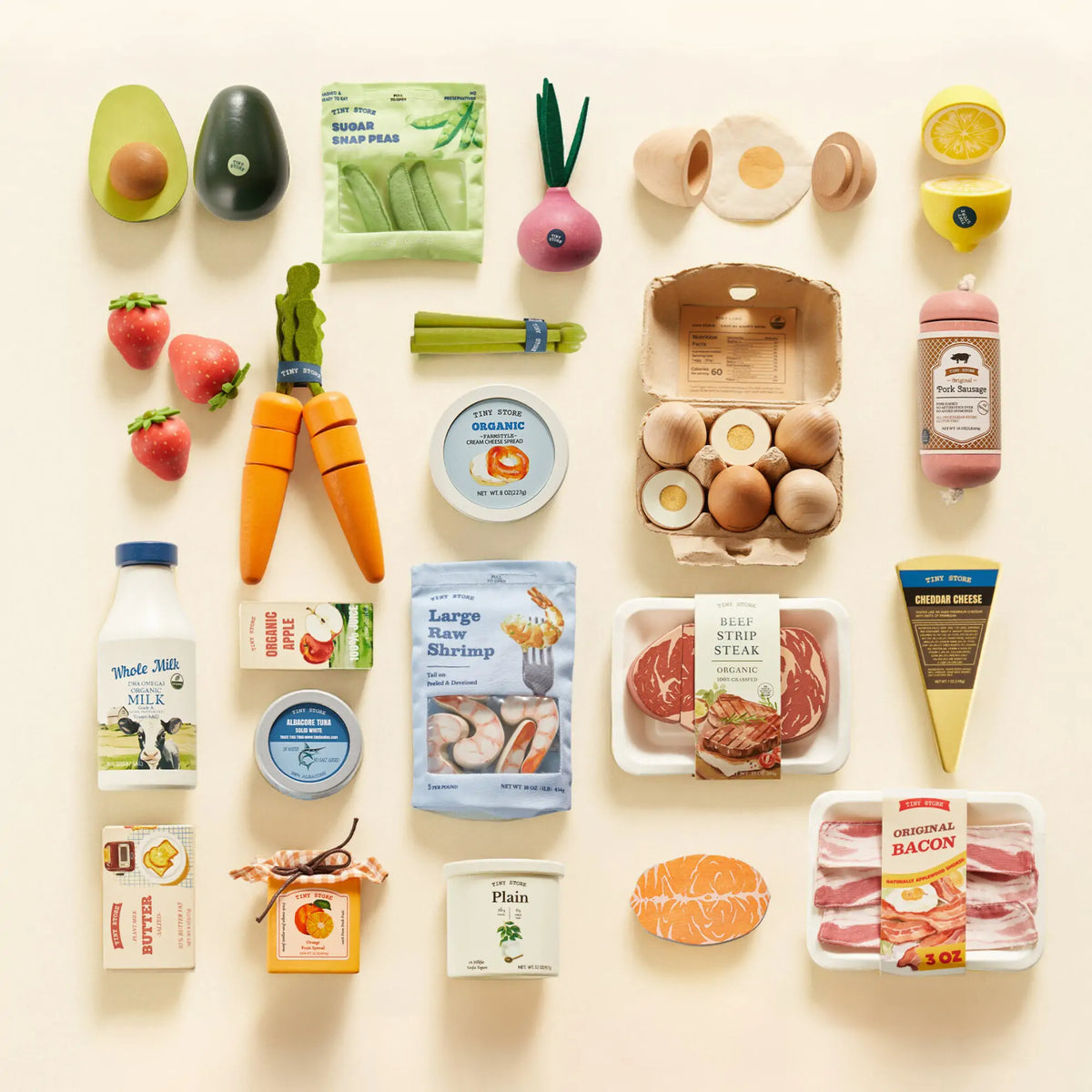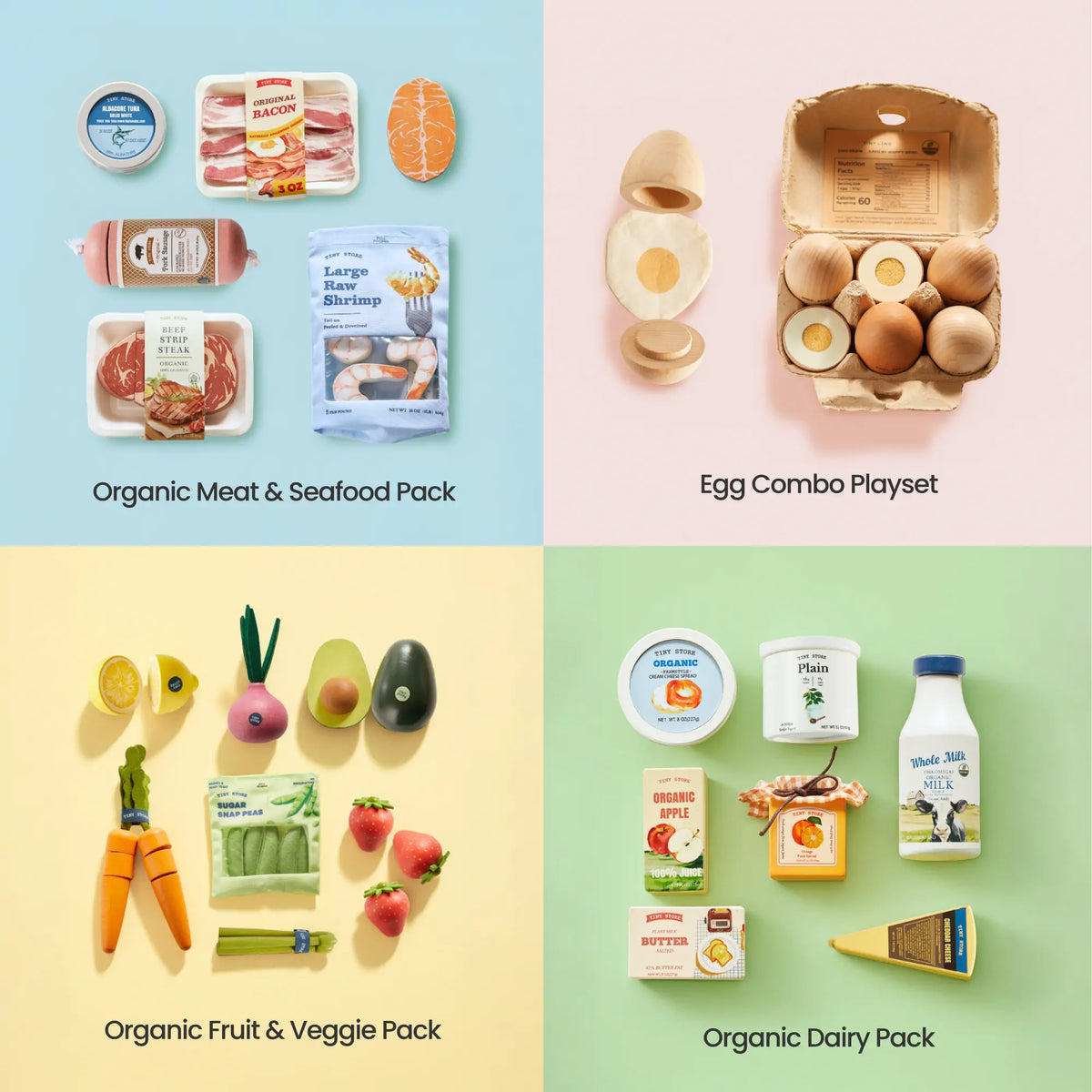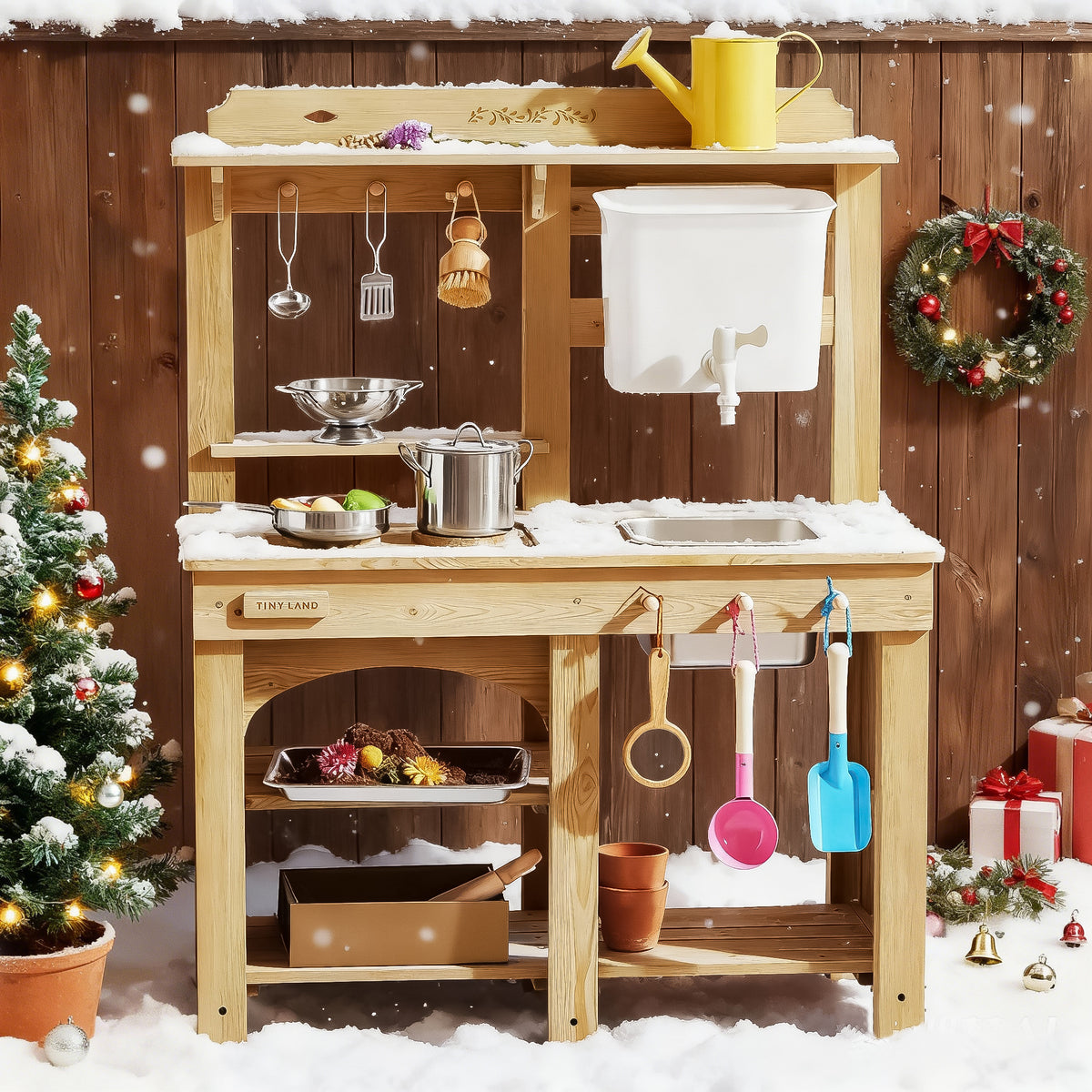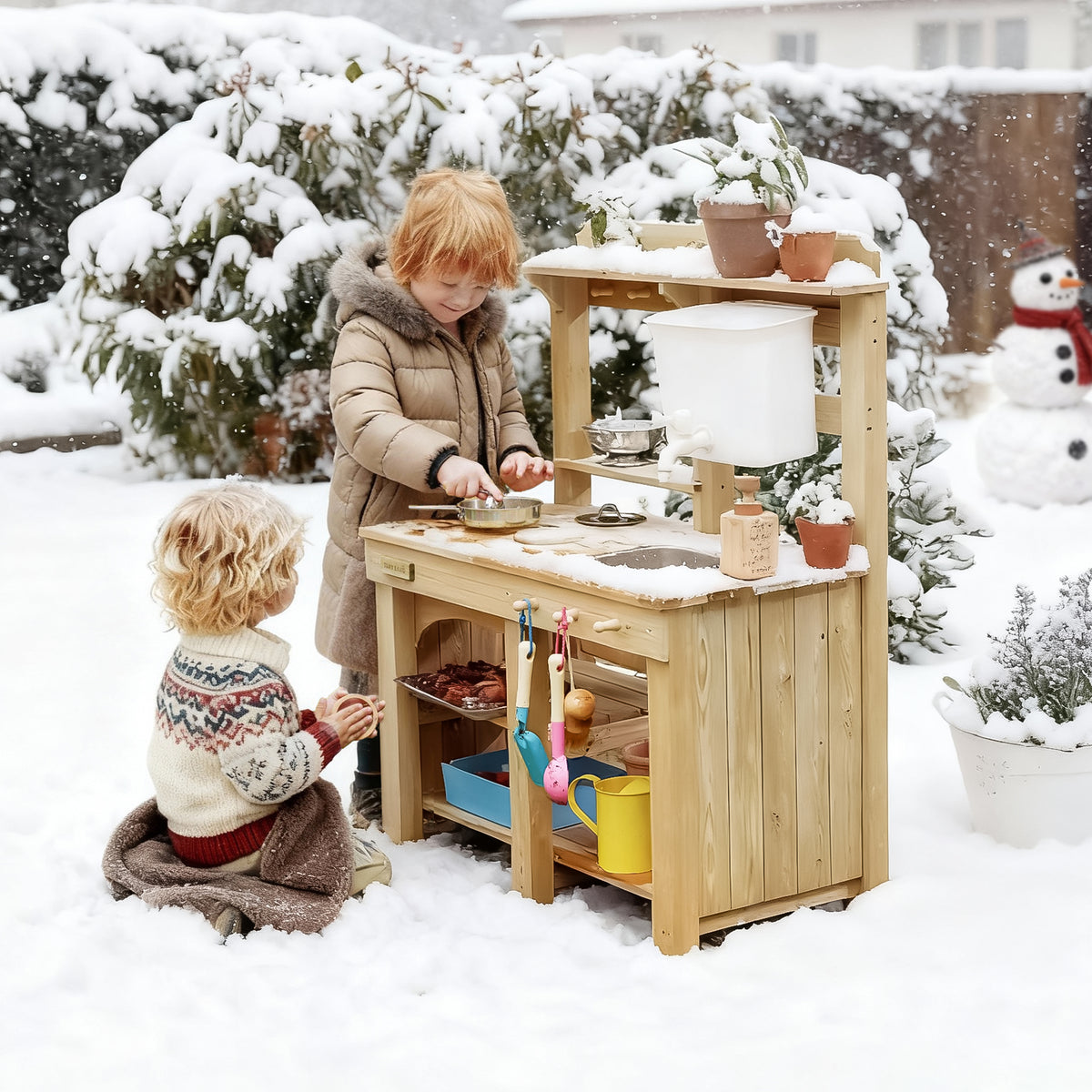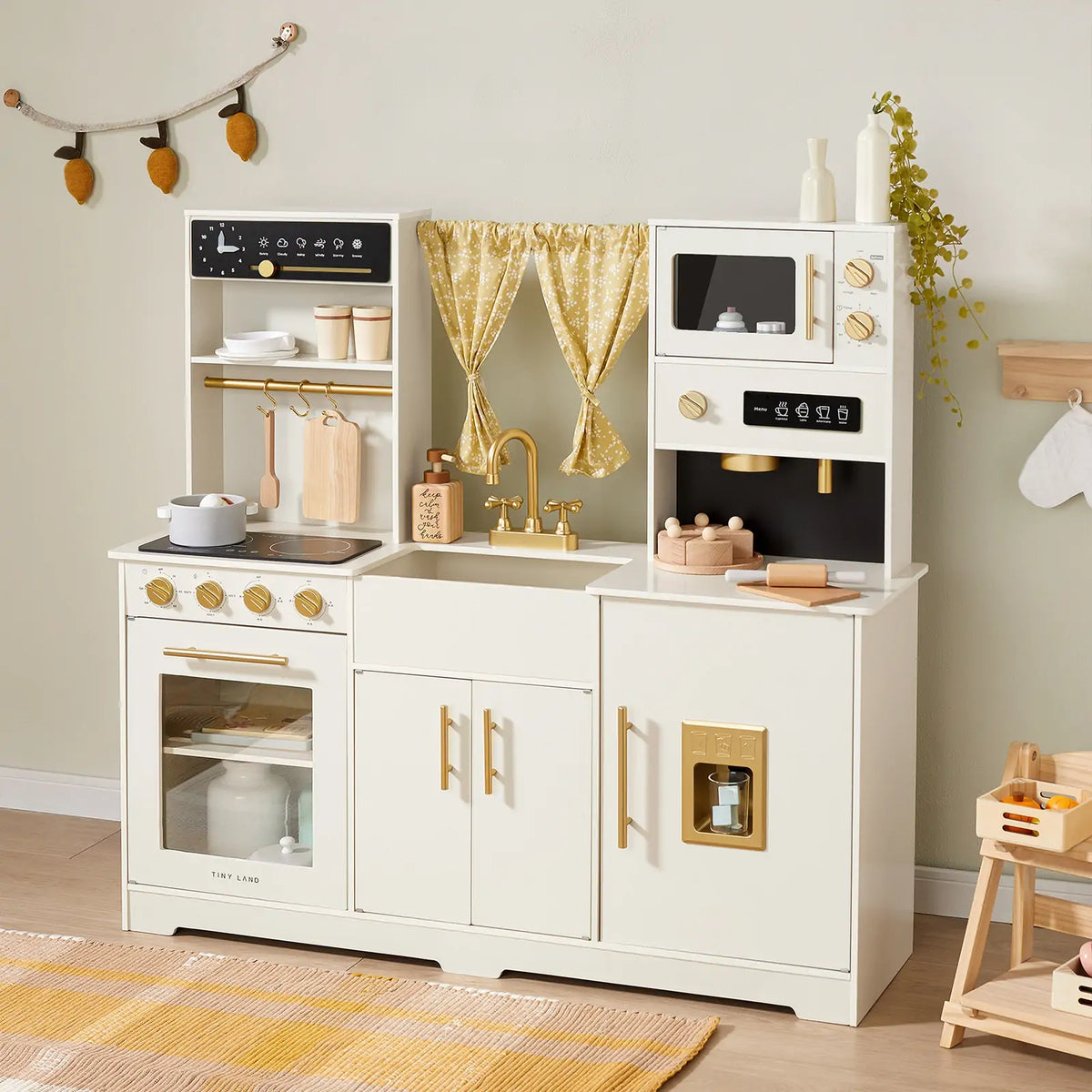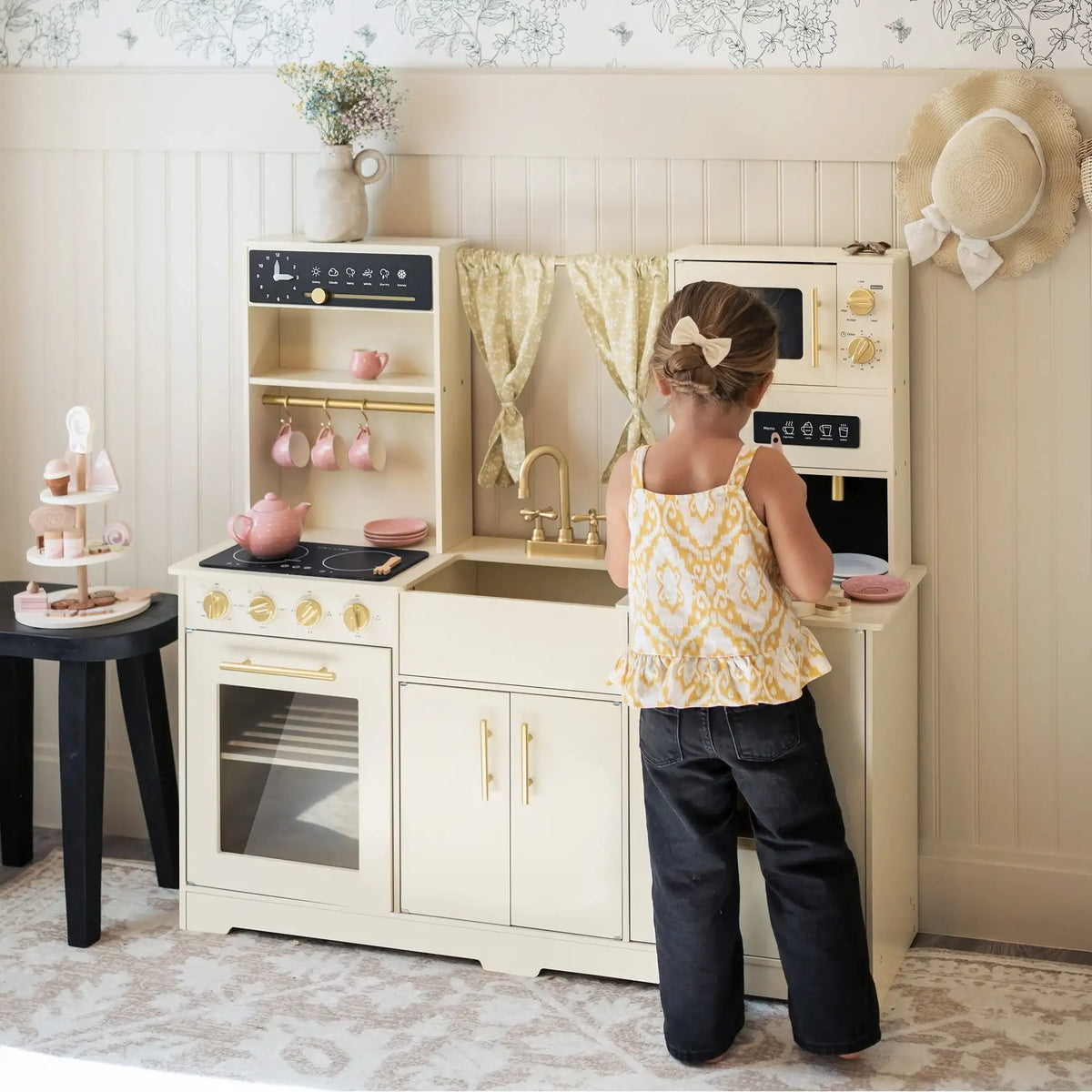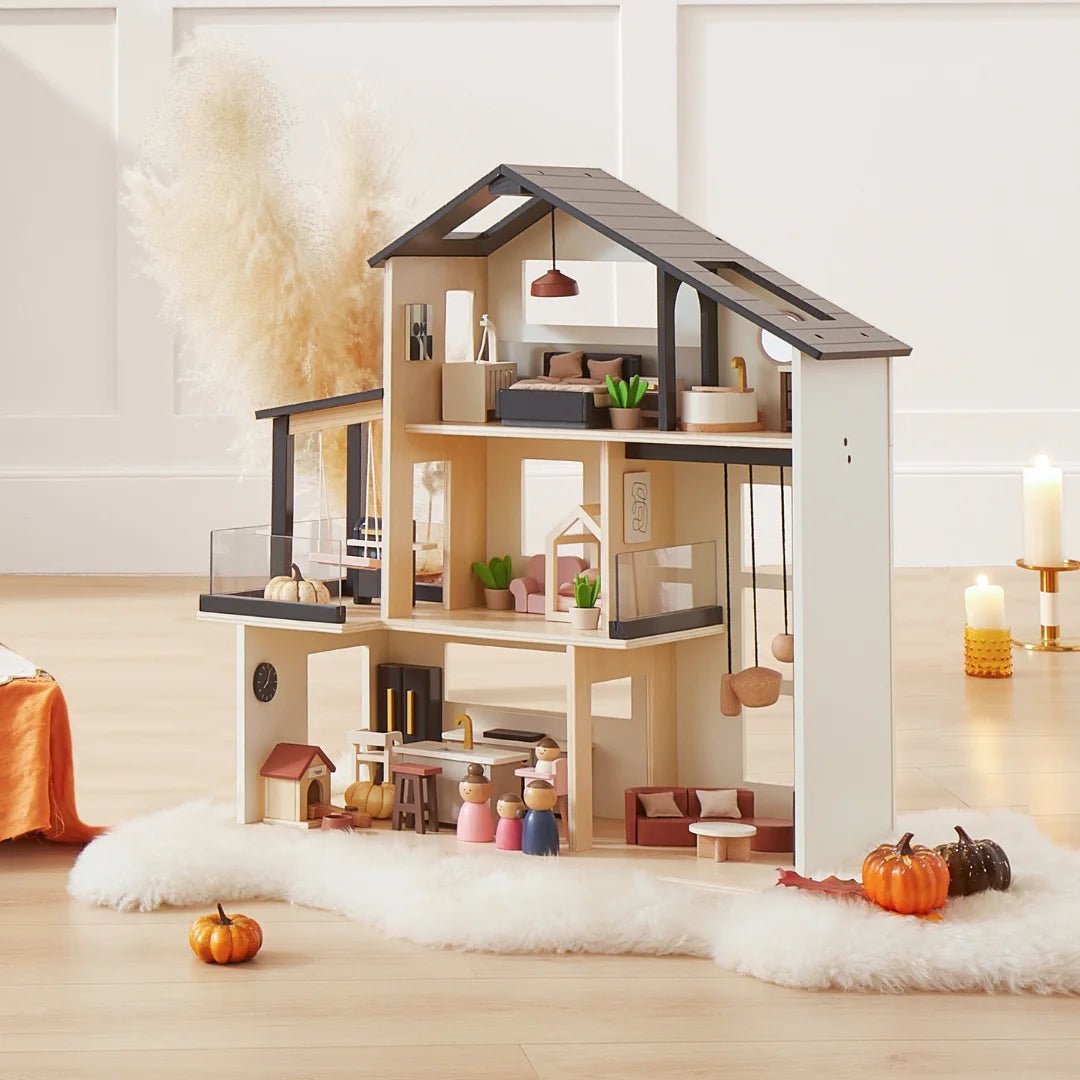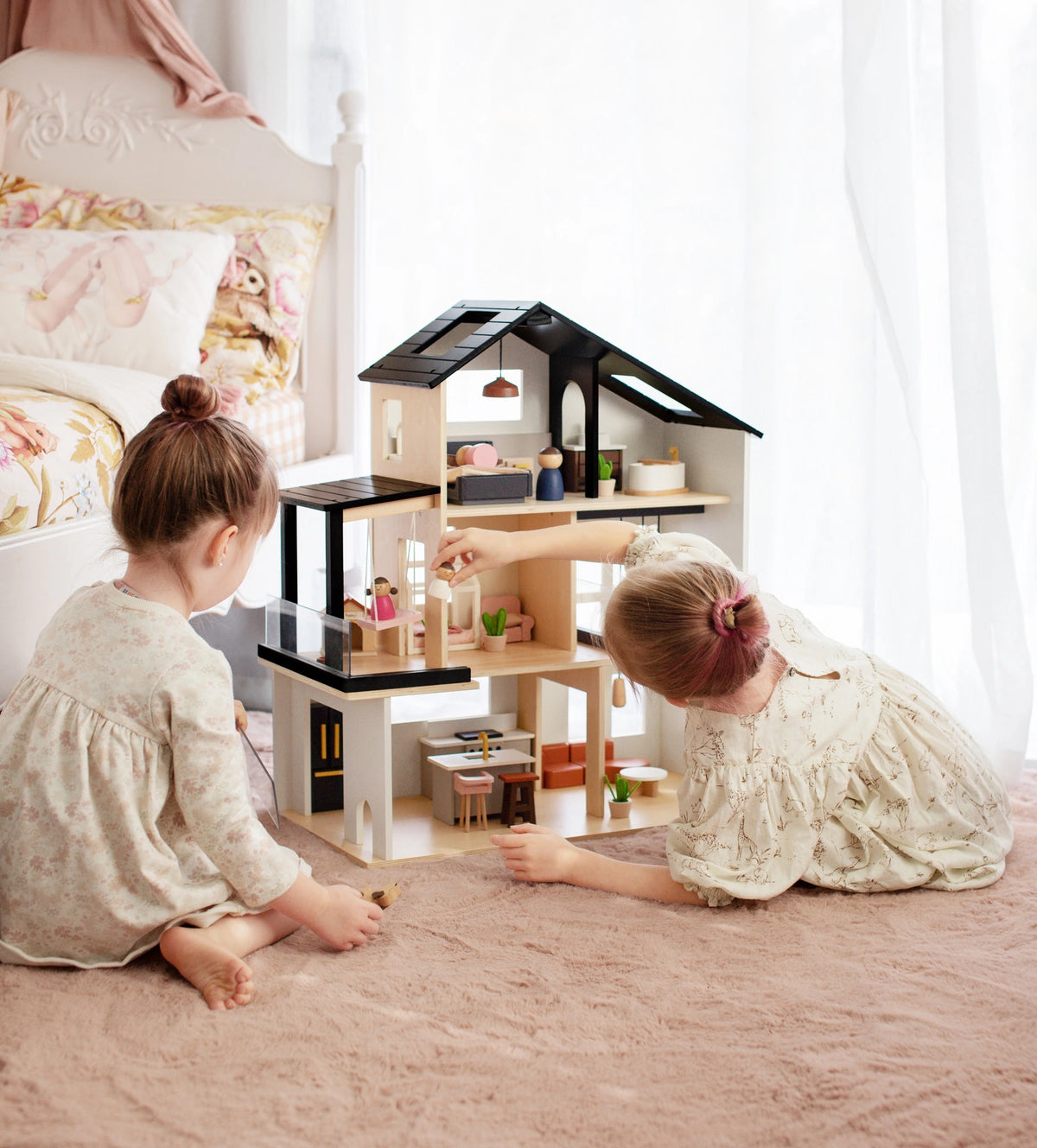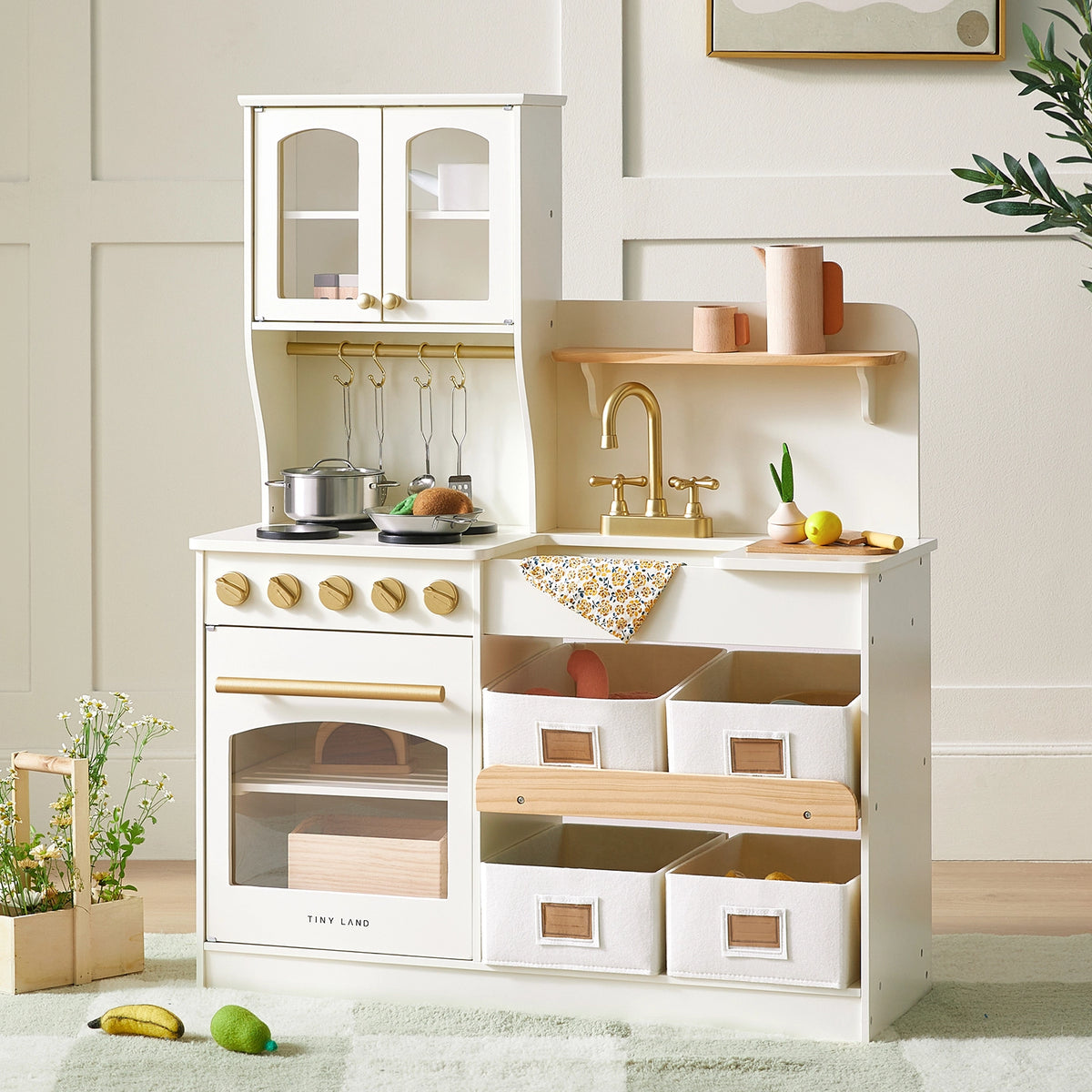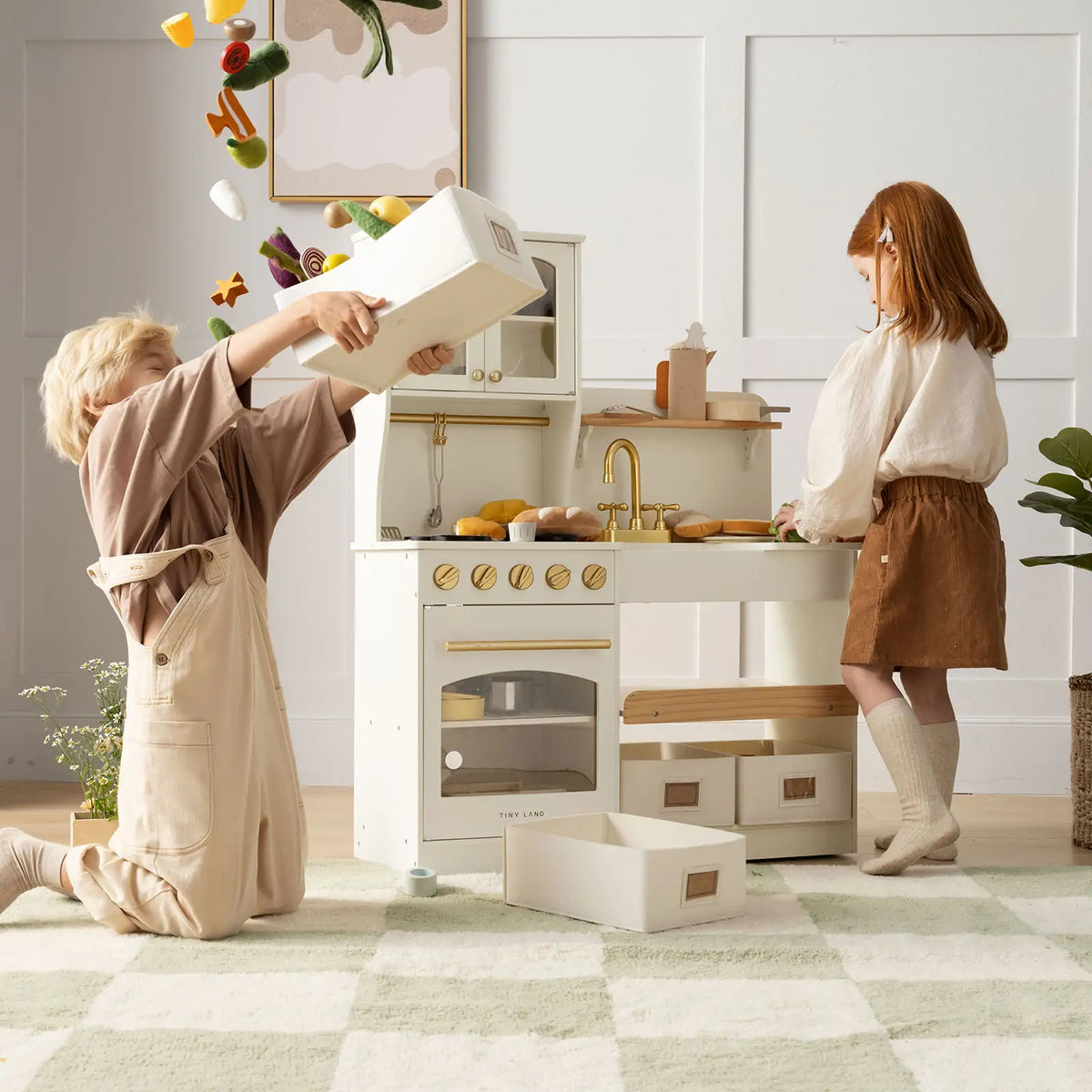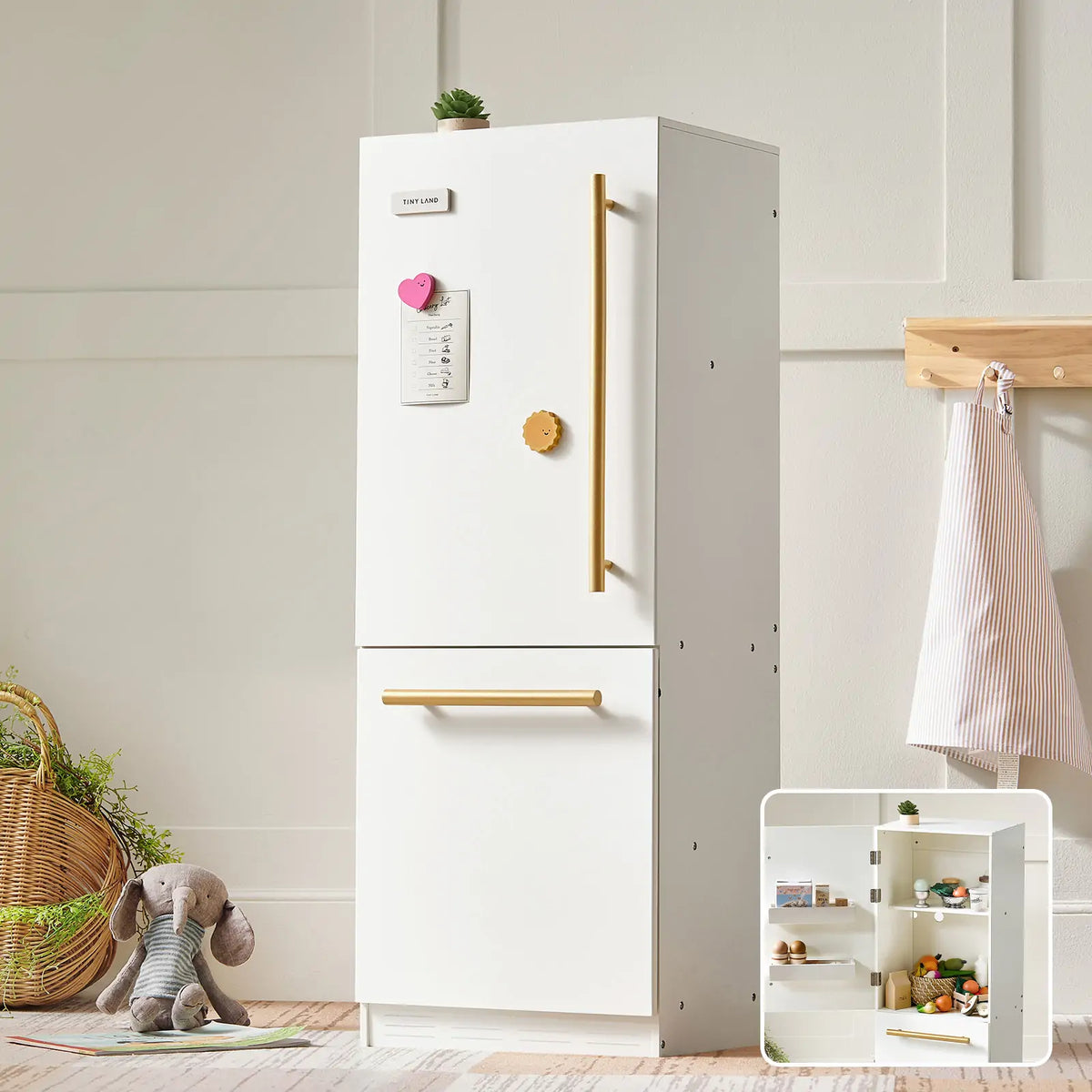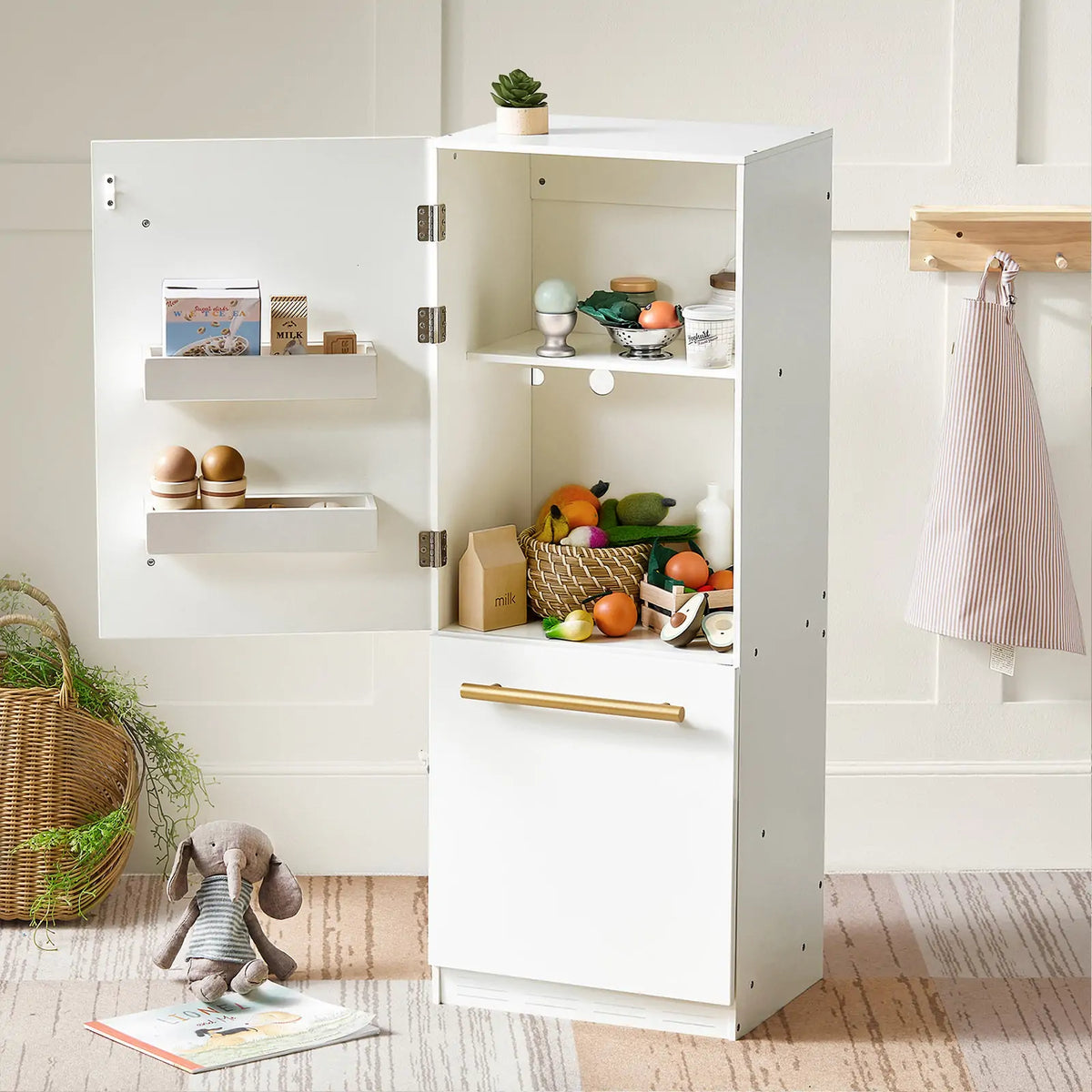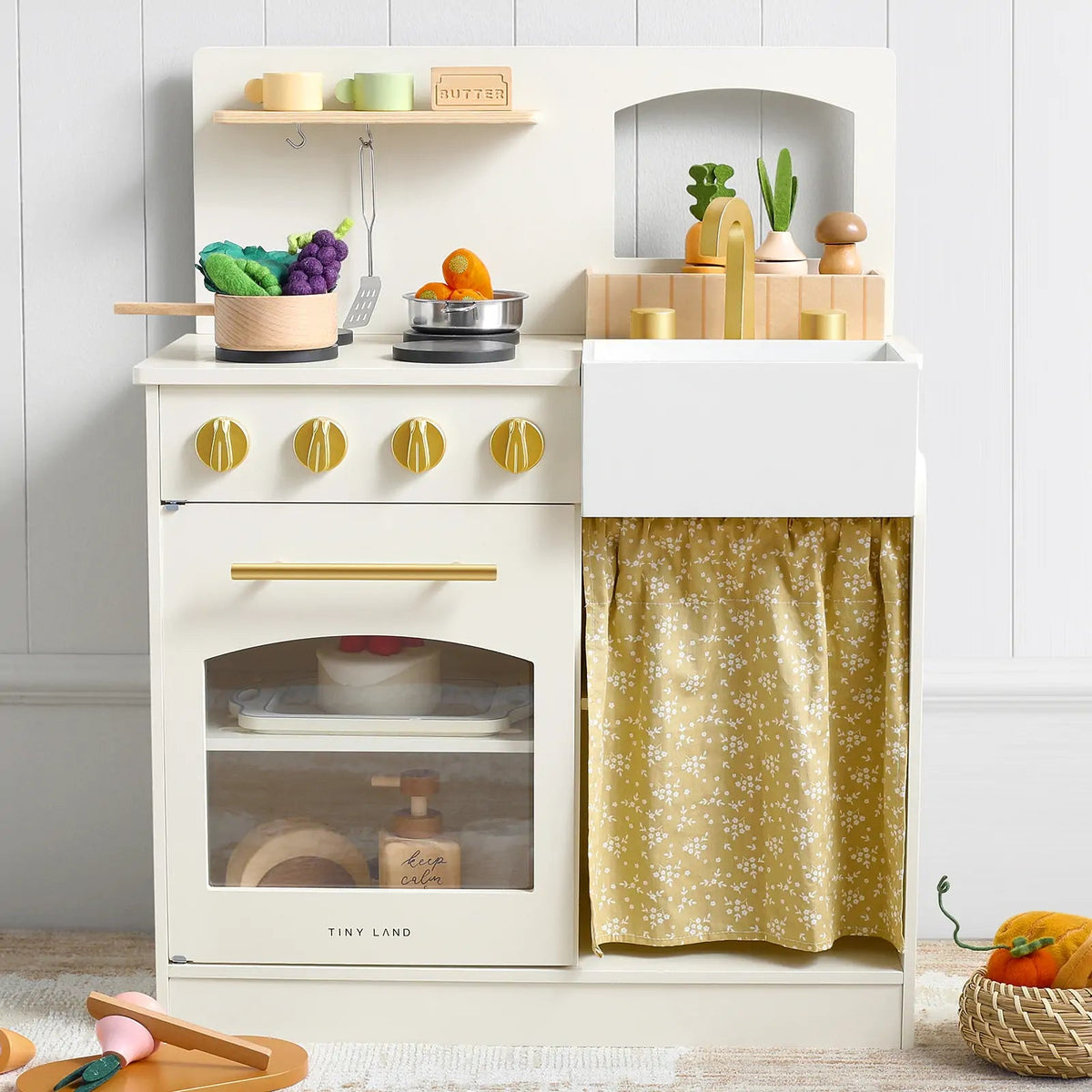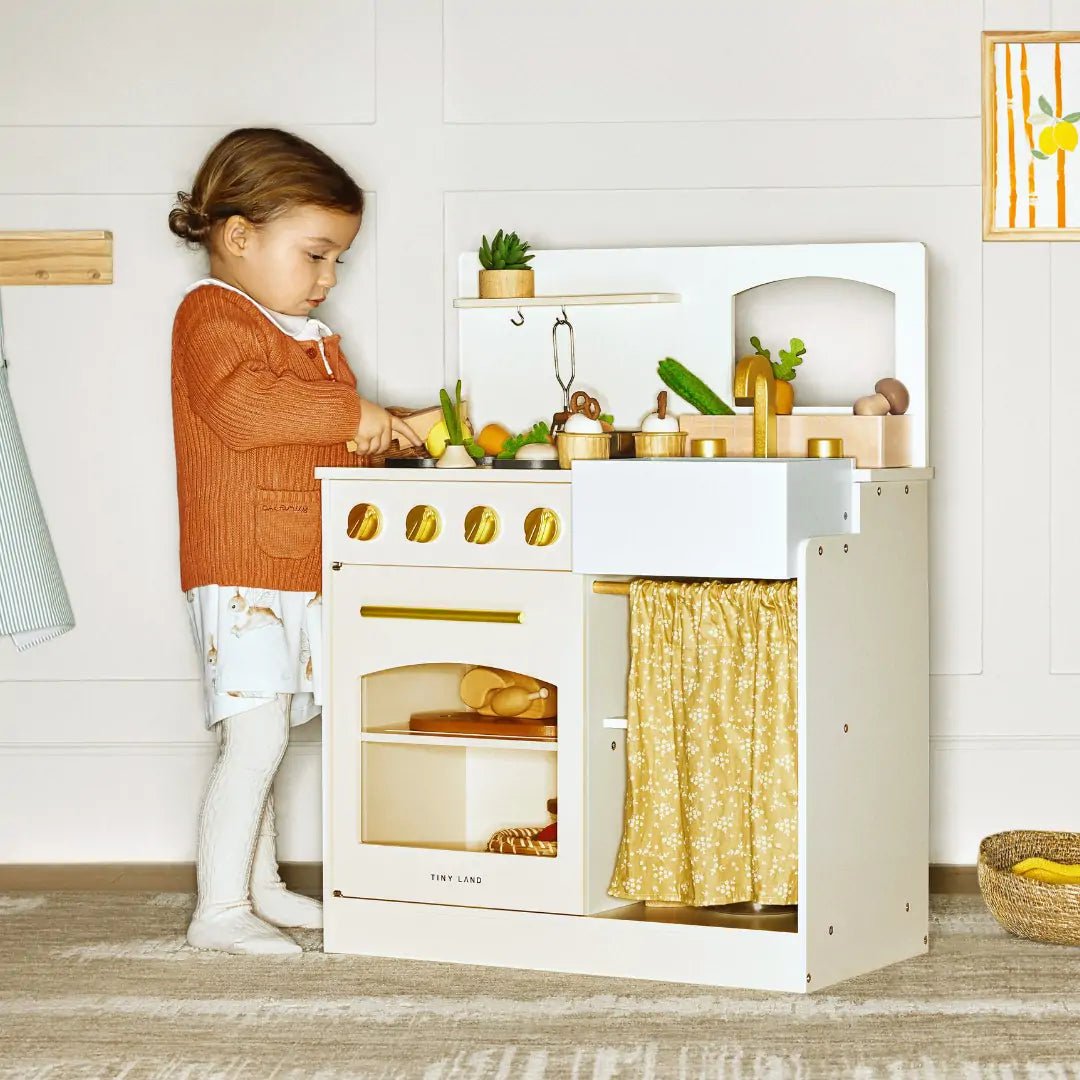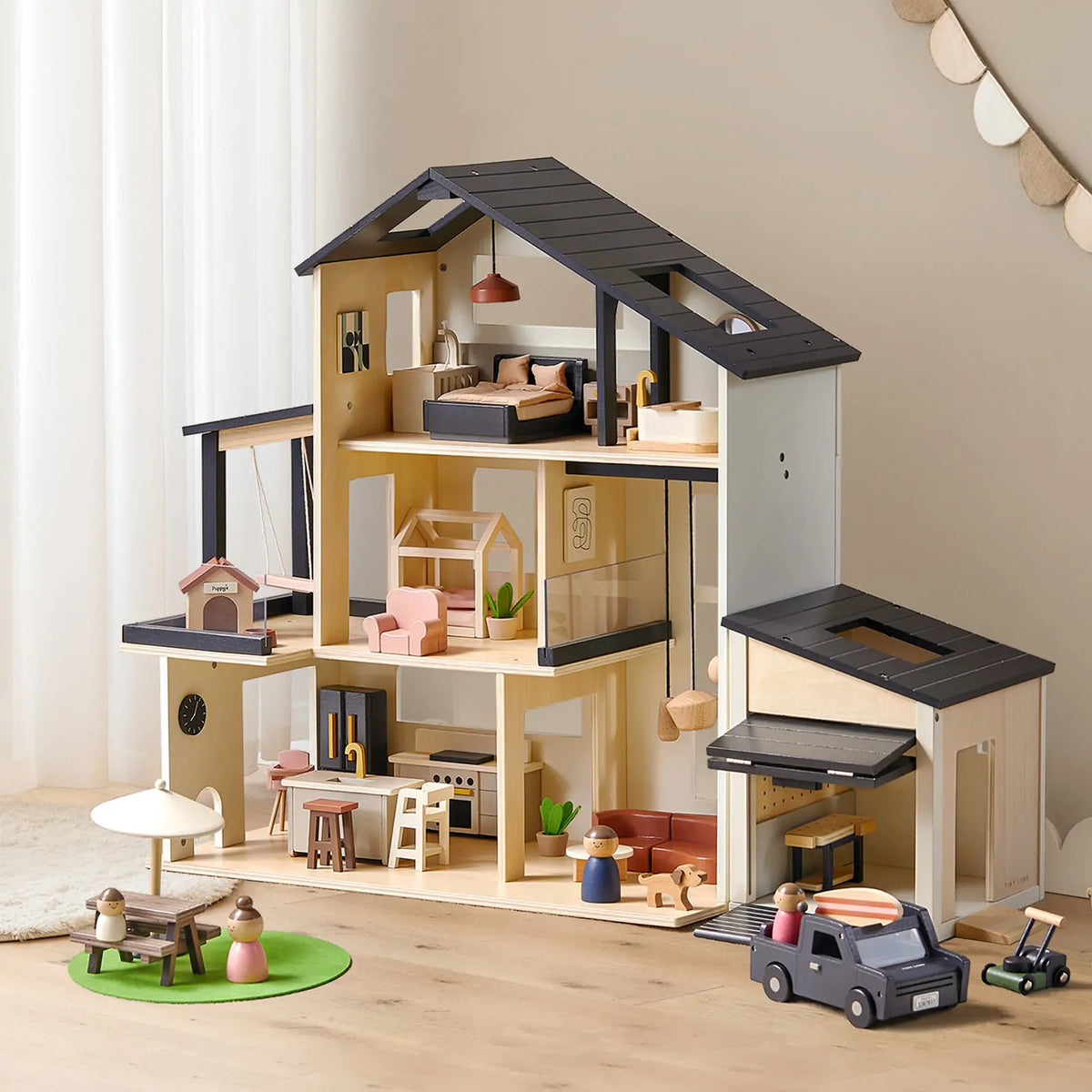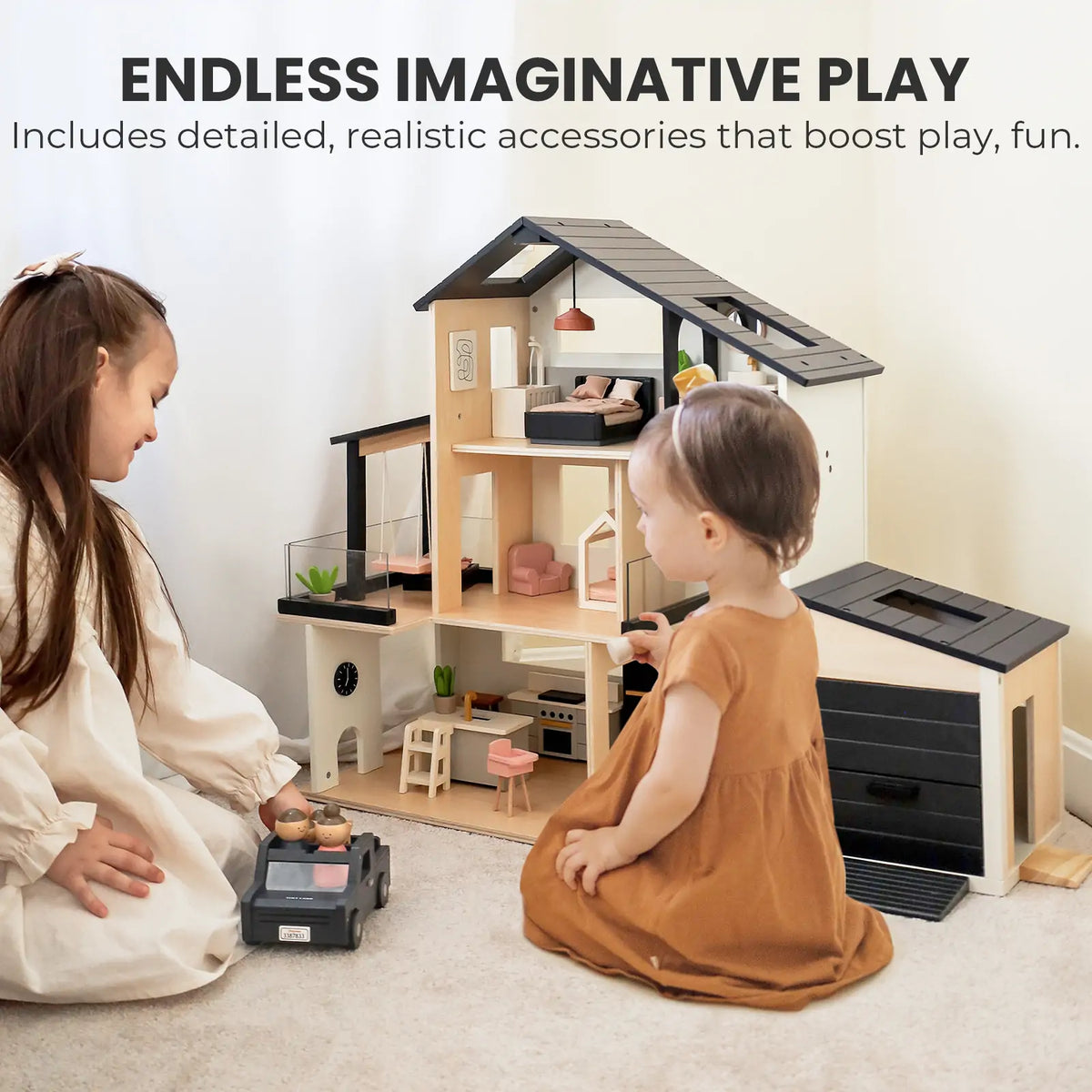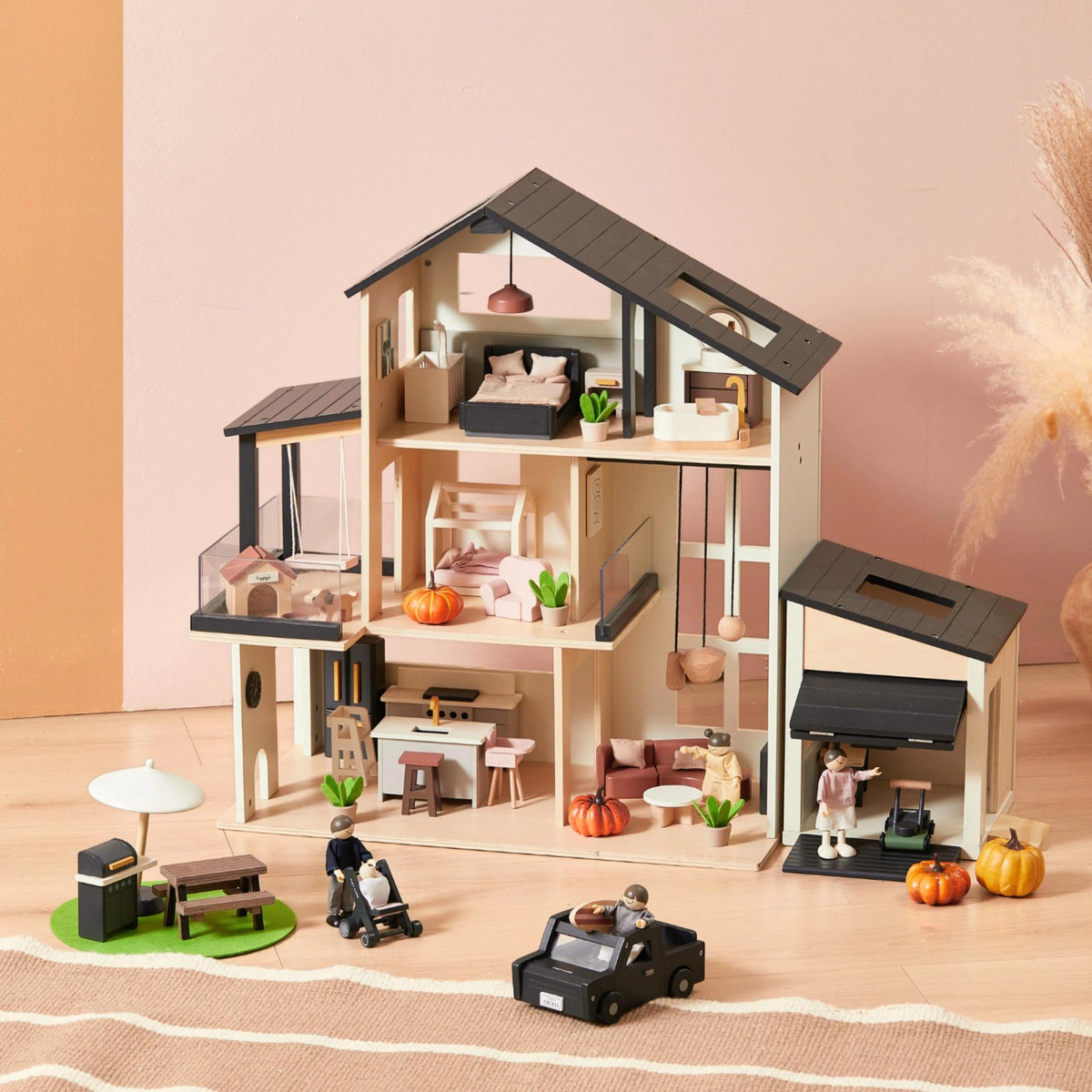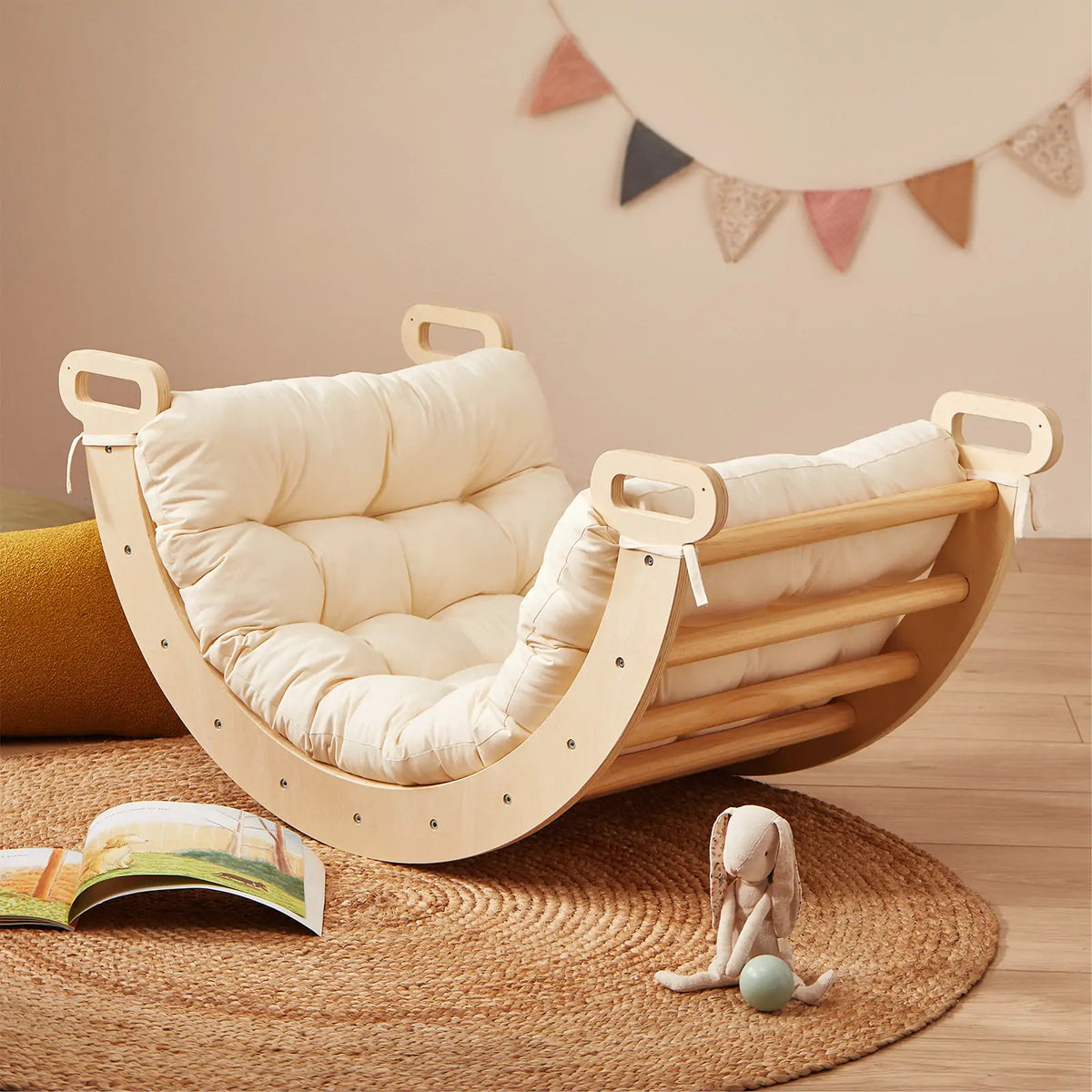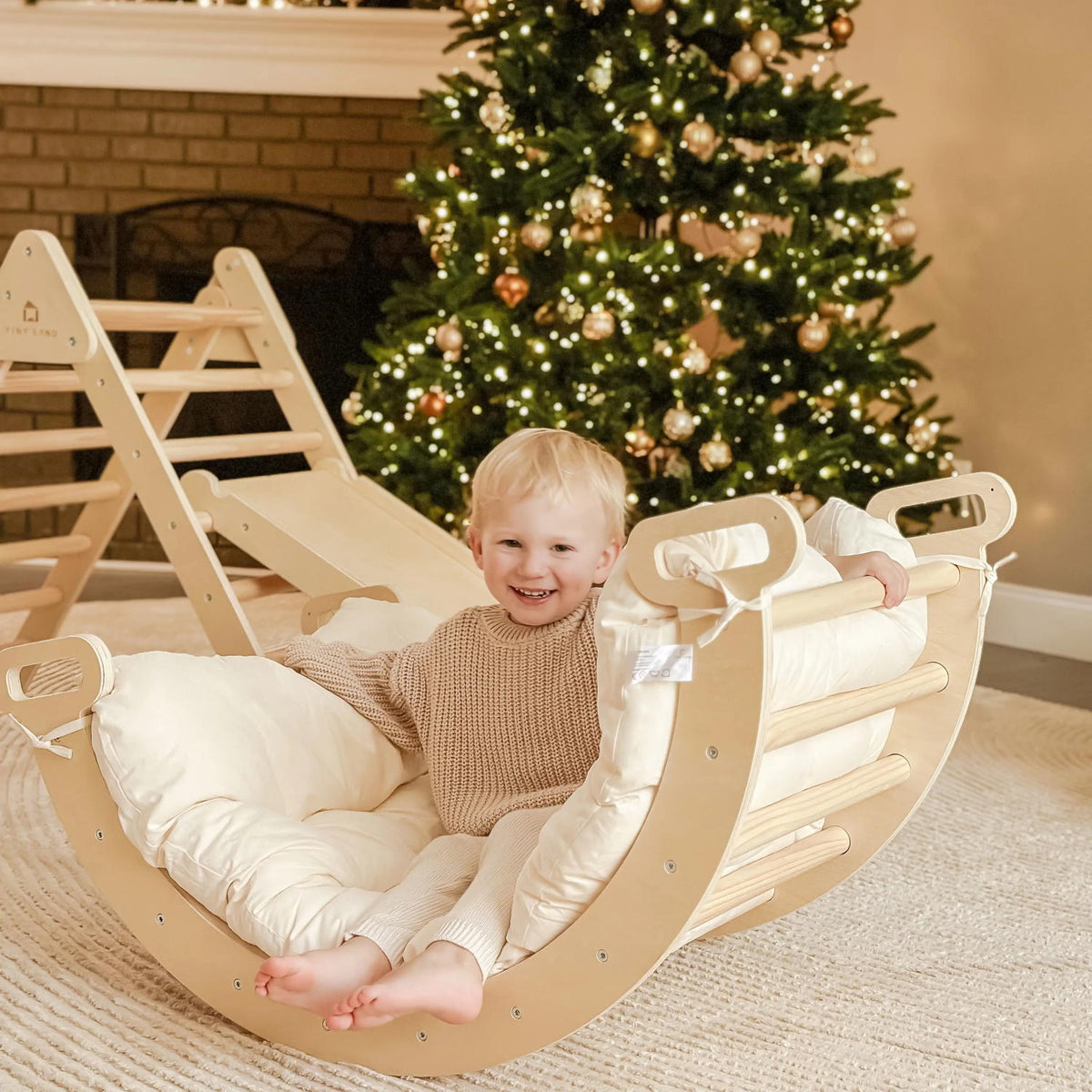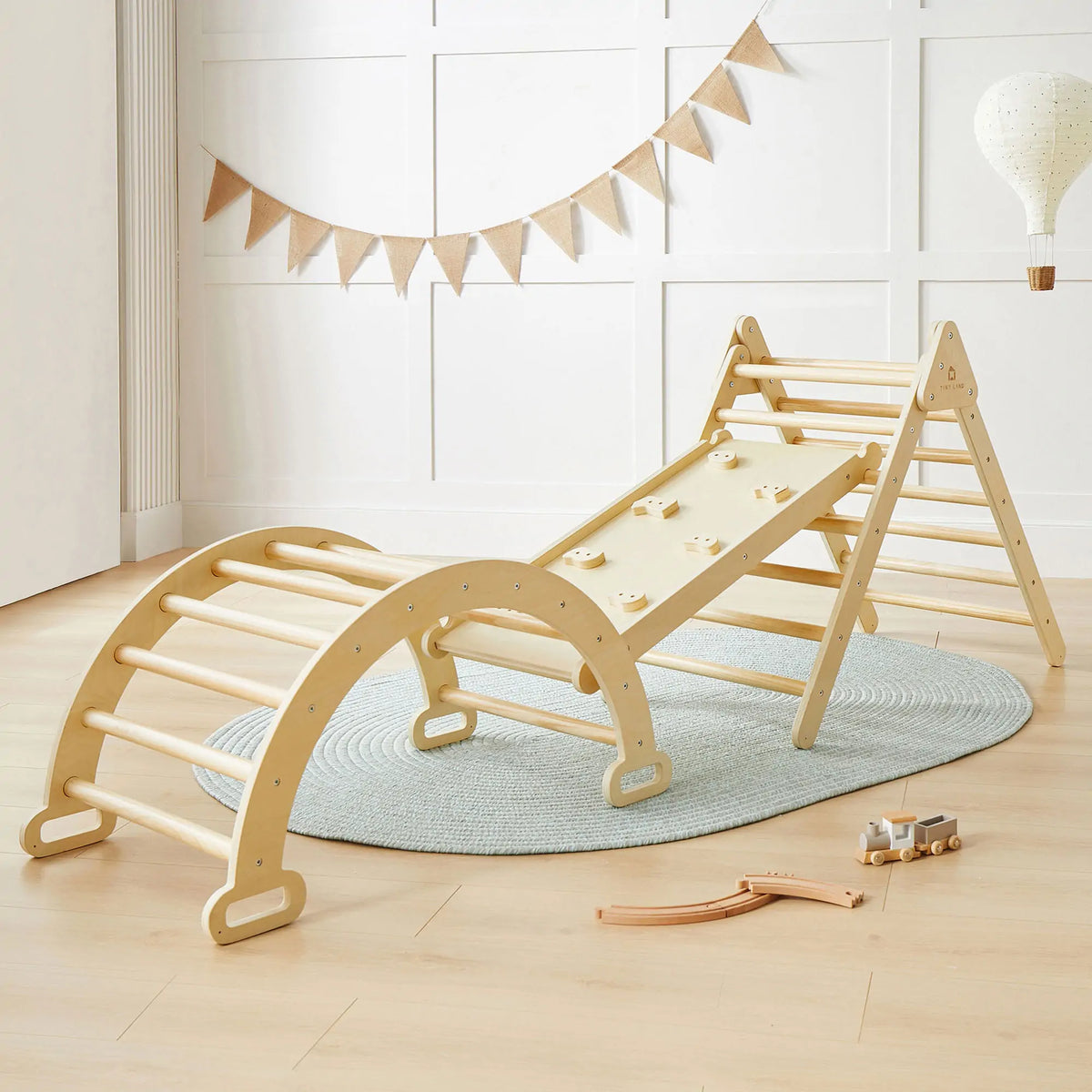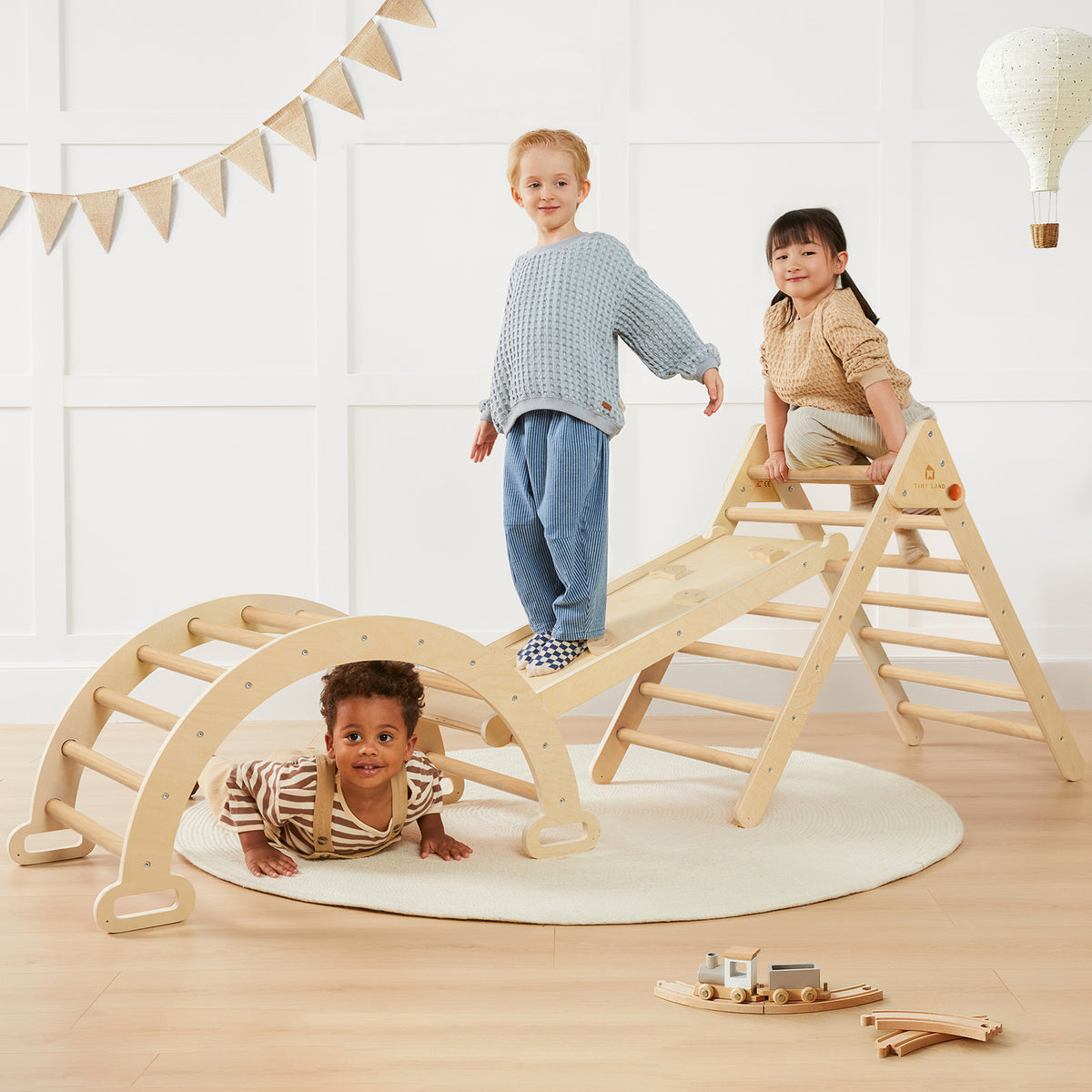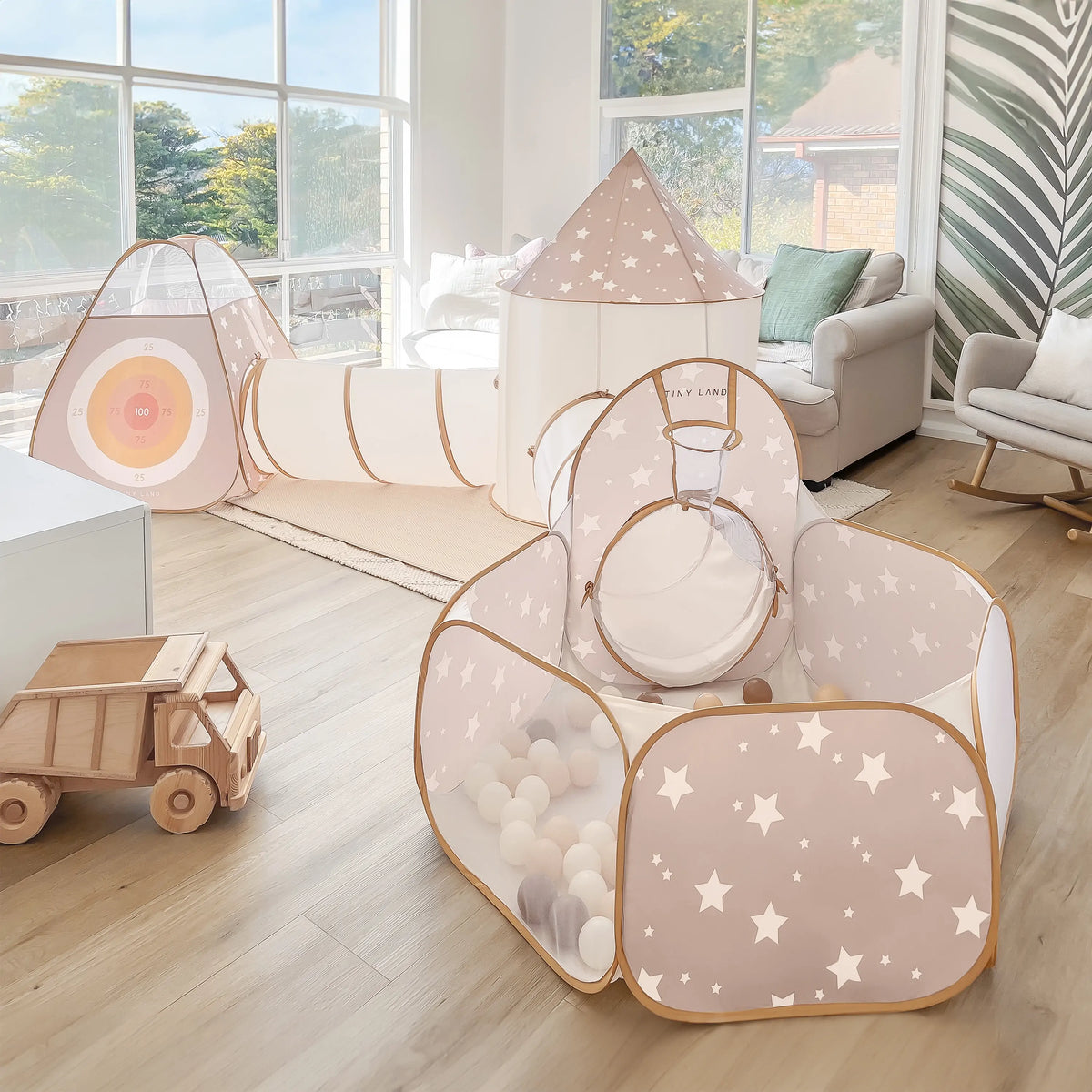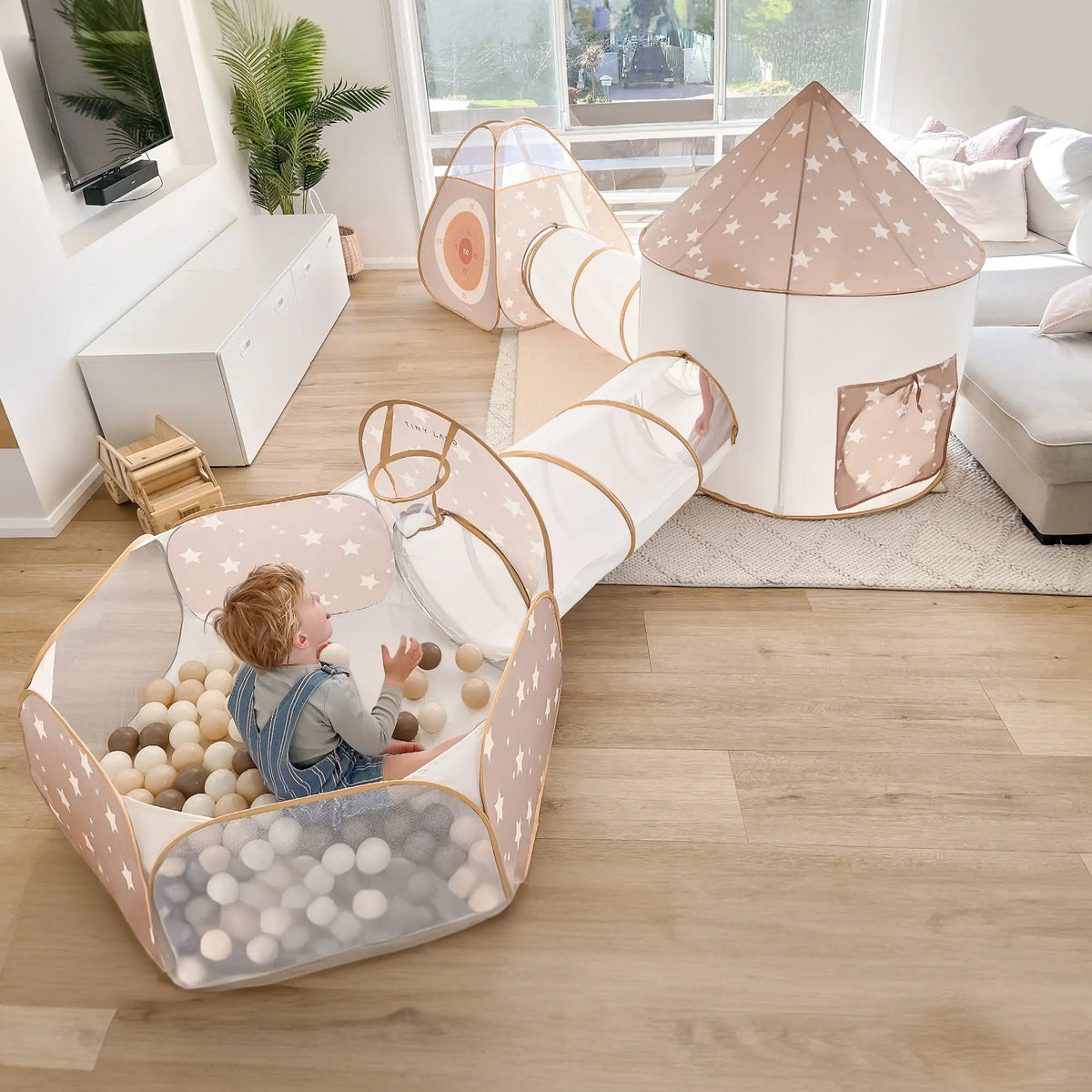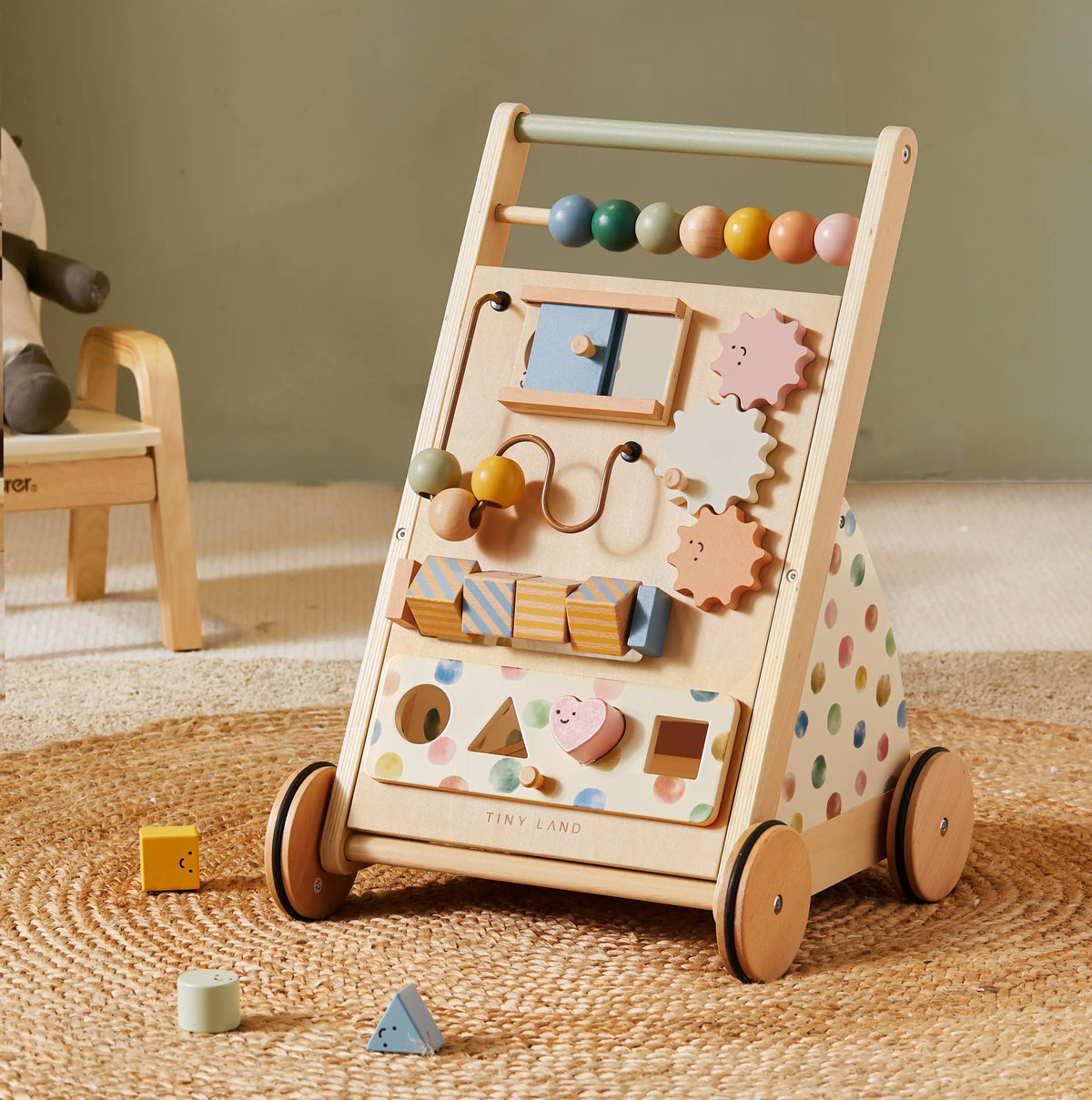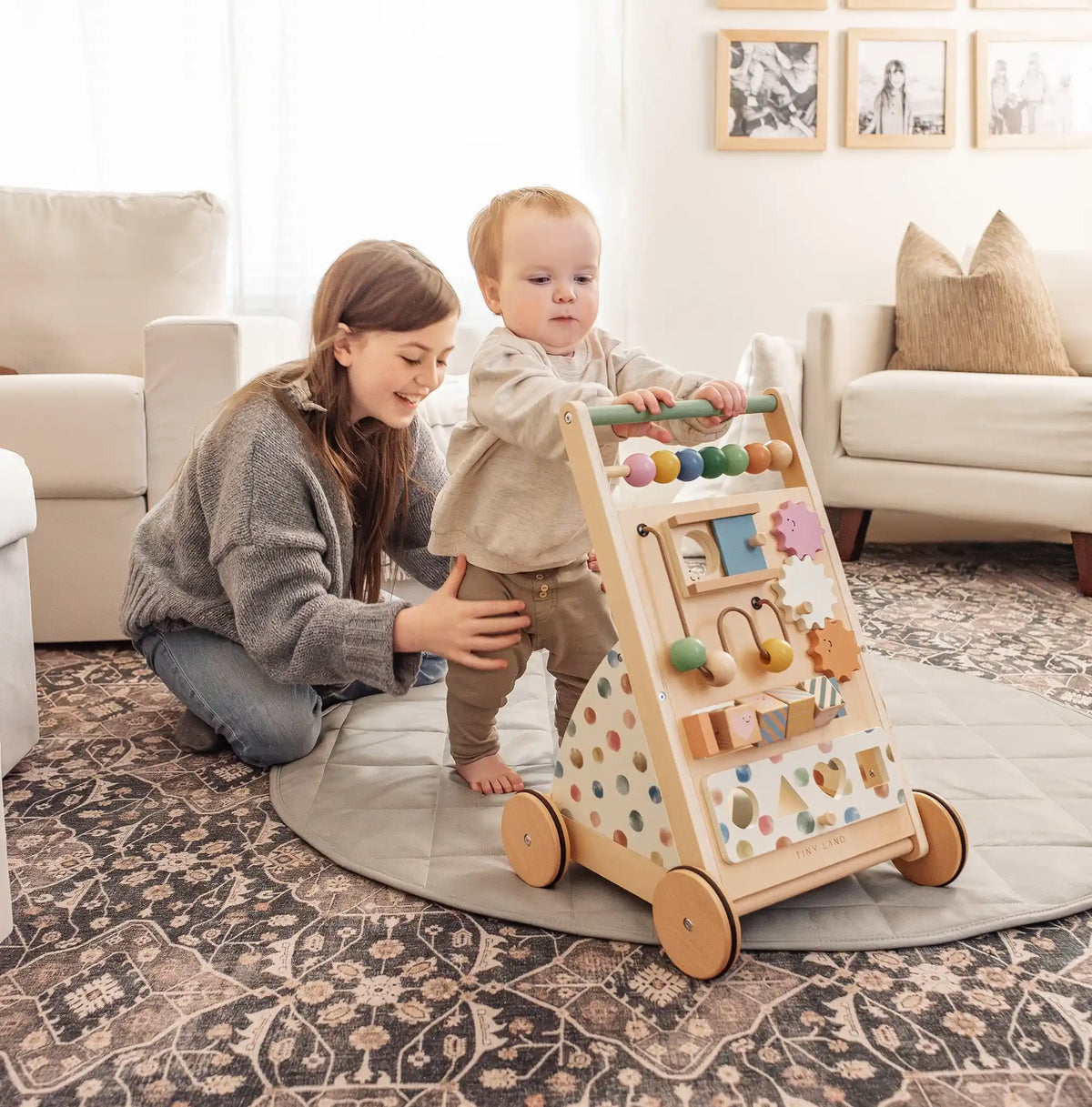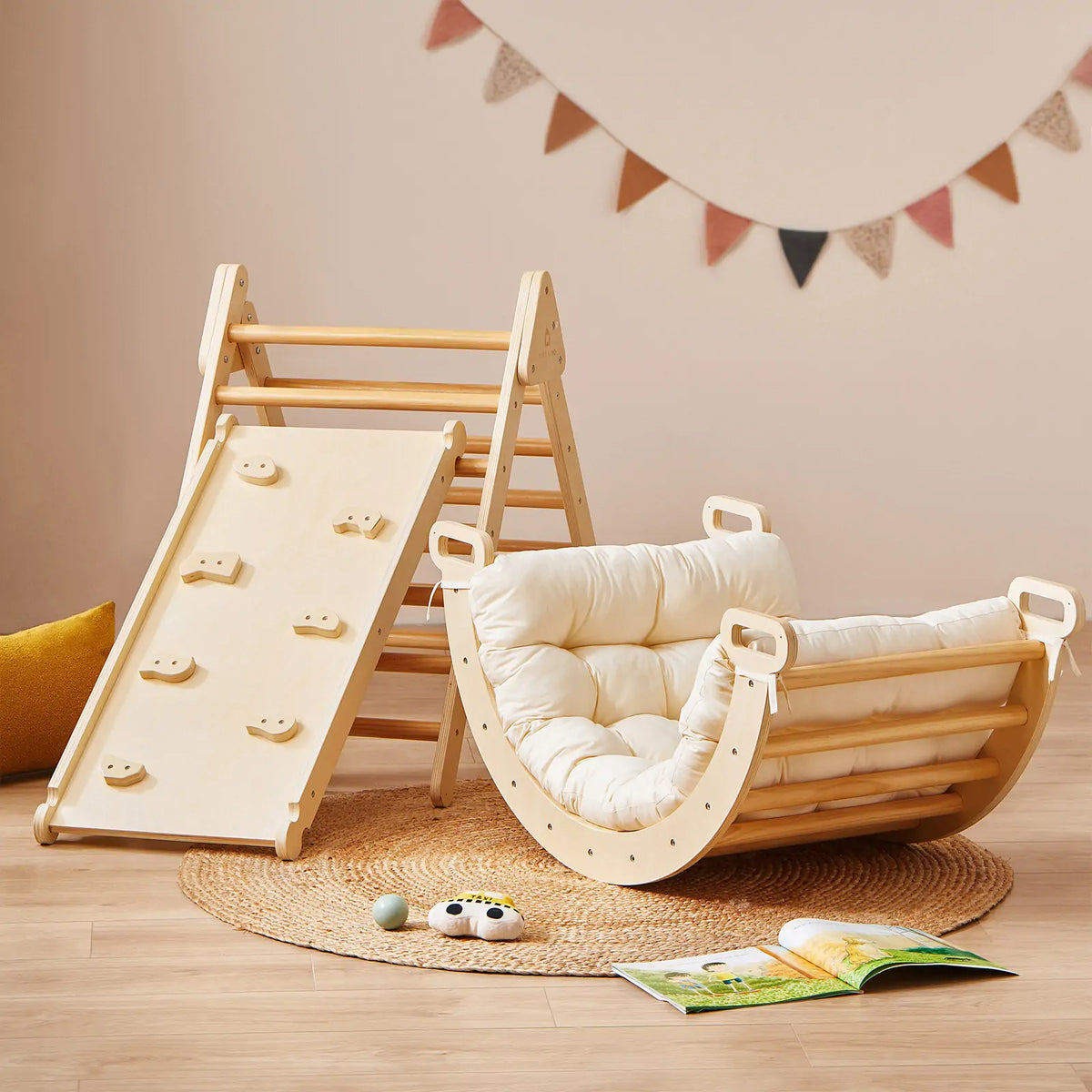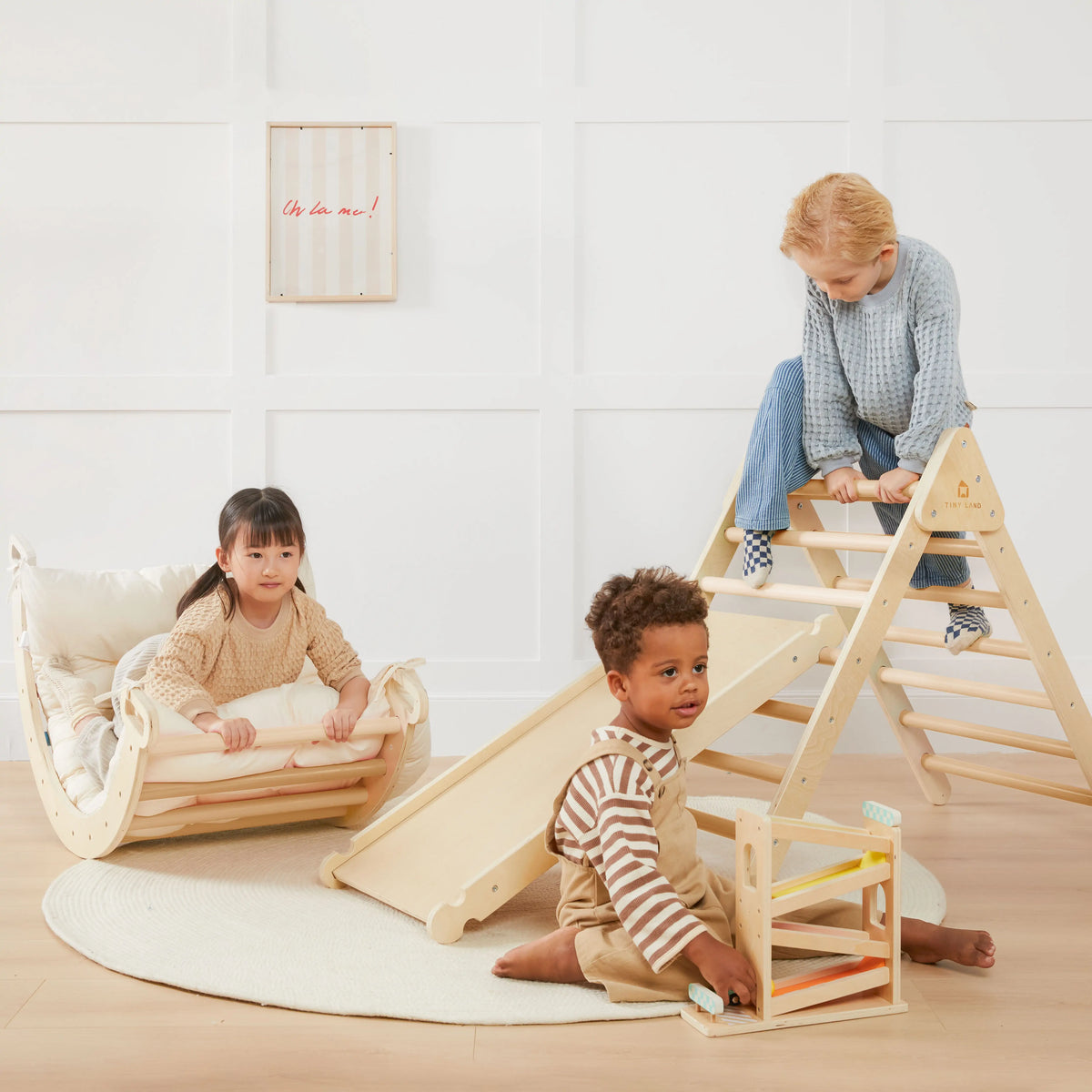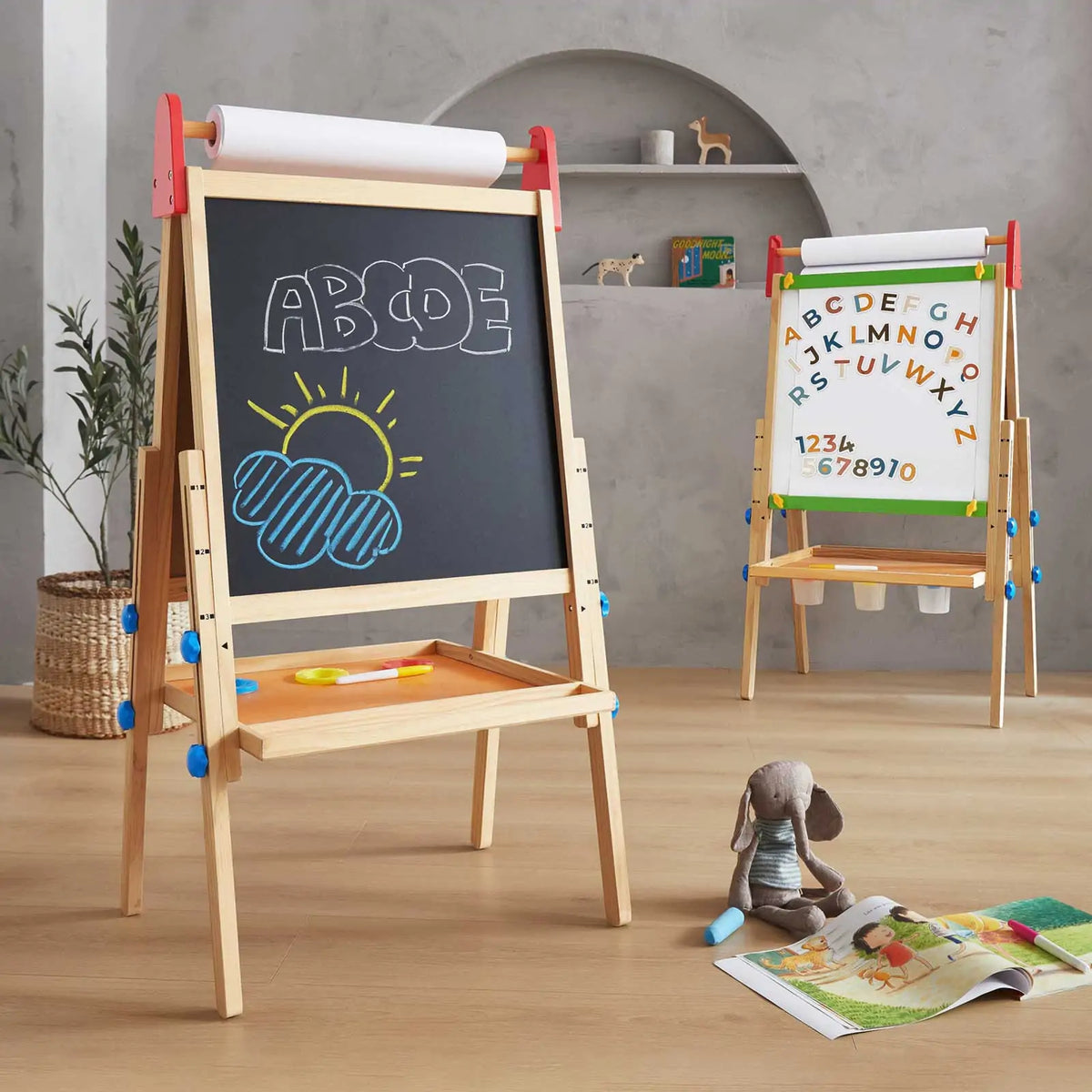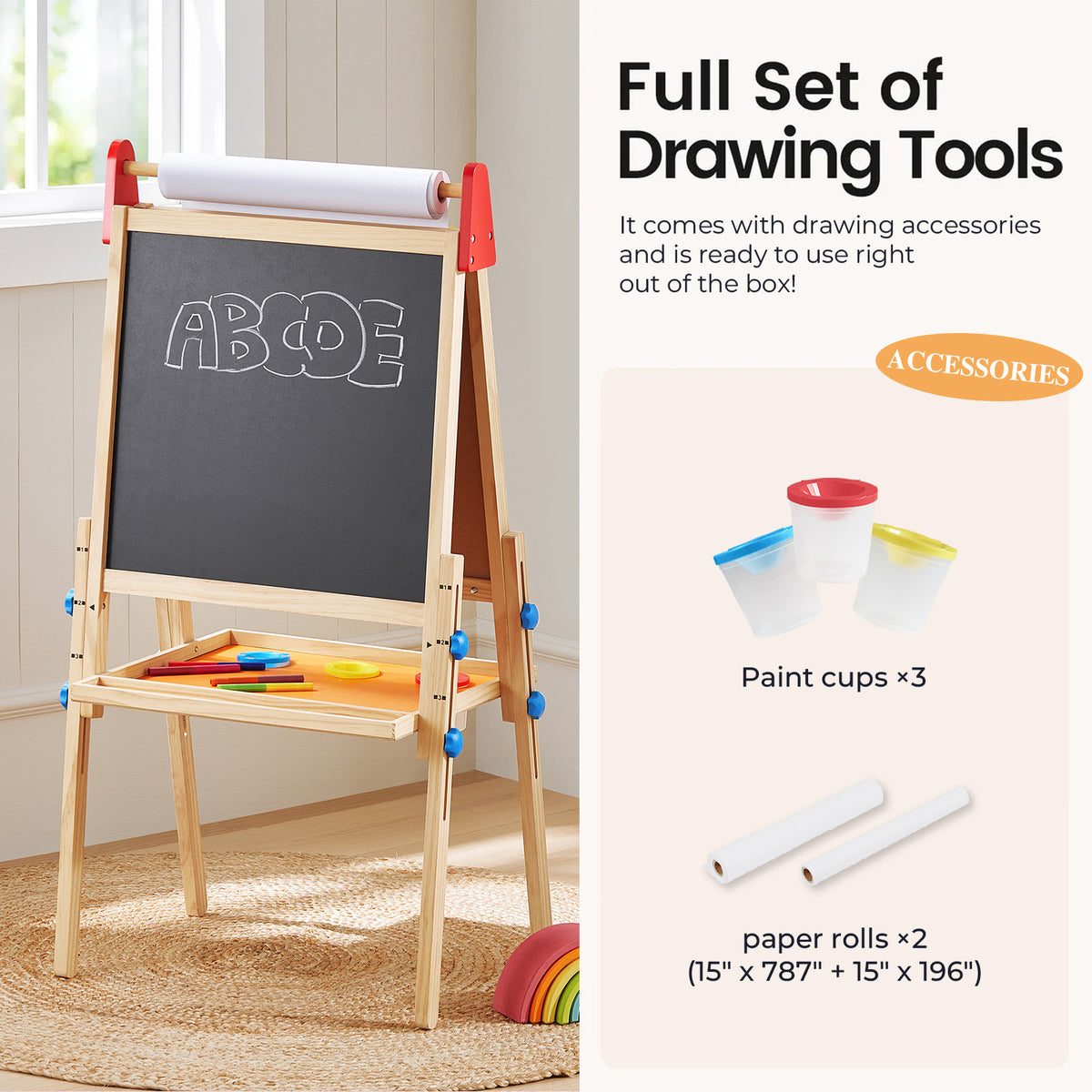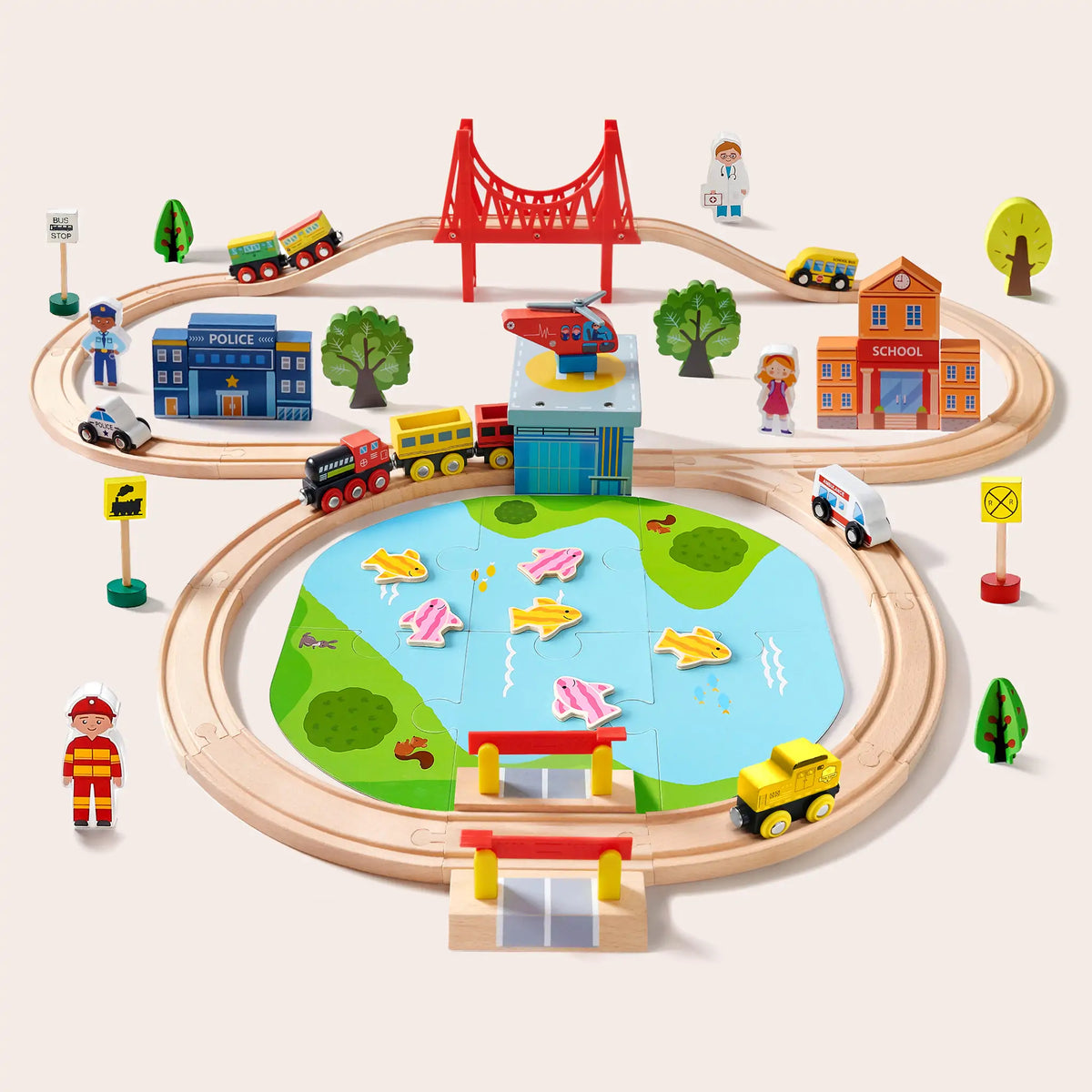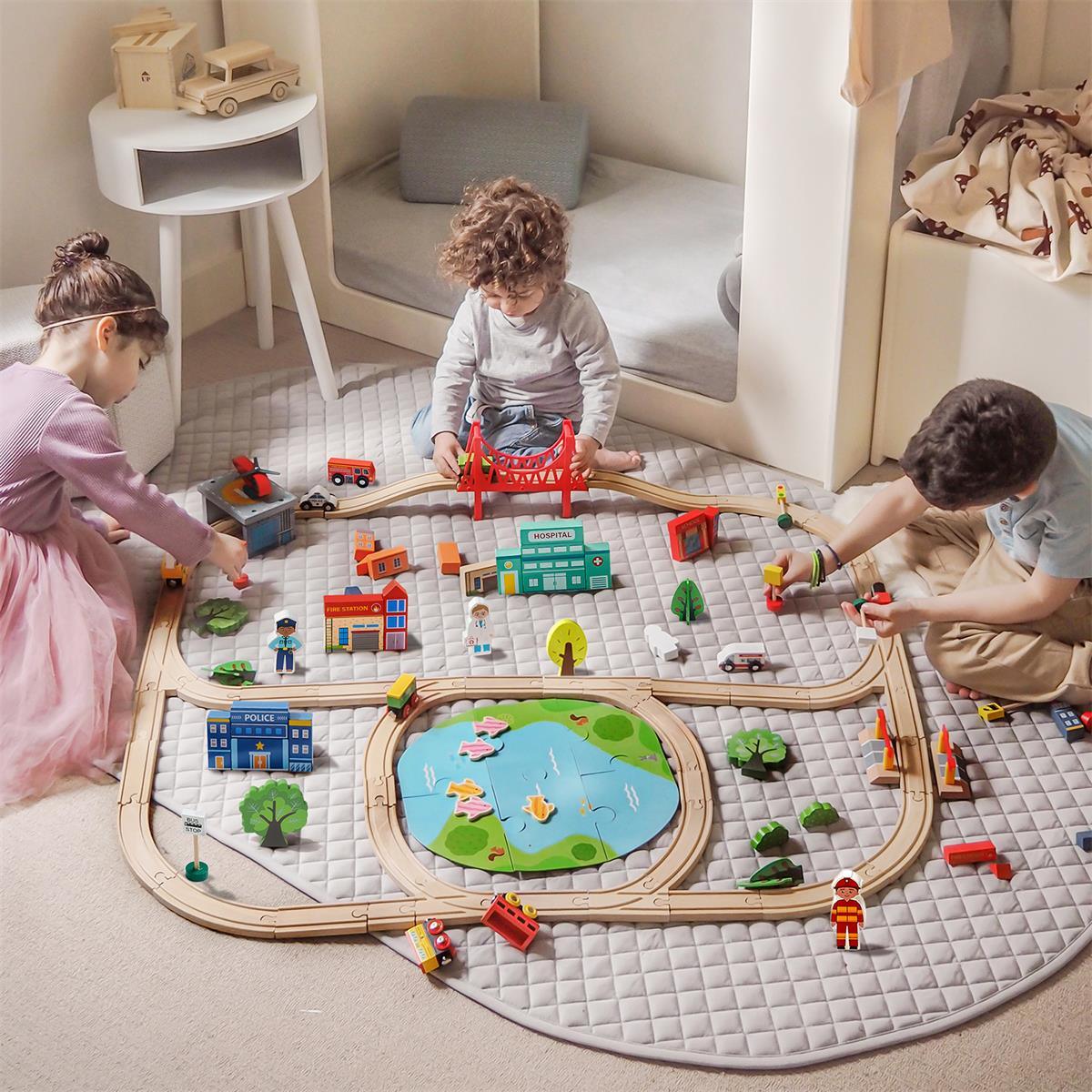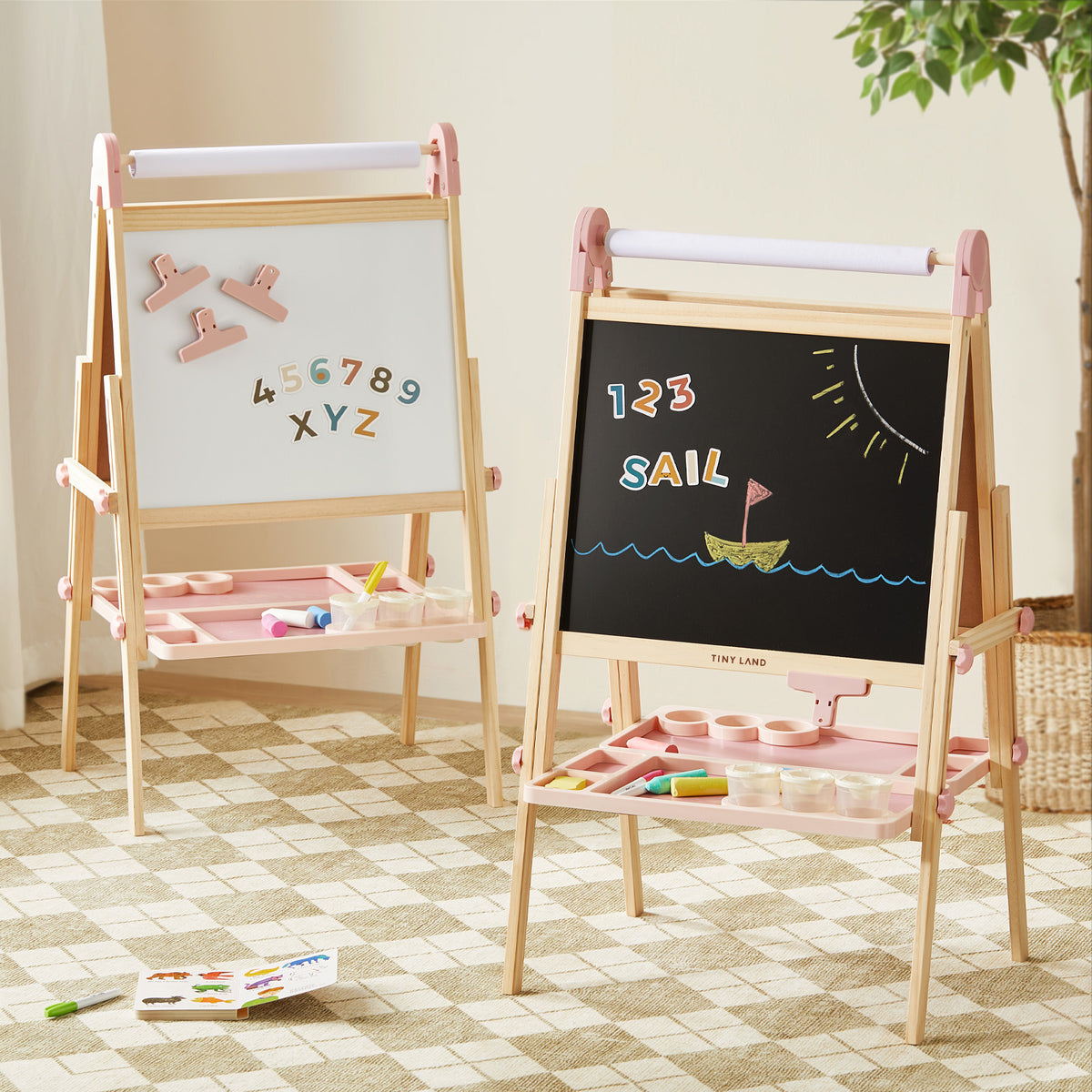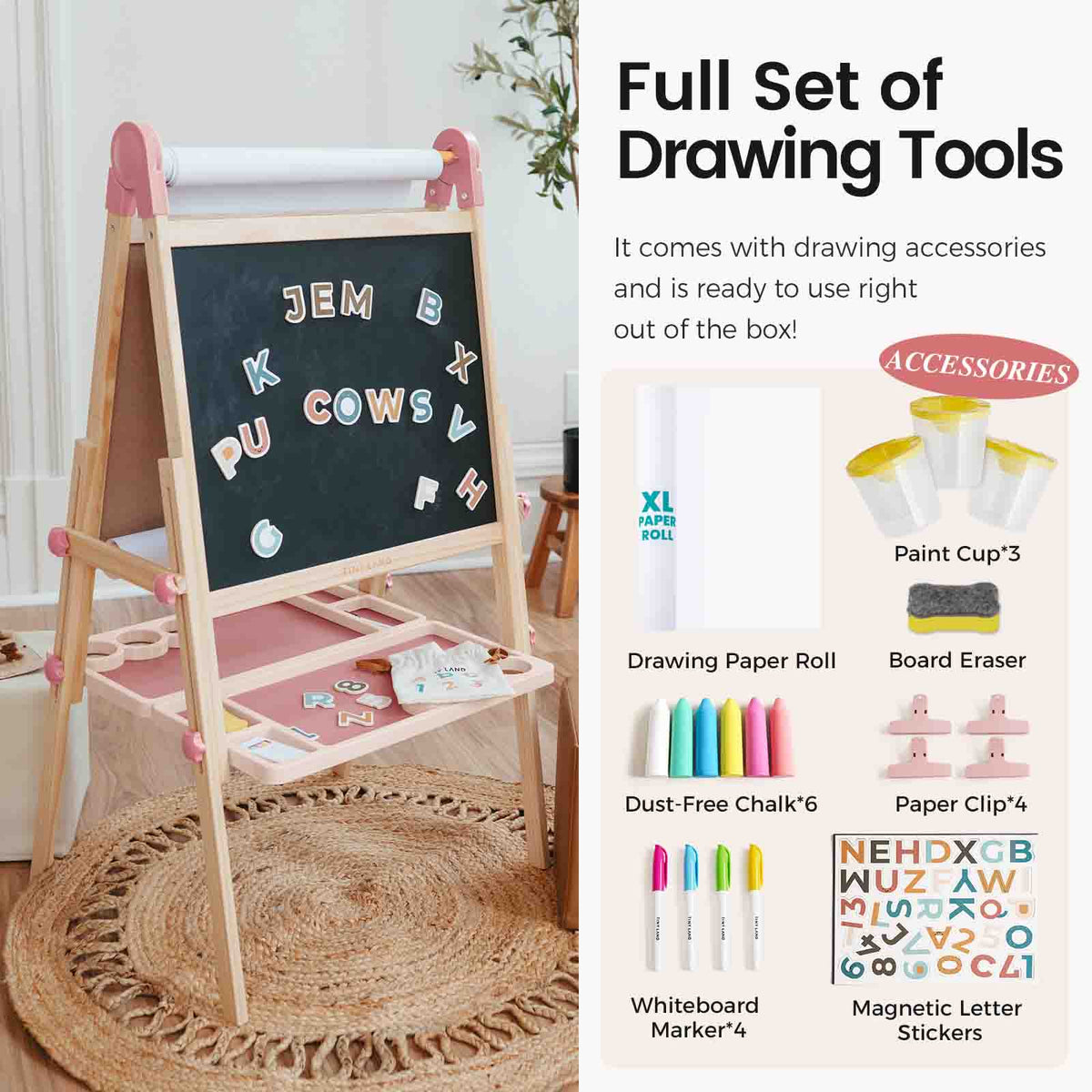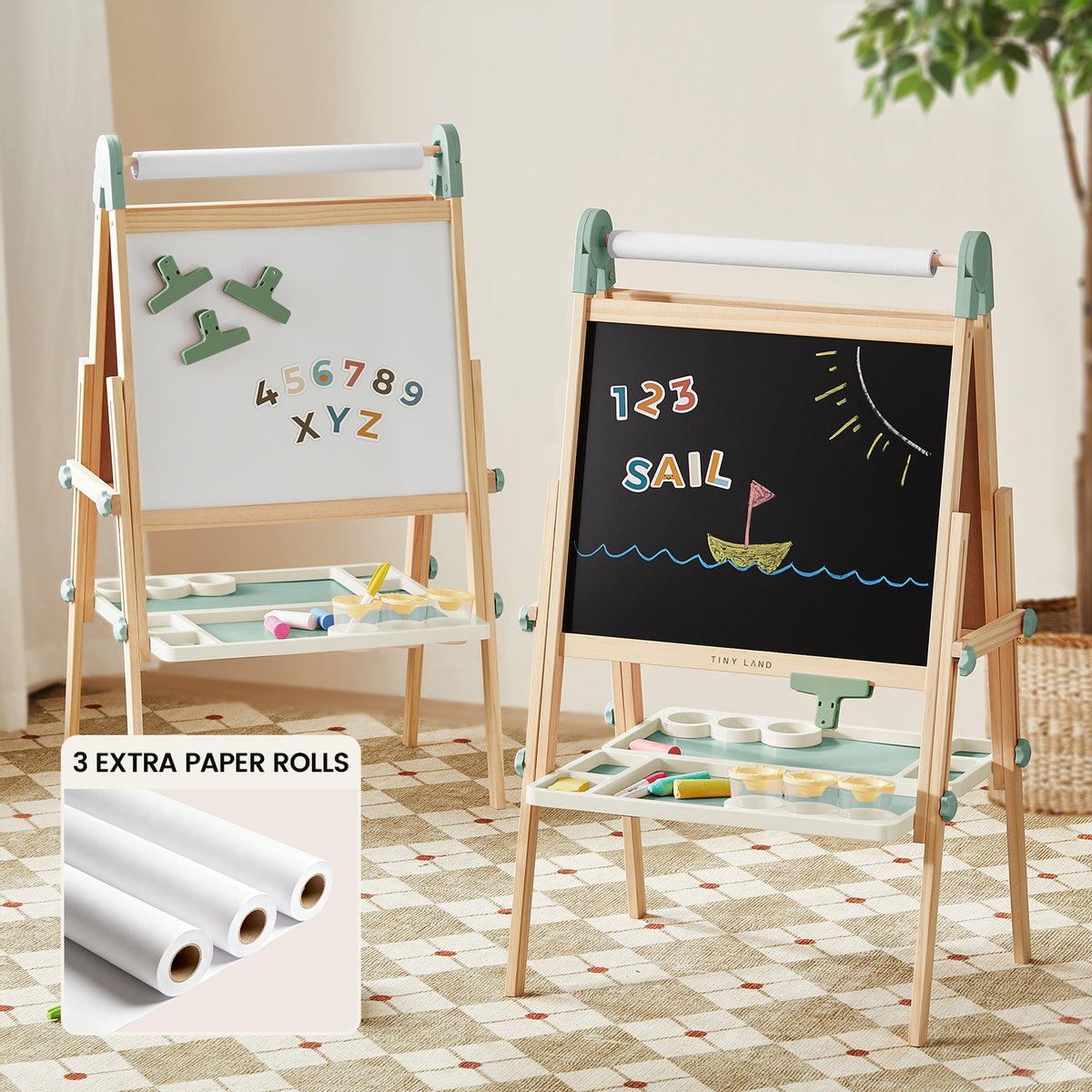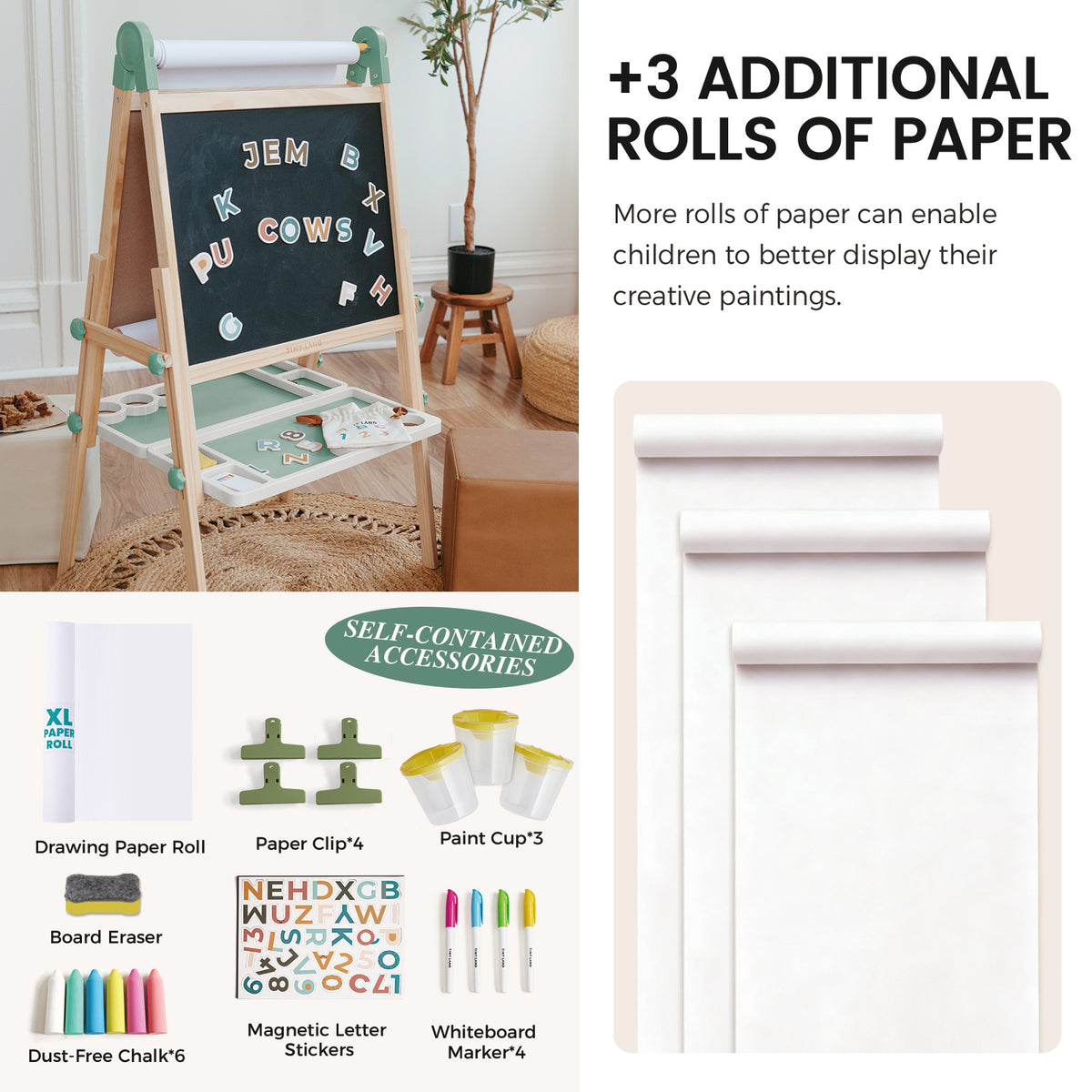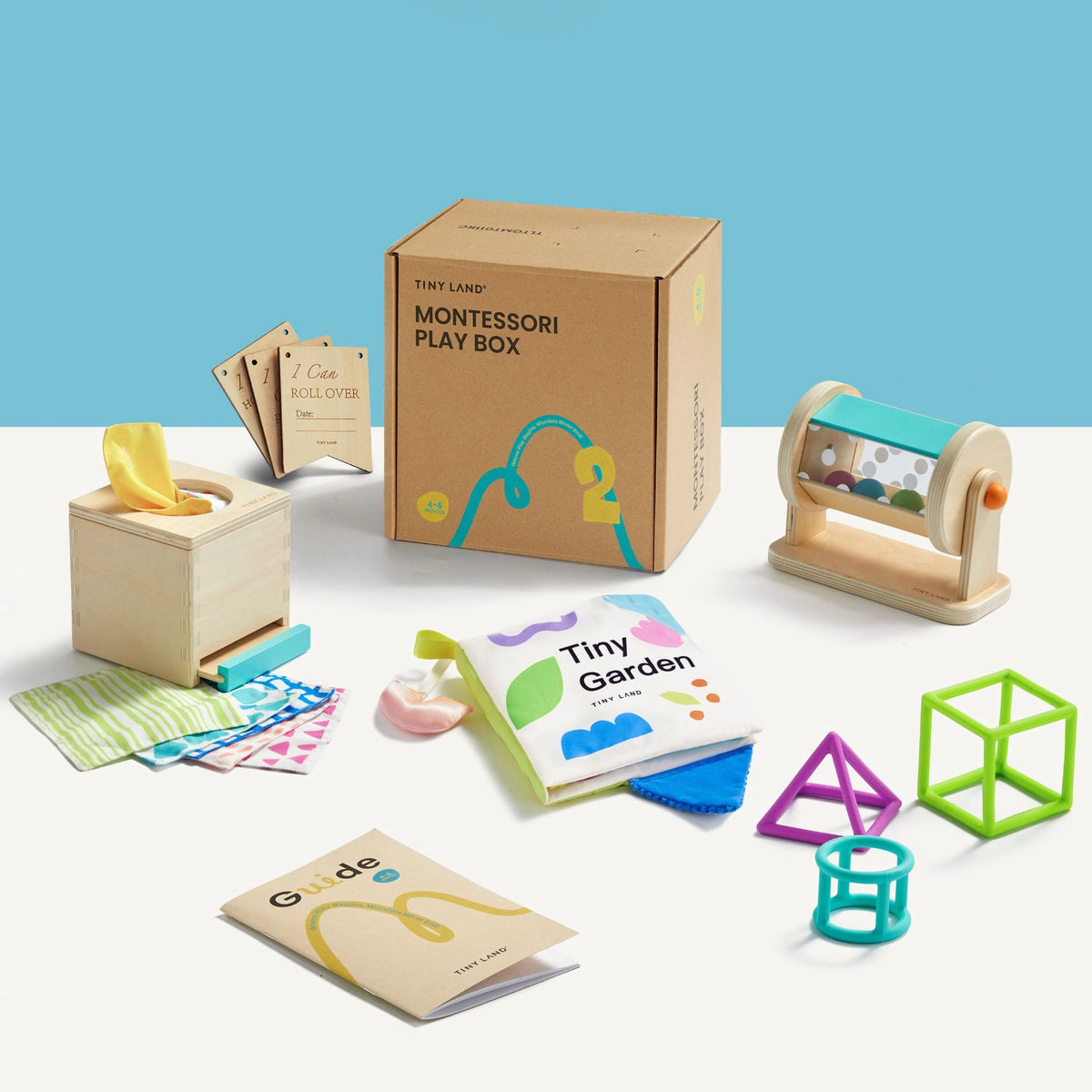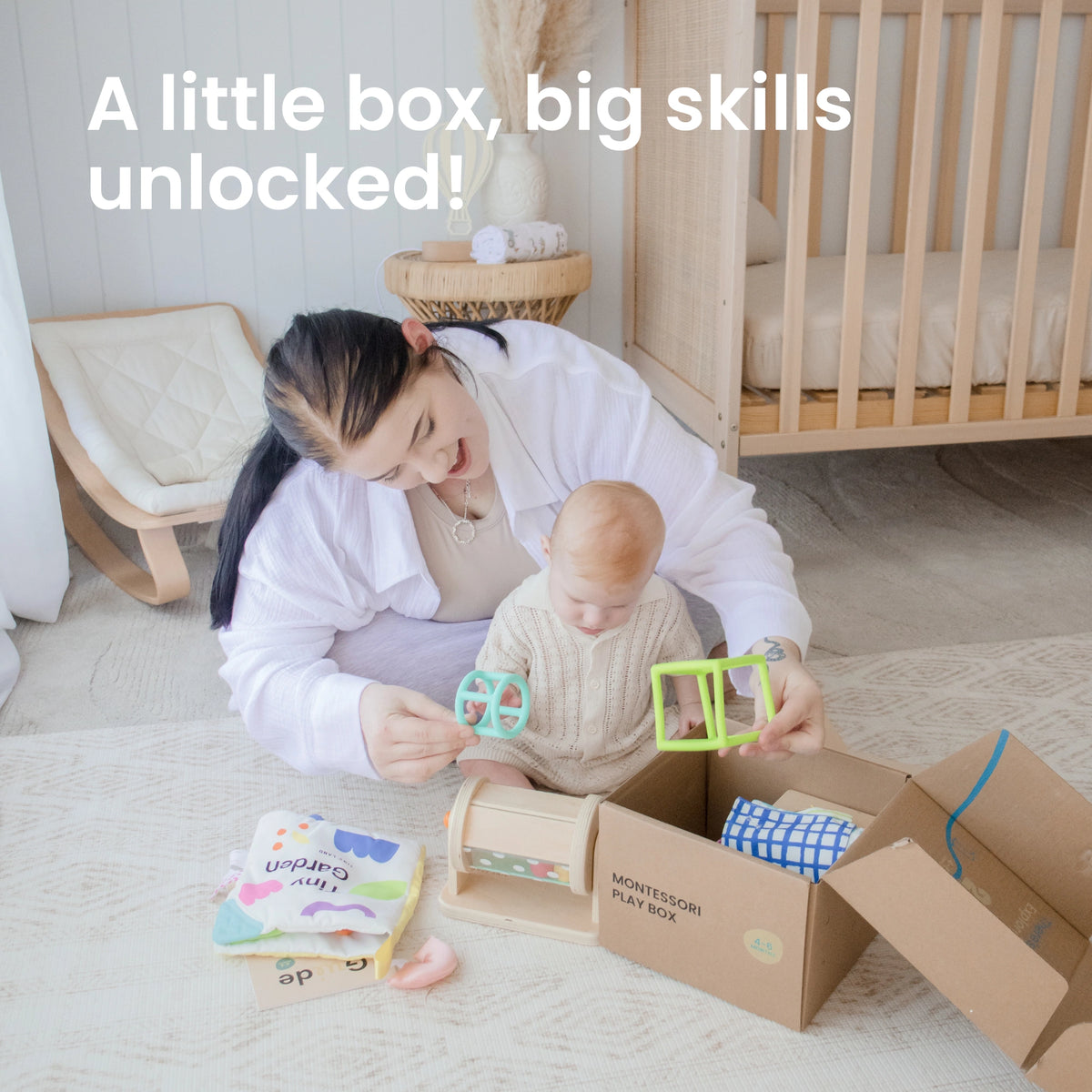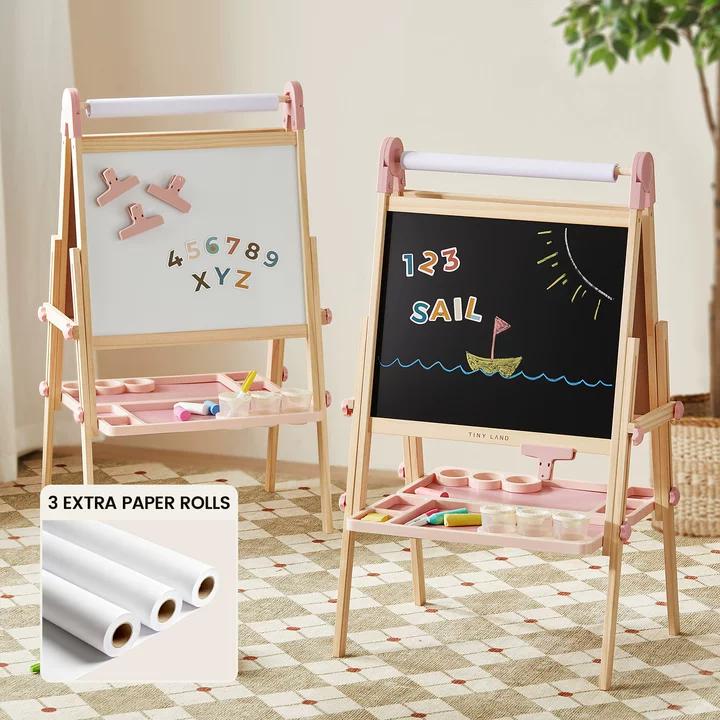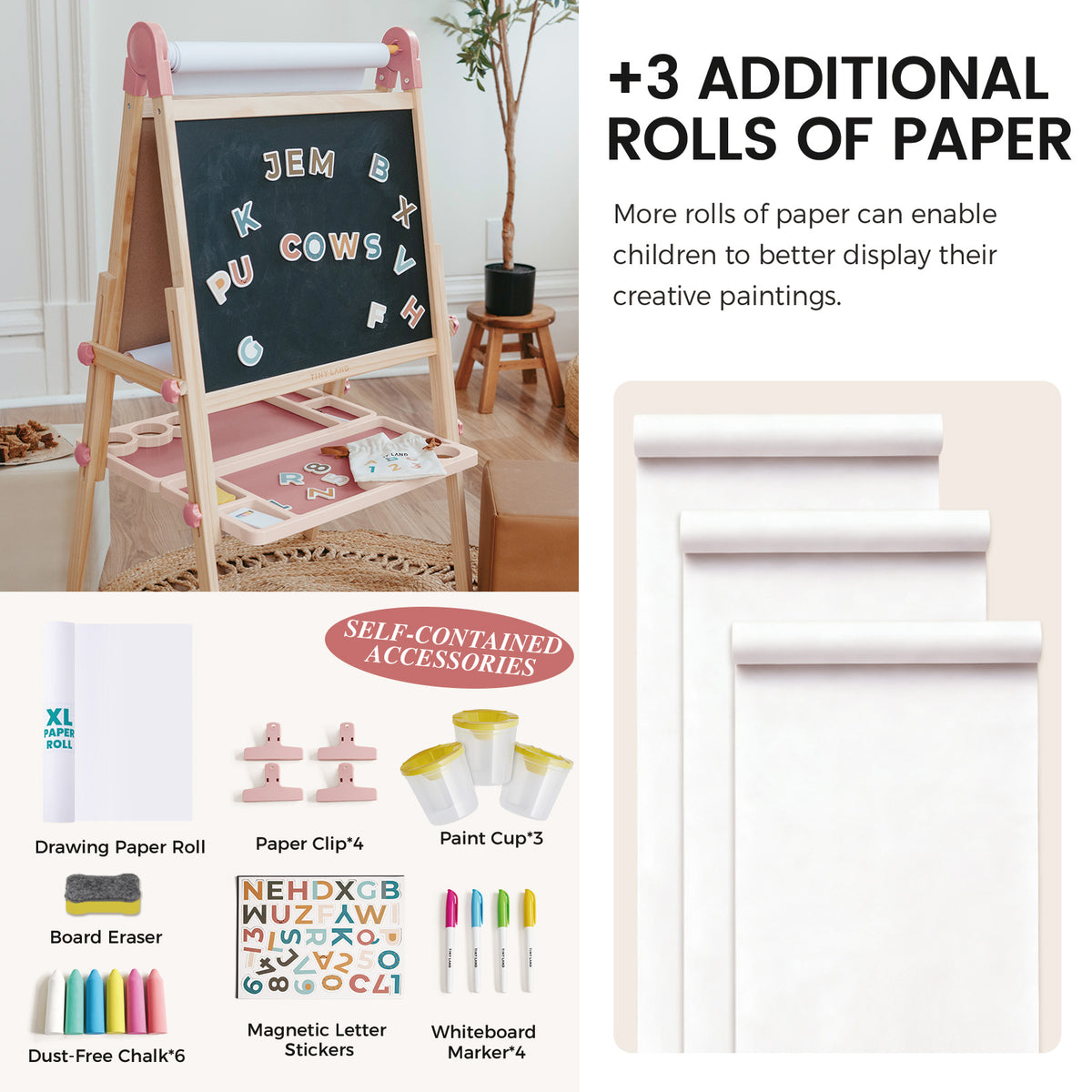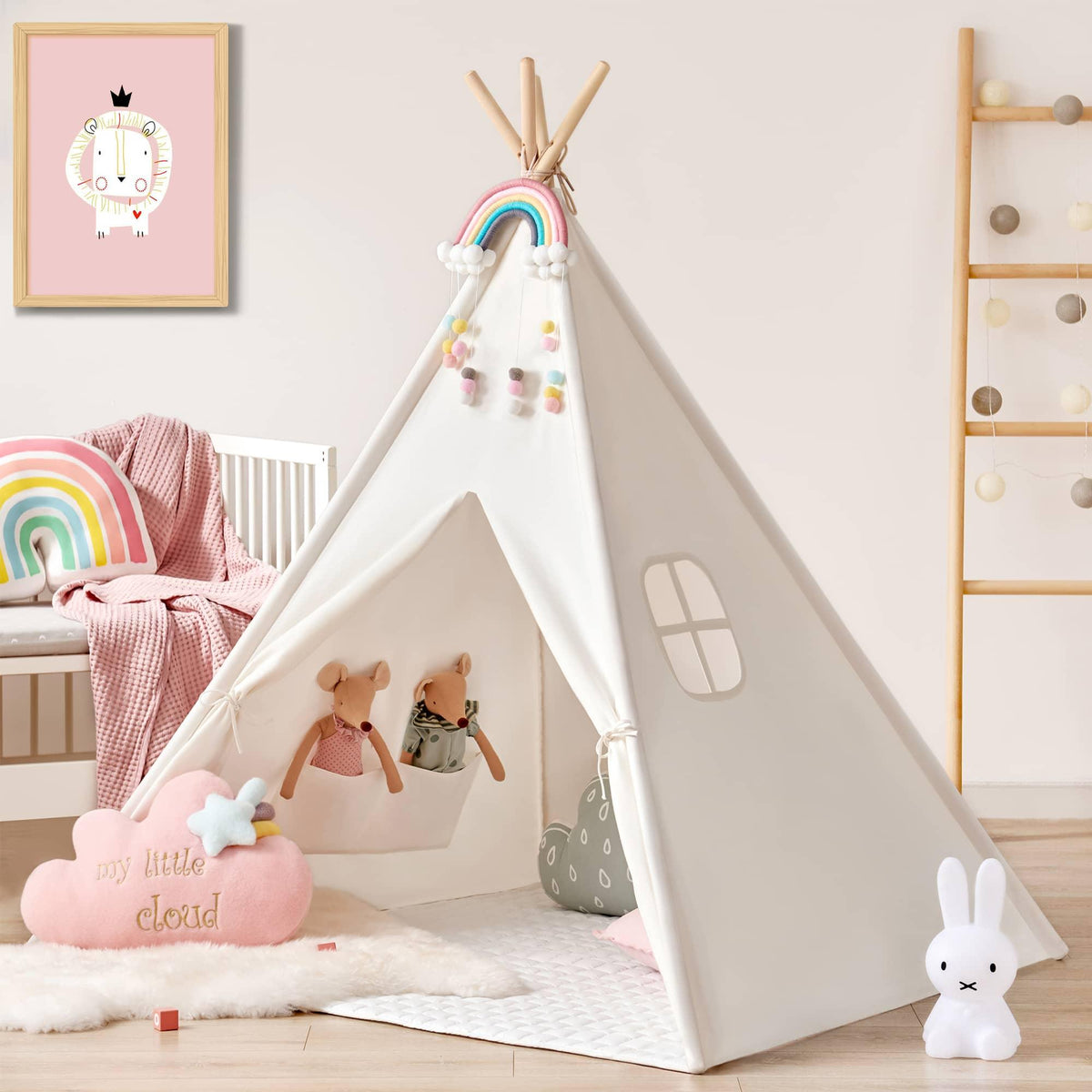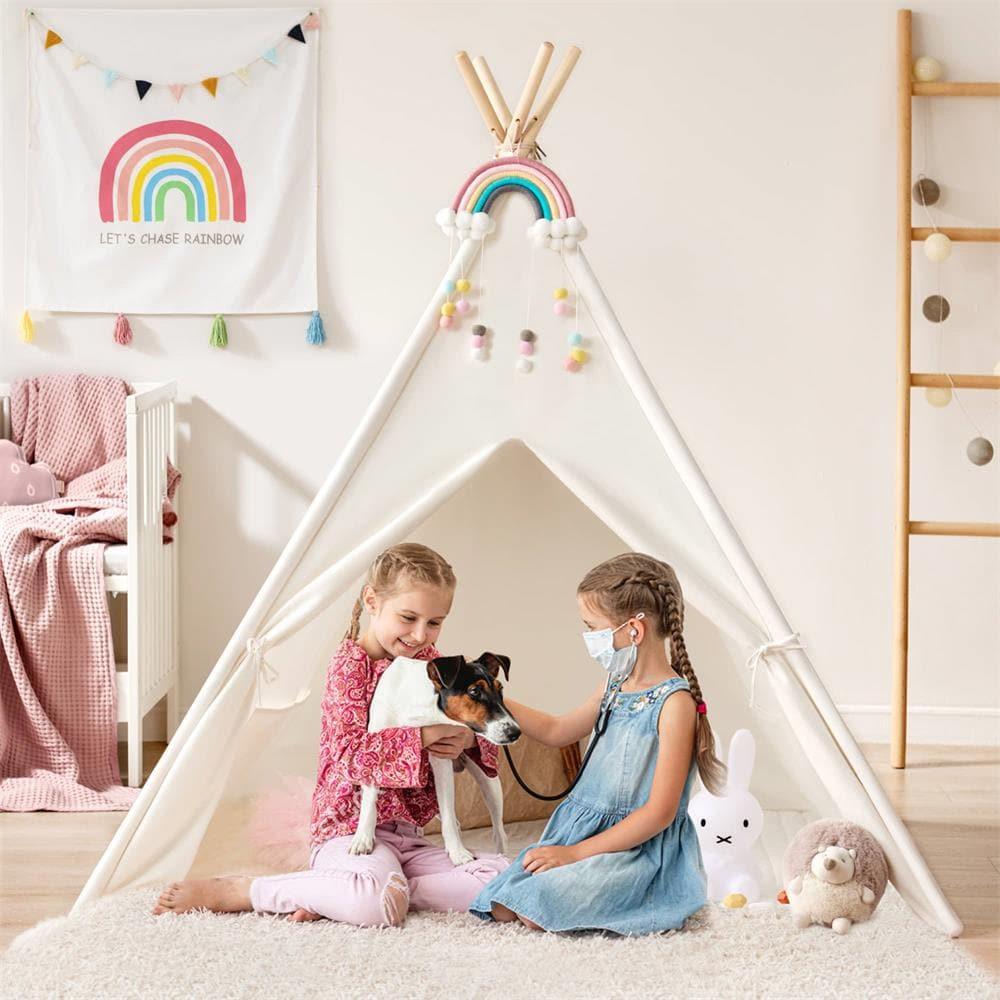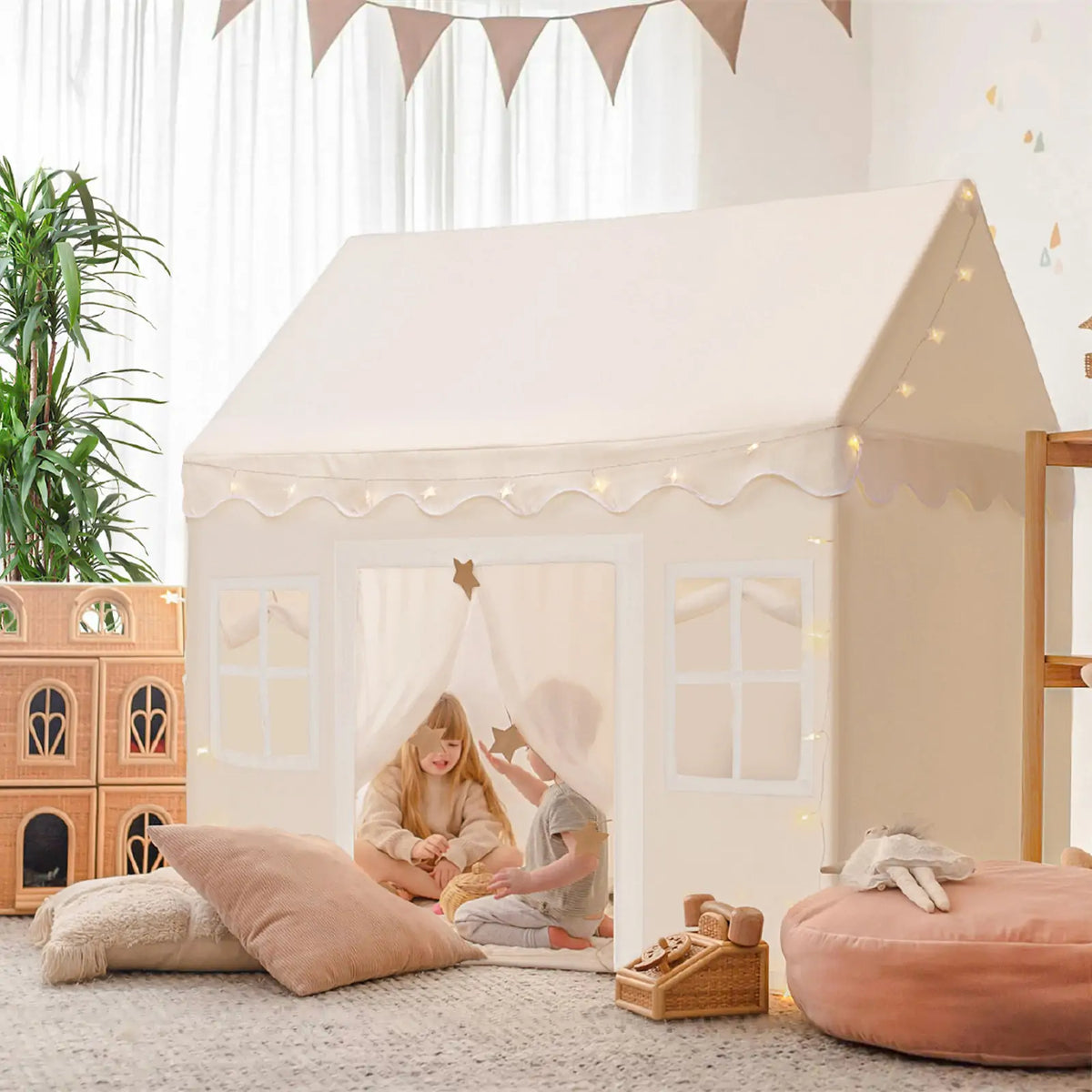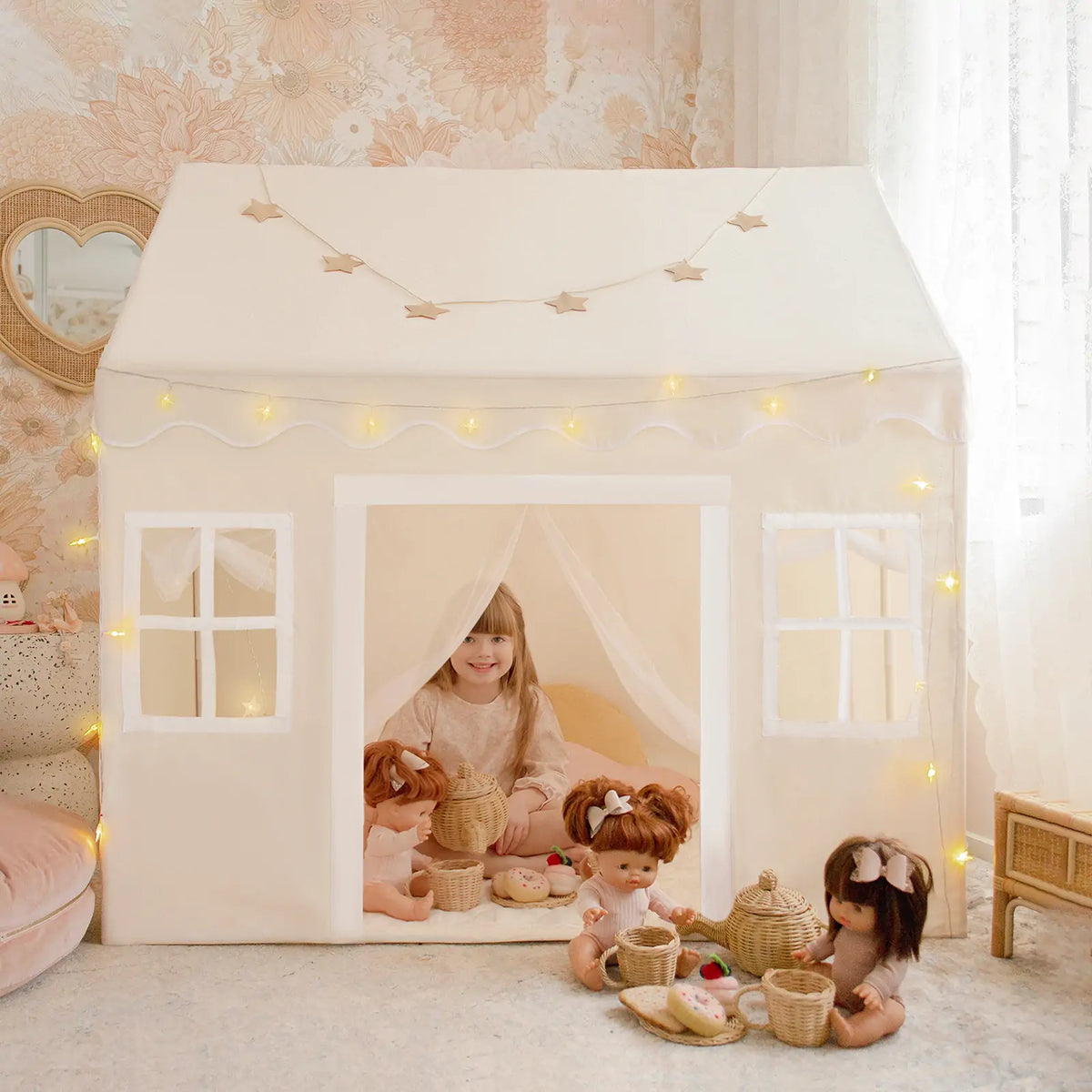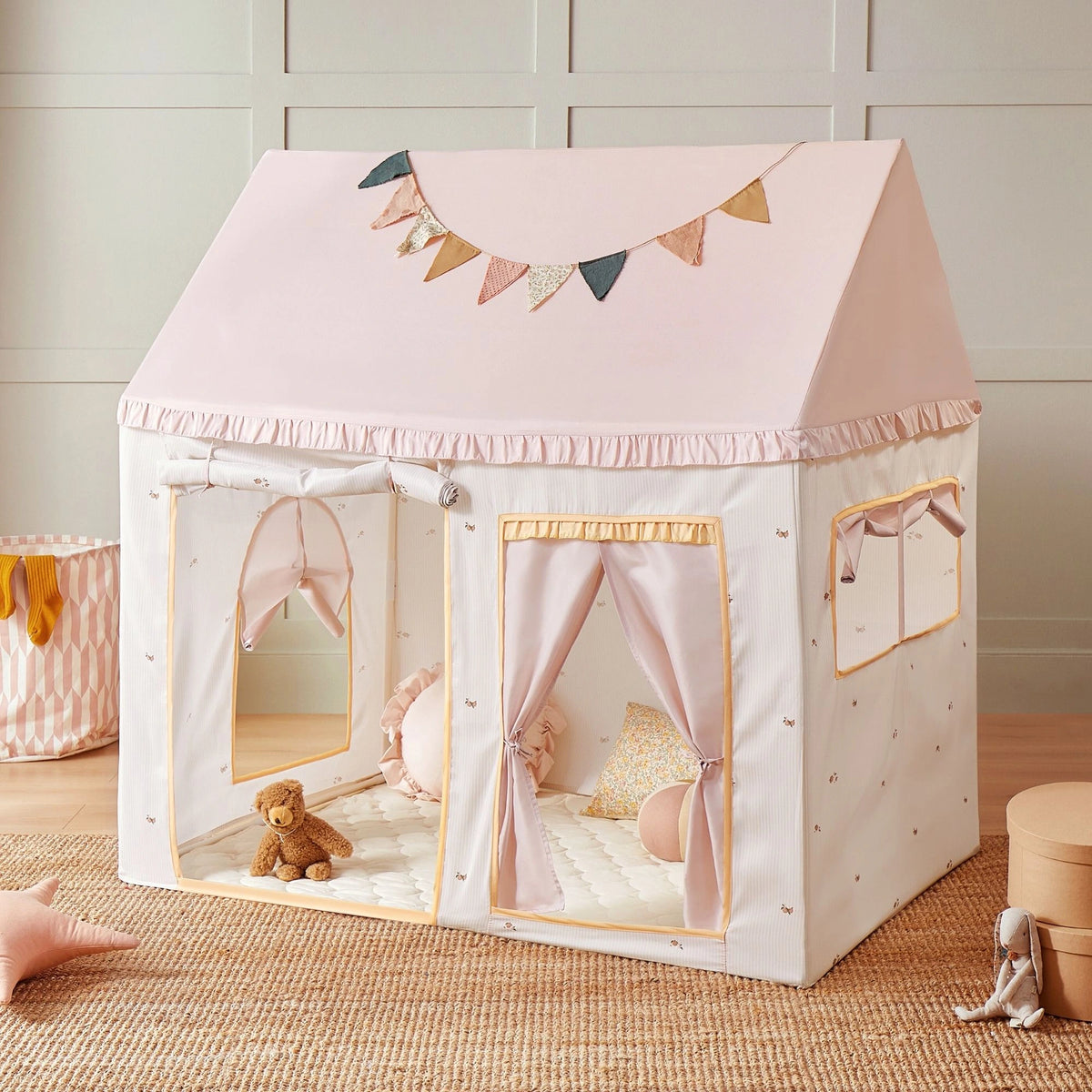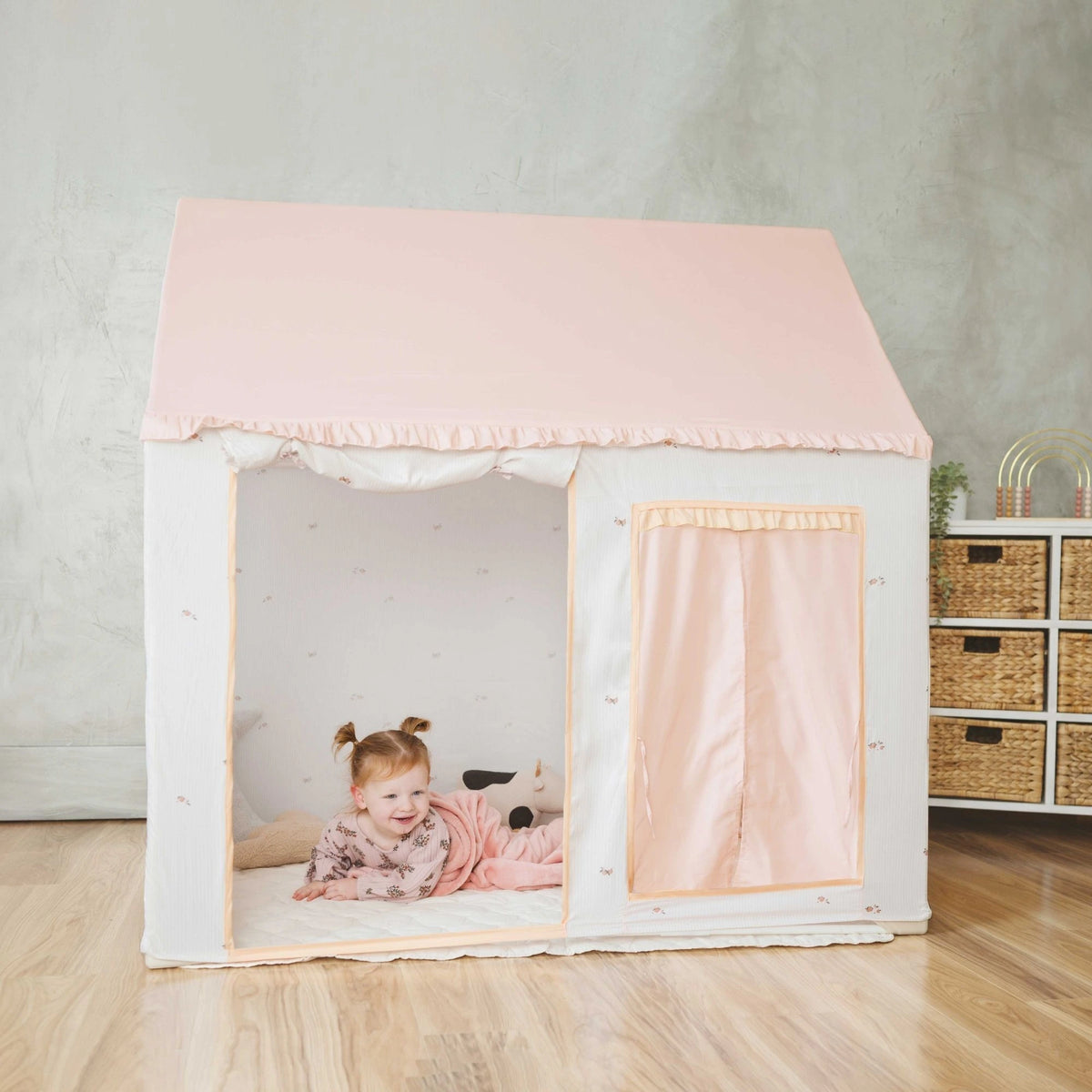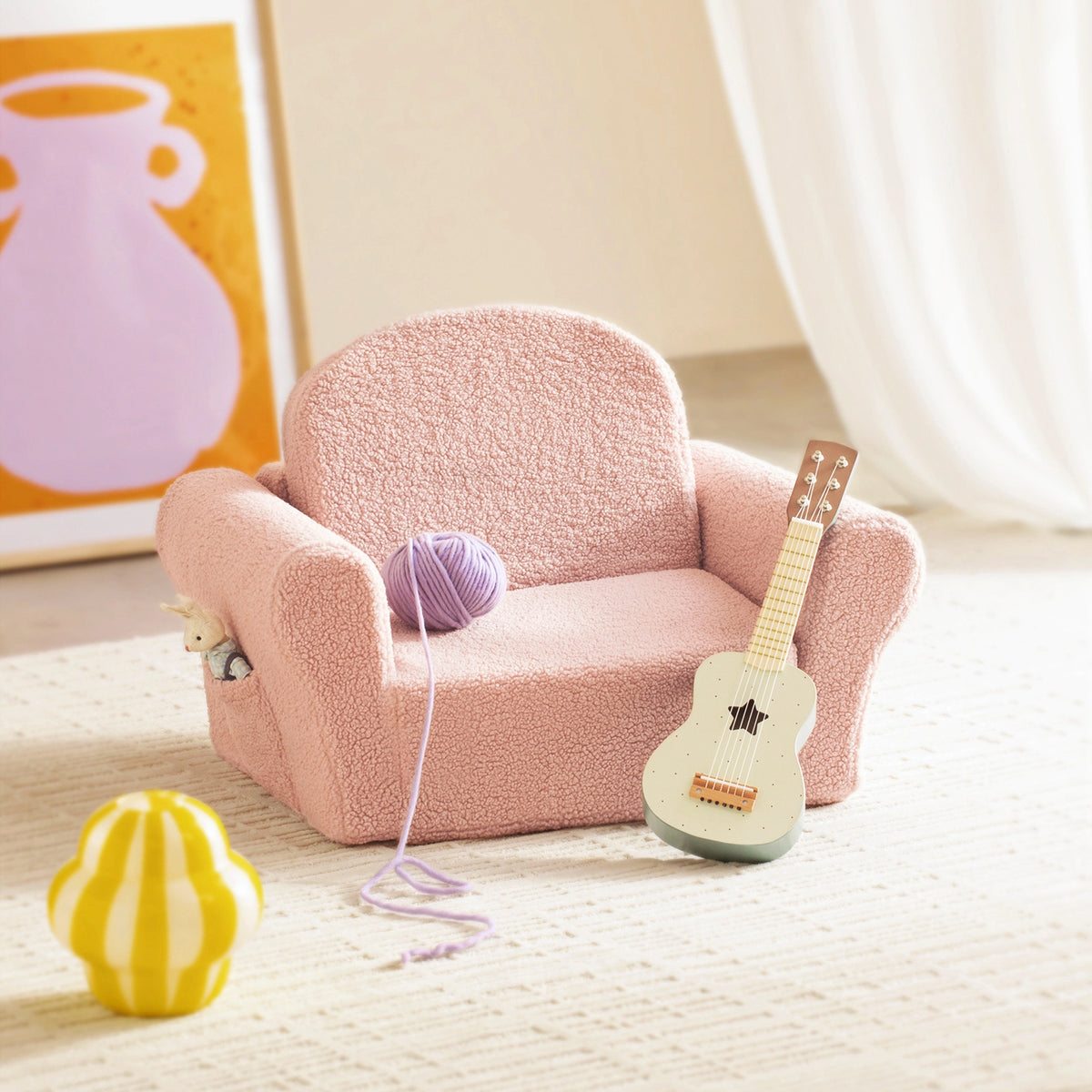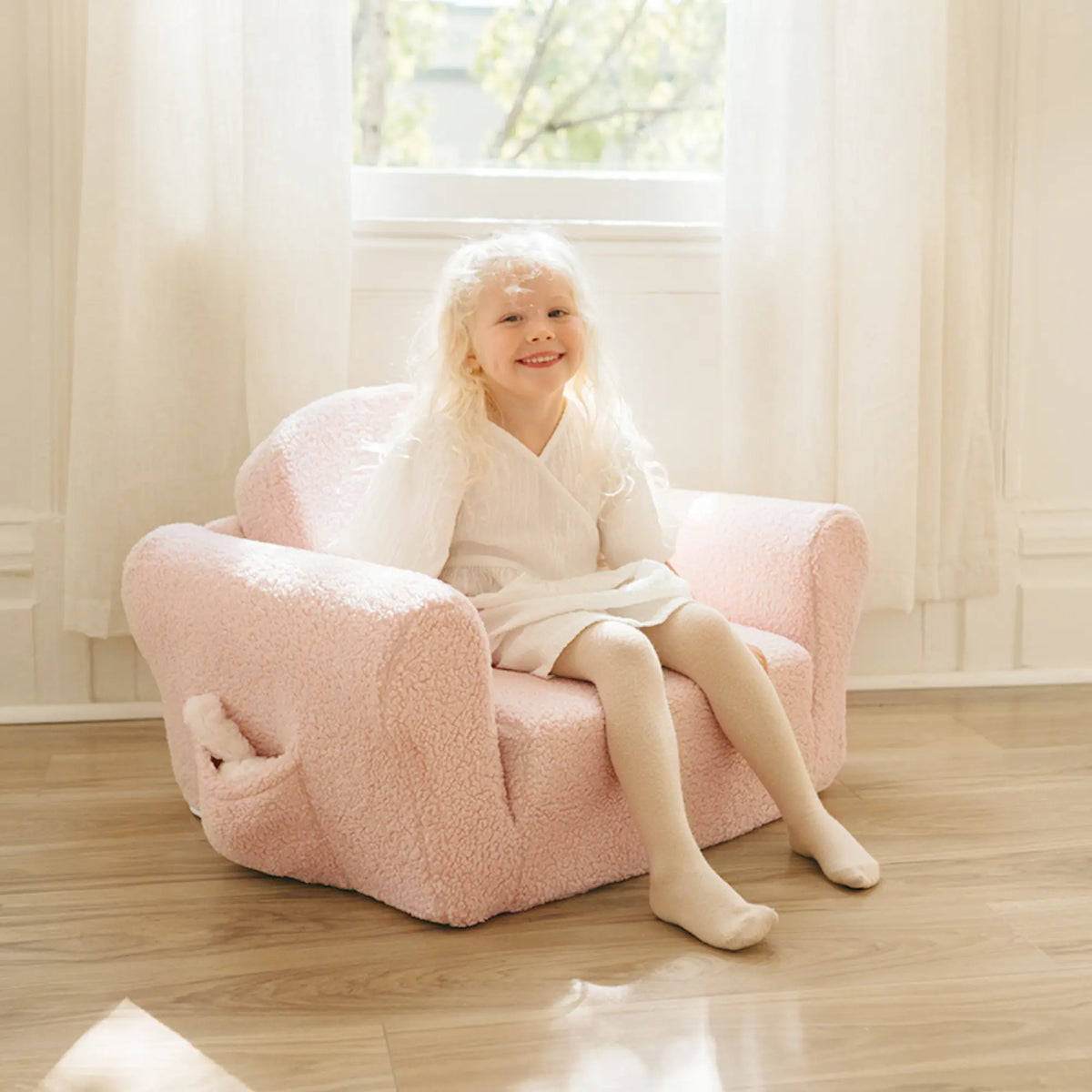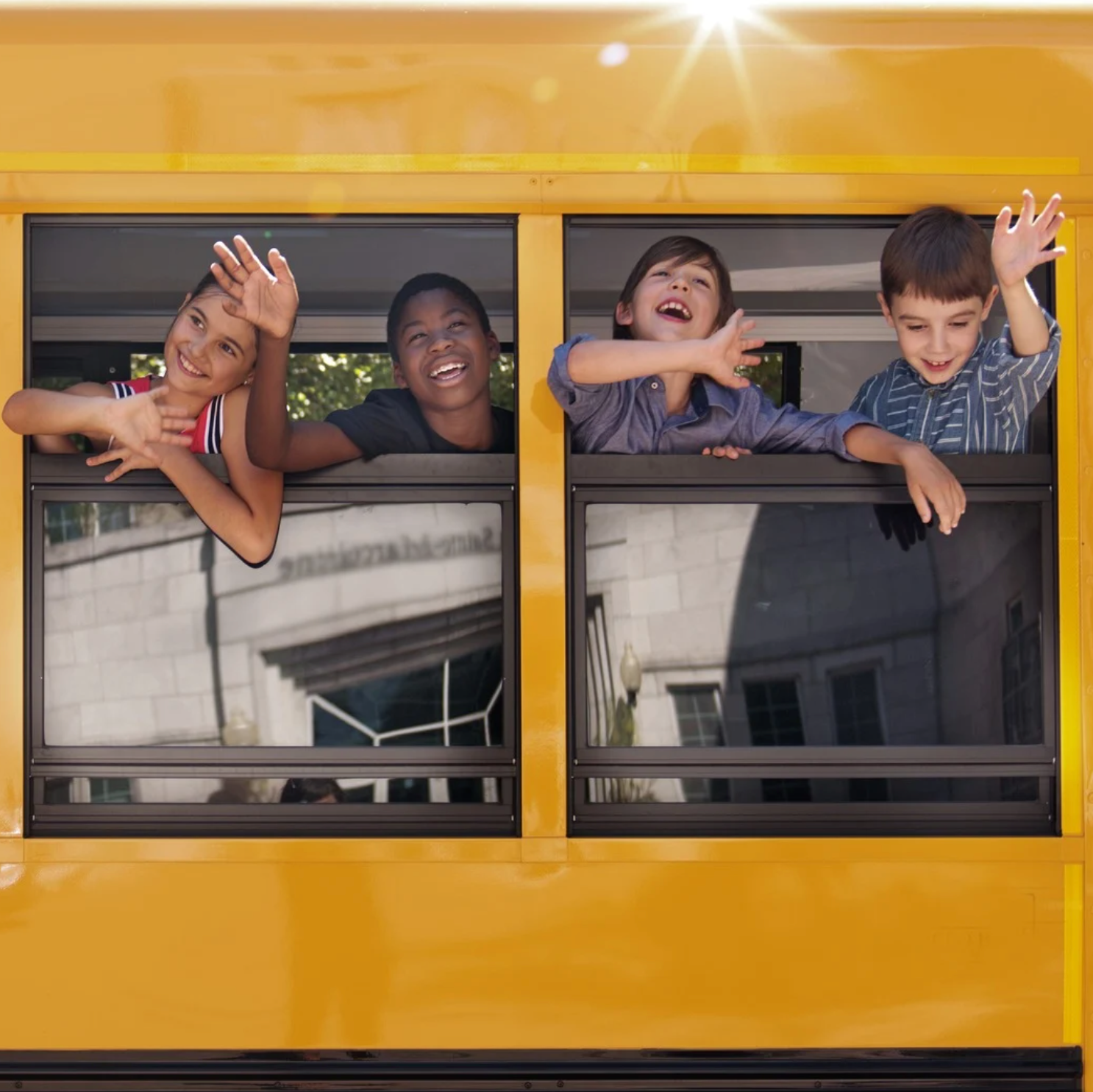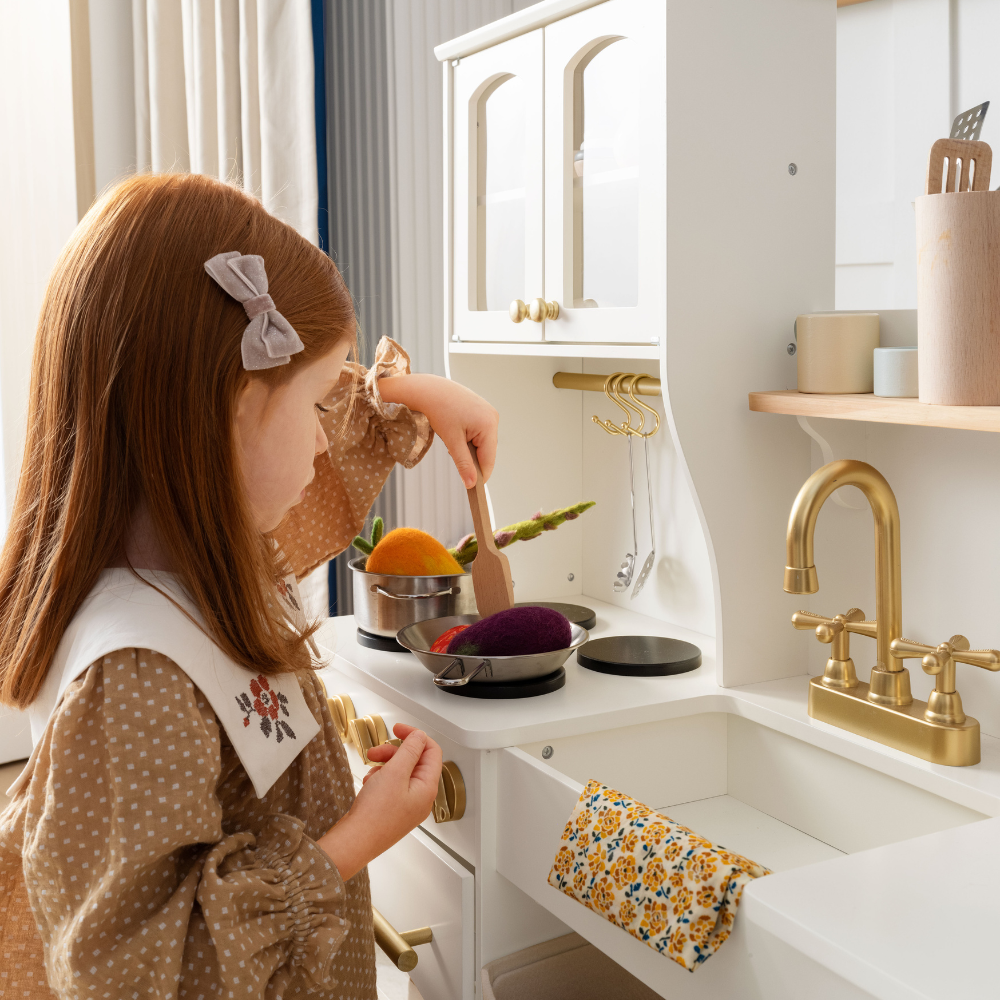Have you ever noticed how kids start chatting non-stop when they play with pretend food? They’re “cooking,” taking orders from invisible customers, or creating all kinds of imaginative food adventures. This is a fantastic way for children to practice language and storytelling skills without even realizing it!
Early childhood is a crucial time for developing language and storytelling abilities — skills that form the foundation for communication, creativity, and social connection. One of the best ways to support this growth is through pretend play in the play kitchen, especially with toys that spark imagination and encourage interaction.
Pretend play toys, in particular, offer a fun and meaningful way for kids to explore language. For example, kids get to practice real-life conversations — like taking orders, describing tastes, or explaining recipes. It’s like giving them a fun, low-pressure language lesson. And the best part? They’re having such a great time that they don’t even notice they’re learning and growing with every laugh and playful moment.

Creative Play Ideas to Boost Language and Storytelling
-
Family Pretend Kitchen Time: Gather around a pretend play kitchen and have everyone share their favorite foods. Encourage your child to describe the flavors they enjoy, and invite them to try some of your favorite foods too. Ask what they think about the taste. This not only sparks fun conversations but also helps build vocabulary around flavors and preferences.
-
Food Sorting with a Twist: Play a sorting game using colors, food initials, or even taste categories like sweet, sour, and bitter. Ask your child to explain why they grouped certain foods together. This encourages language use and logical thinking while connecting play to real-life food experiences.
-
Kitchen Cleanup & Storytelling: Have your child help “clean up” their luxury play kitchen area. Encourage them to describe what they’re doing — like putting away toys or wiping down the counter — almost like keeping a little “chore diary.” This activity helps nurture responsibility and provides plenty of opportunities for fun spoken language practice.

Toy Education: How Play Kitchens and Food Sets Support Language Development
Wooden play kitchen and pretend food sets aren’t just toys — they’re powerful tools for language learning. As children play, they naturally practice new vocabulary, sentence structure, and conversational skills. Pretend kitchen and mealtime scenarios give kids hands-on opportunities to rehearse real-life conversations, like cooking or grocery shopping, helping them expand their language understanding. These activities also build storytelling abilities and social skills. Food set toys encourage kids to describe colors, shapes, and tastes, which enriches their vocabulary. Parents can boost this learning during playtime by asking open-ended questions, encouraging storytelling, or playing games like “My Restaurant,” where kids take turns being chefs and servers. These fun interactions not only improve language skills but also build confidence and creativity.
A Bonus for Eco-Conscious Parents
If you care about the planet as much as your child’s learning, you’ll love that our food sets are made from sustainable, non-toxic materials. Choosing eco-friendly toys means you’re supporting your child’s health and the environment — a win-win for families who want the best for both.
Eco-Friendly Play Tips to Support Language Development
-
Talk about sustainability: Use playtime to introduce words like “recycle,” “compost,” or “biodegradable” as you sort and organize the food toys.
-
Discuss food origins: Tell stories about how fruits and vegetables grow, emphasizing natural processes and eco-friendly farming.
-
Encourage mindful choices: Role-play shopping with a focus on buying organic or local produce, reinforcing vocabulary related to eco-conscious eating.
-
Reuse and upcycle: Create new play food or kitchen accessories using recycled materials, and describe the process together to build descriptive language skills.
-
Group play with care: Promote sharing and caring for toys, encouraging respectful communication and cooperation during playtime.

Q&A: Your Questions About Pretend Food Play
Q: My child isn’t very verbal yet. Can pretend food still help?
A: Absolutely! Pretend food play encourages children to express themselves at their own pace. Even simple naming of colors, shapes, or actions builds the foundation for language development.
Q: How can I join in without taking over the play?
A: Ask open-ended questions like “What are you cooking today?” or “Can you tell me about this dish?” This invites your child to share their thoughts while keeping the play child-led and fun.
Q: Are these toys safe and eco-friendly?
A: Yes! Our food sets are made from sustainable, non-toxic materials, so they’re safe for your child and kind to the planet.
Q: Can pretend food play support children with special needs?
A: Definitely. Pretend play is flexible and can be adapted to fit different learning styles, helping with communication, social skills, and sensory development.
Q: How can pretend food help with social skills?
A: Playing “restaurant” or “grocery store” encourages turn-taking, sharing, and conversations — all key parts of social interaction.
Ready to Spark Your Child’s Language and Imagination?
Explore our eco-friendly wooden play kitchen sets today and turn playtime into a joyful learning adventure! Perfect for curious minds and caring families who value both education and the environment.


